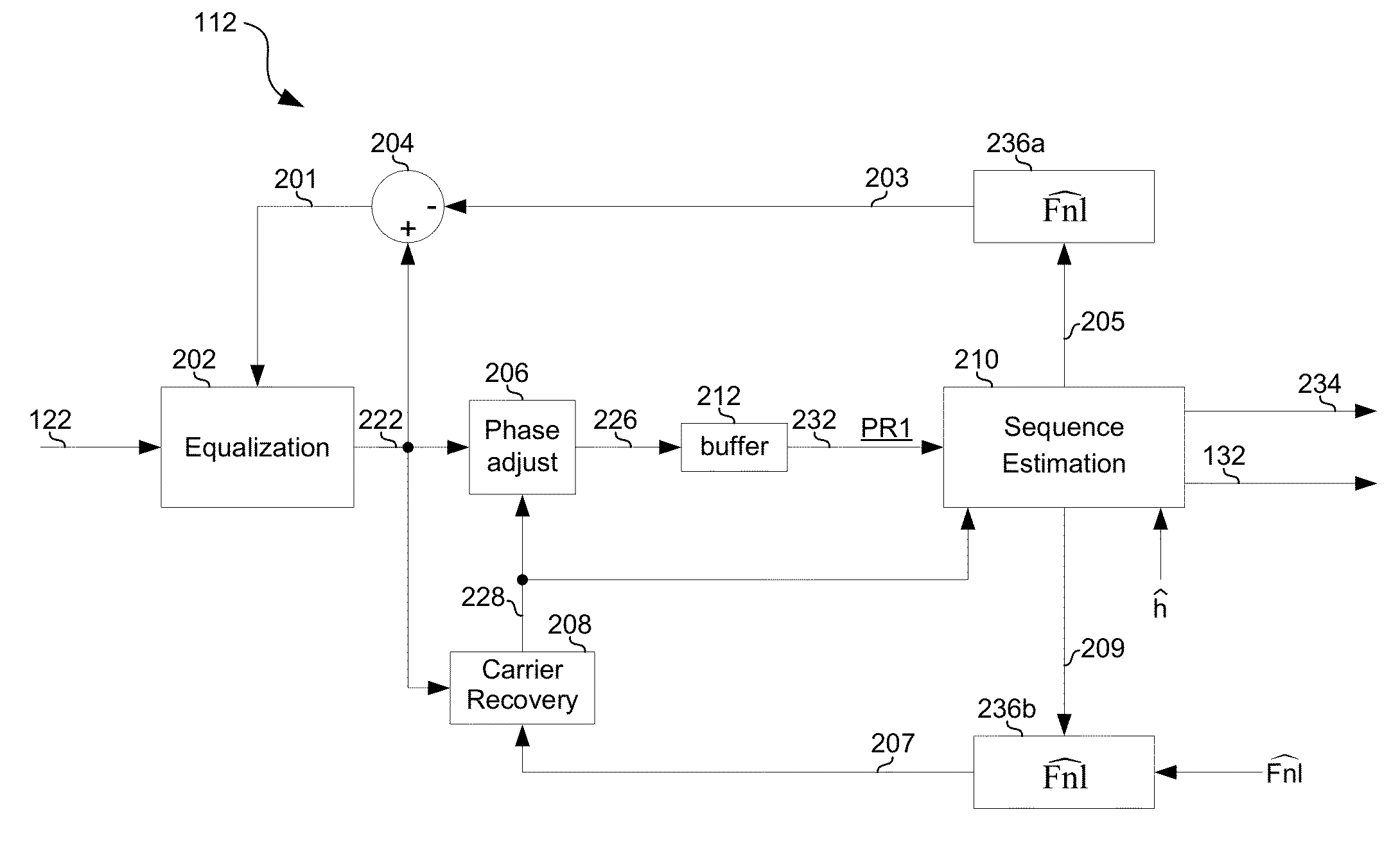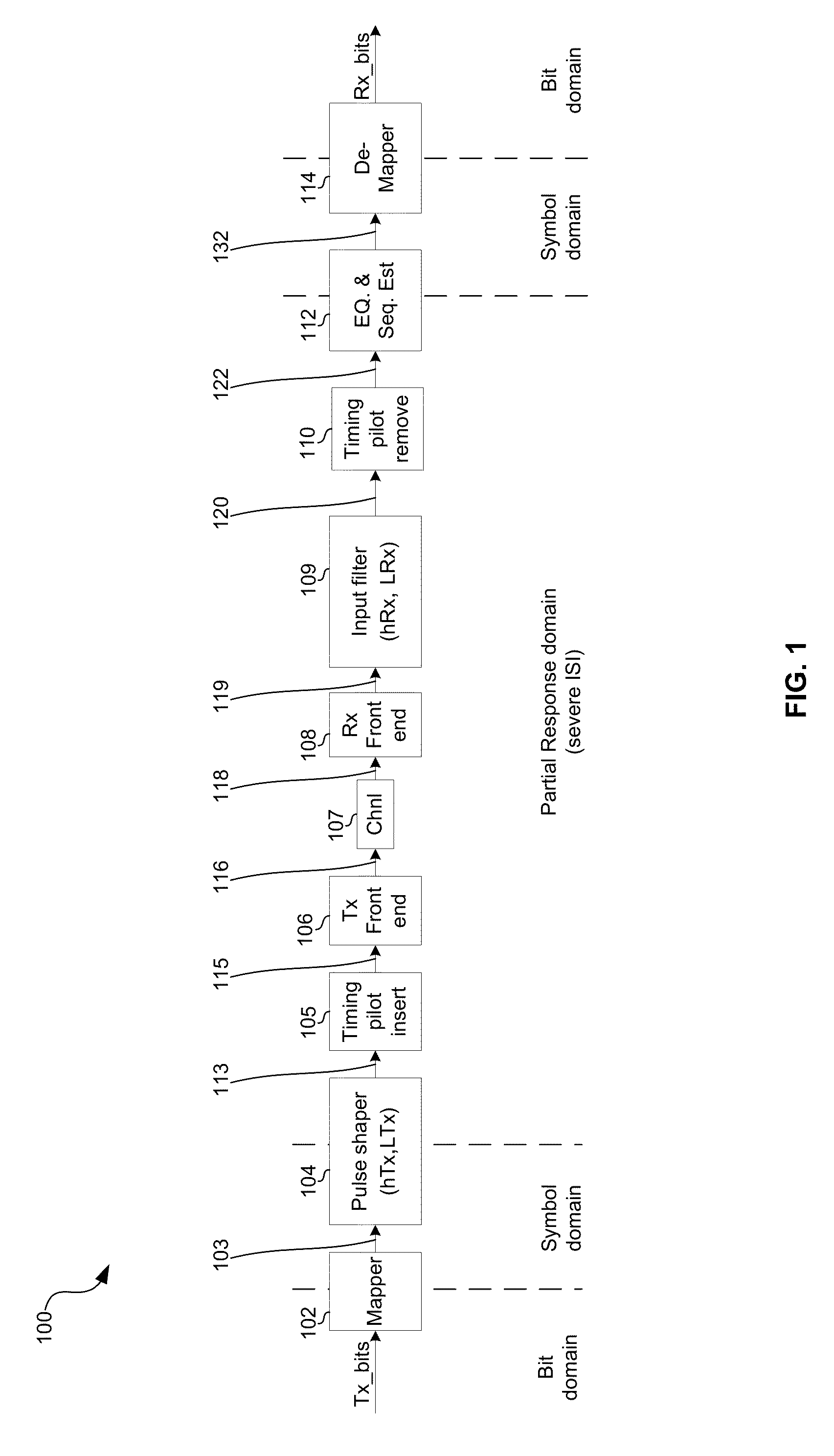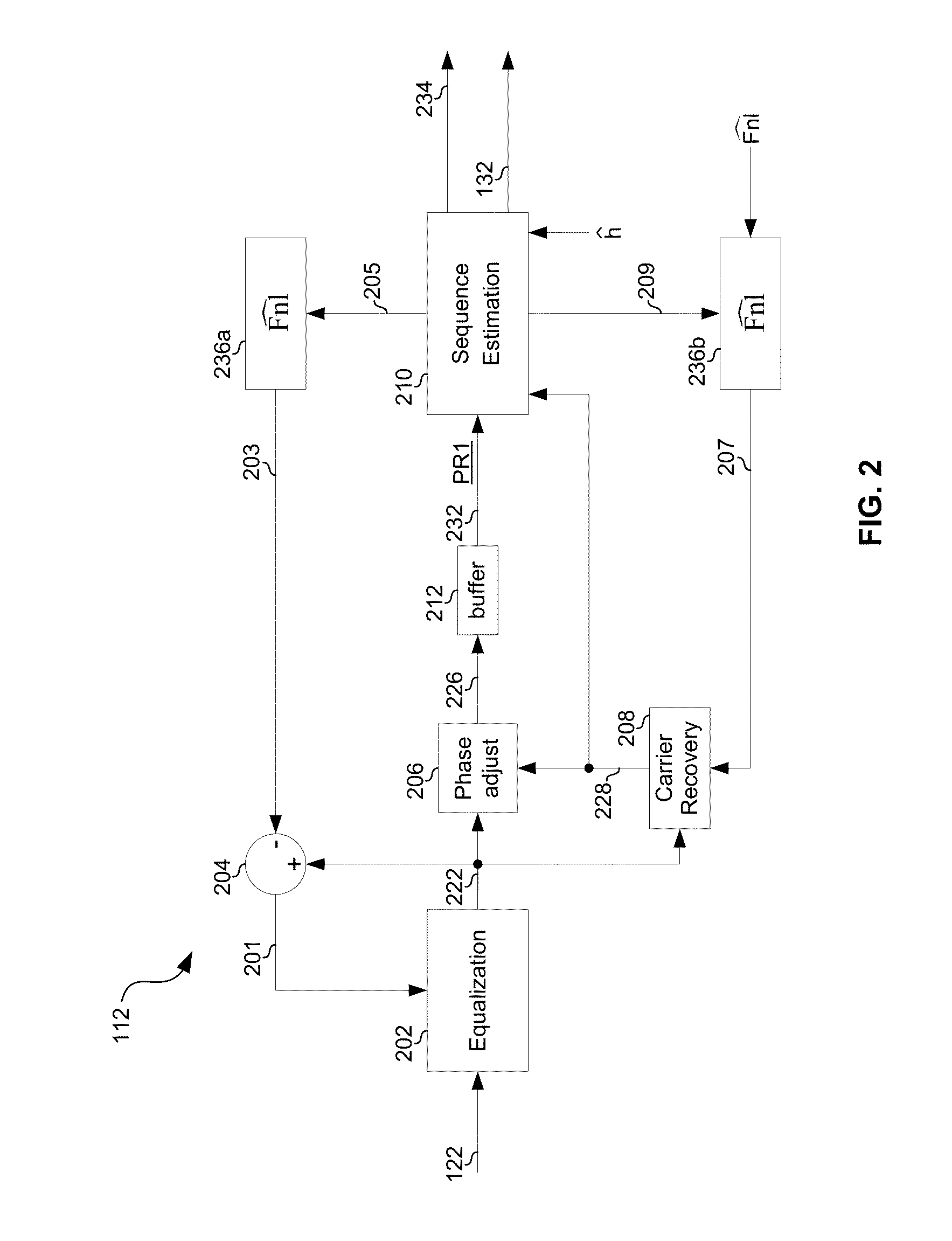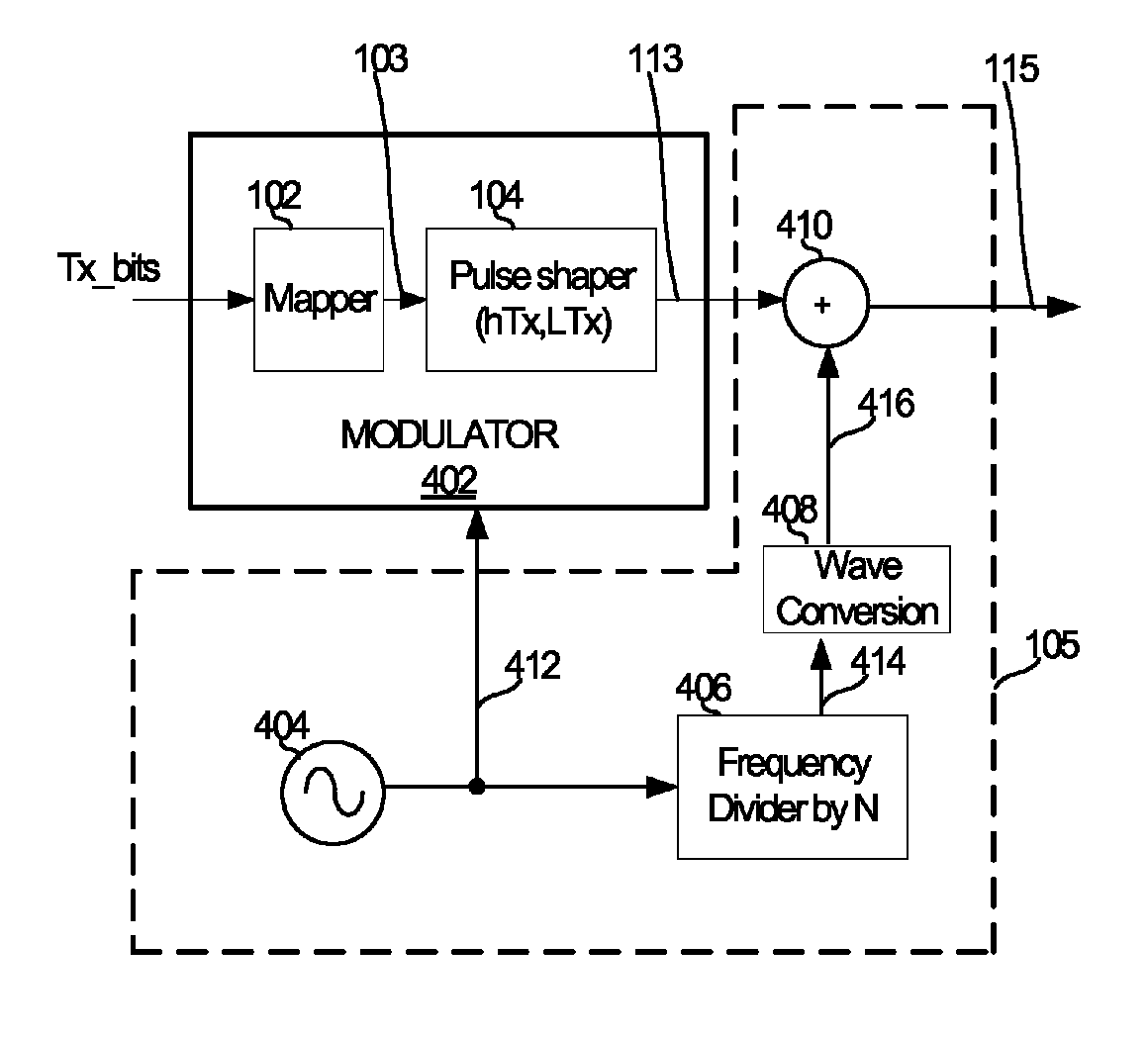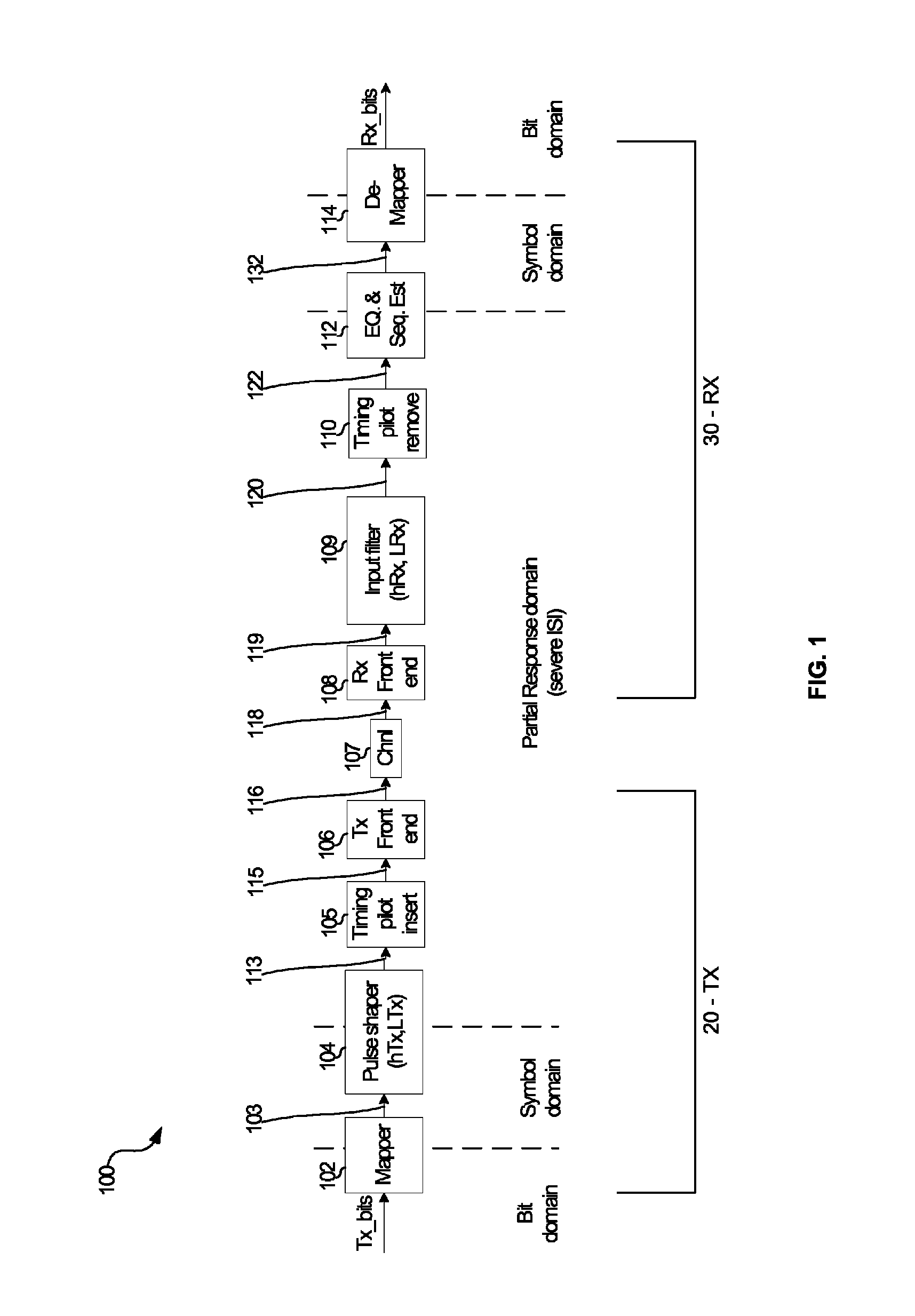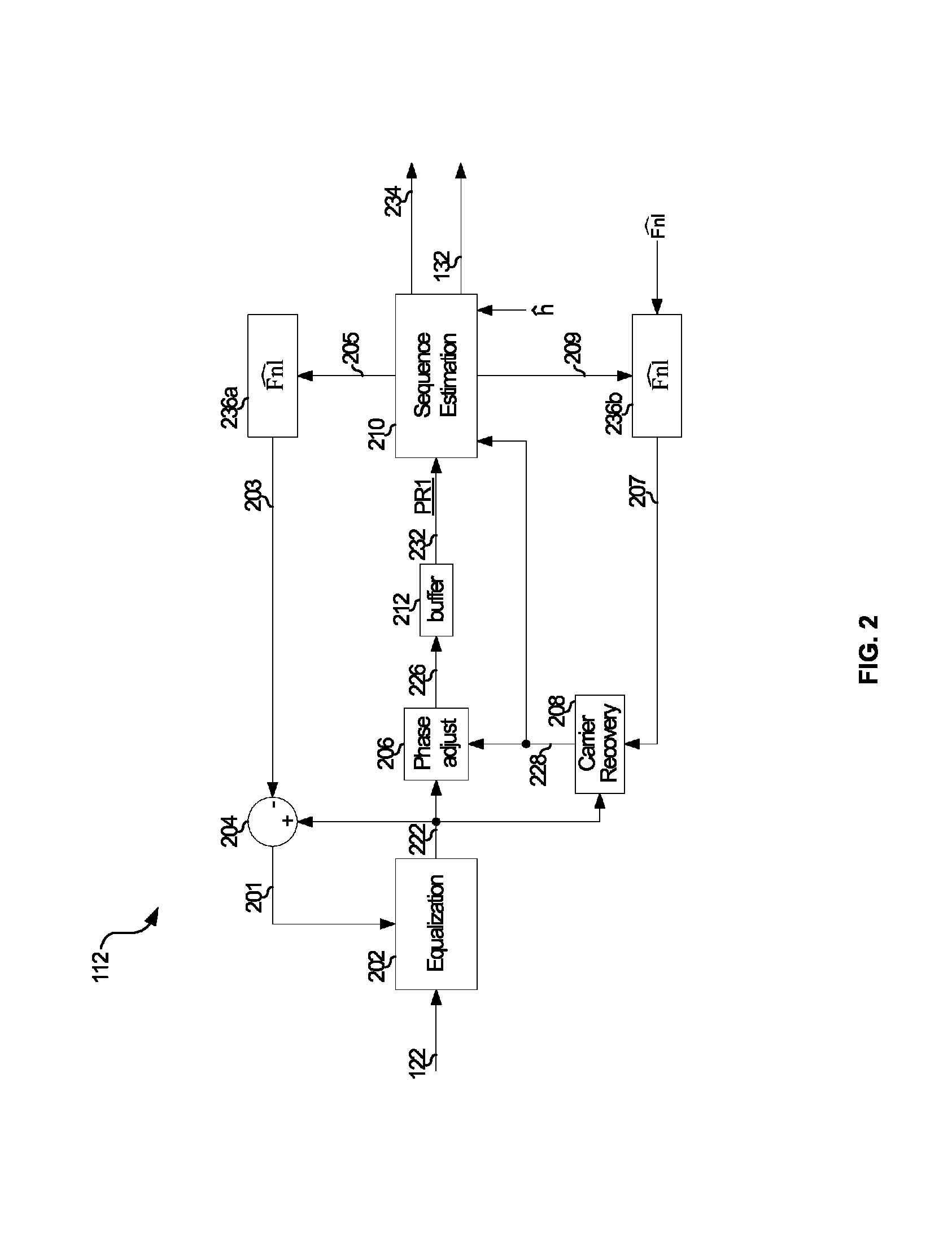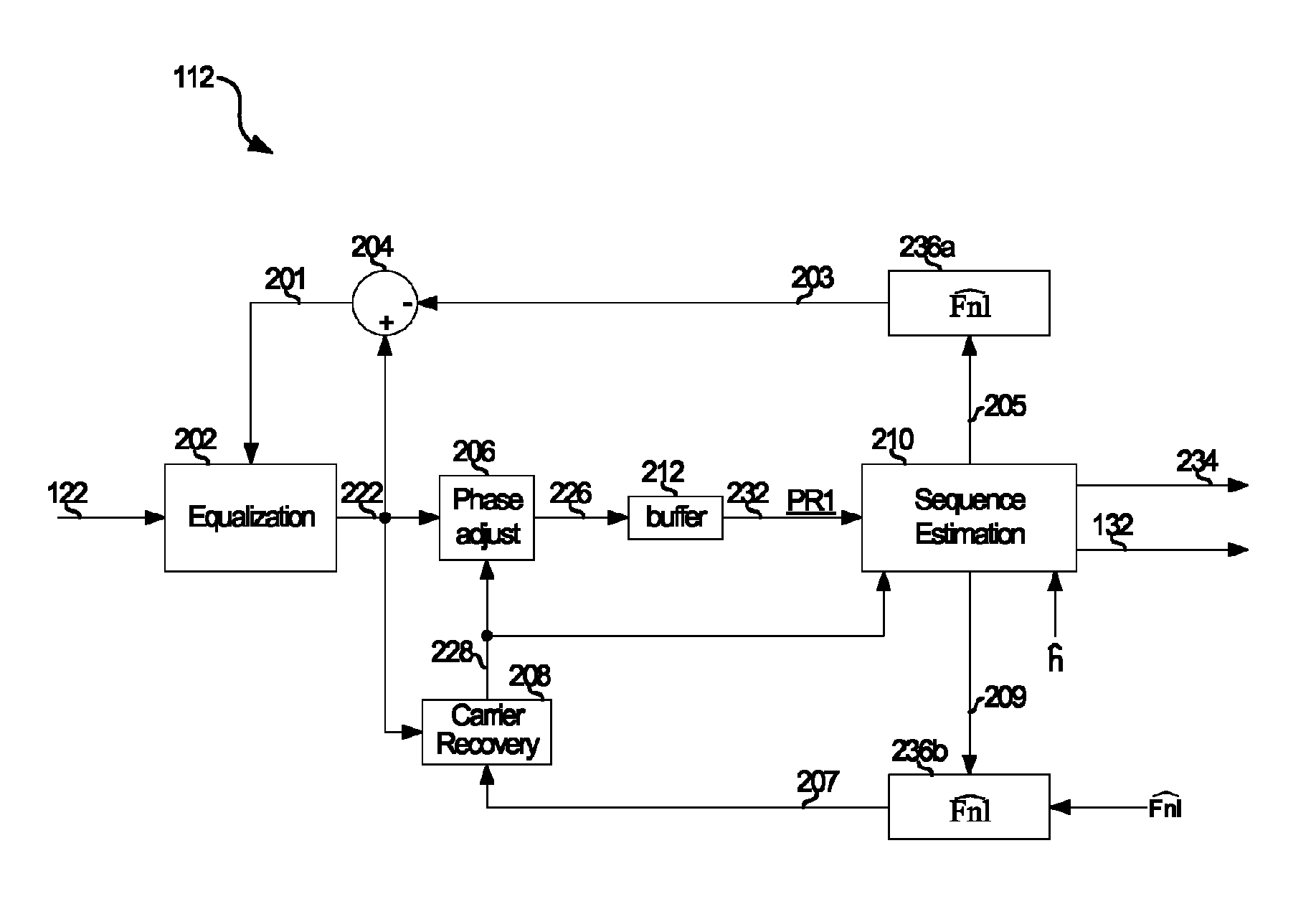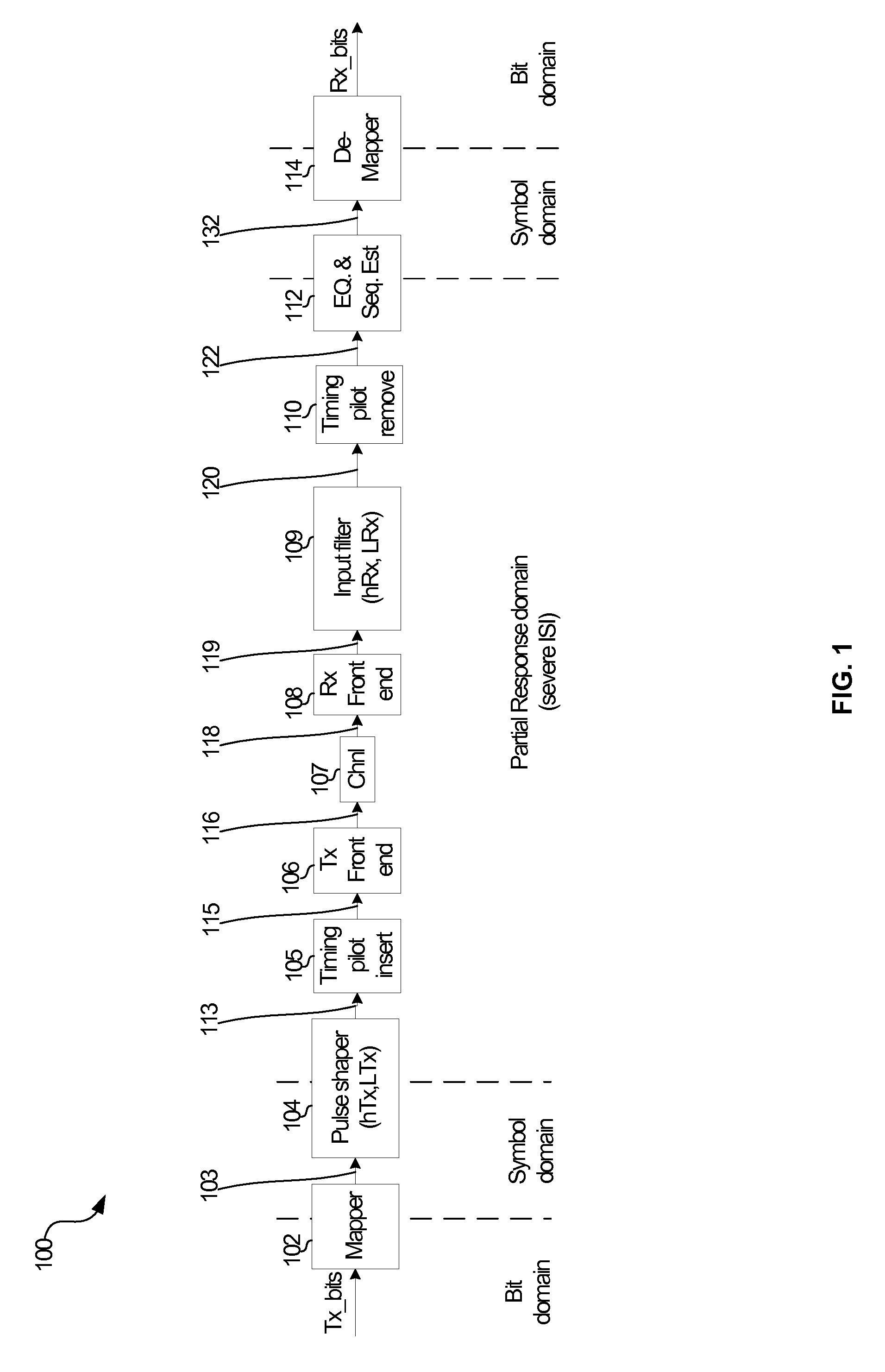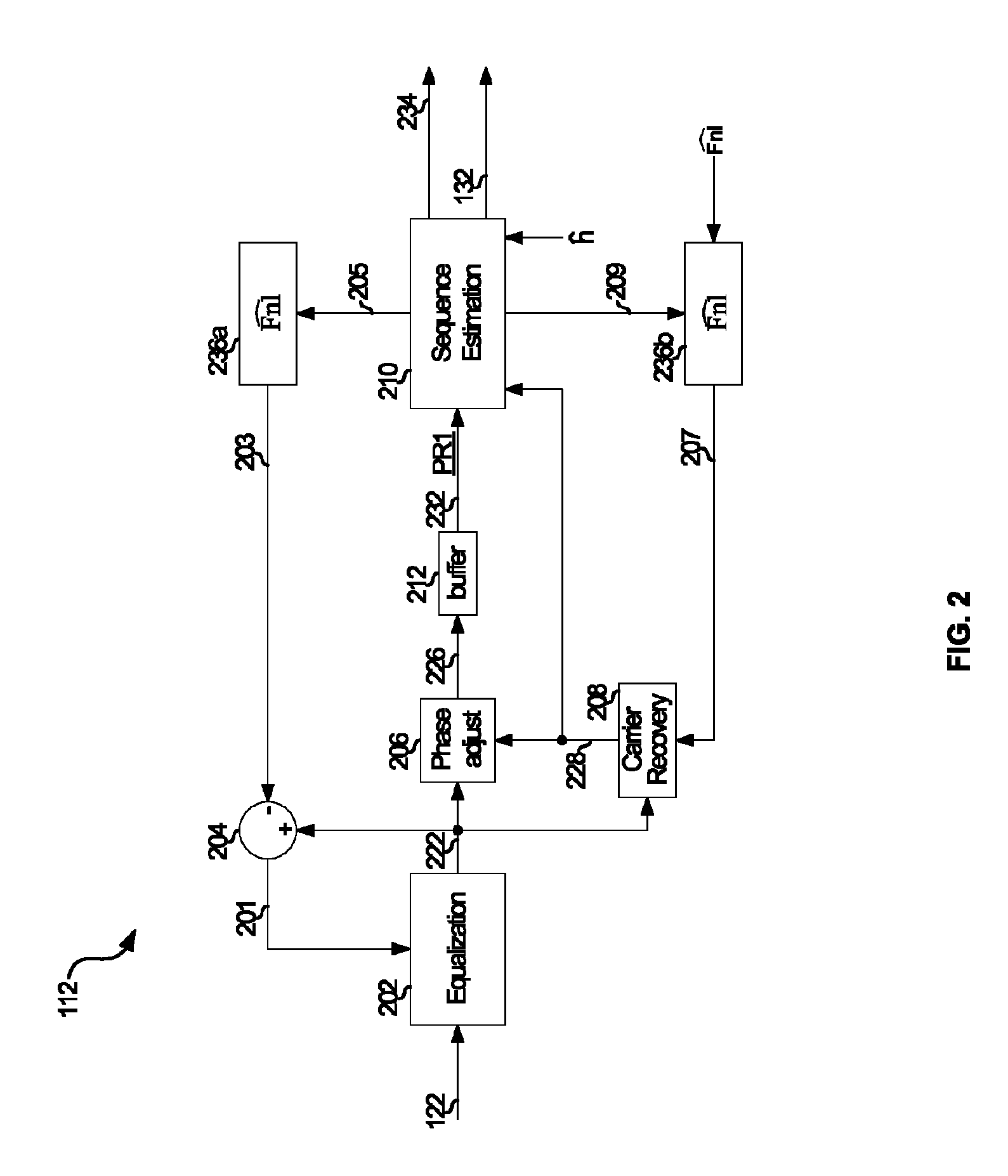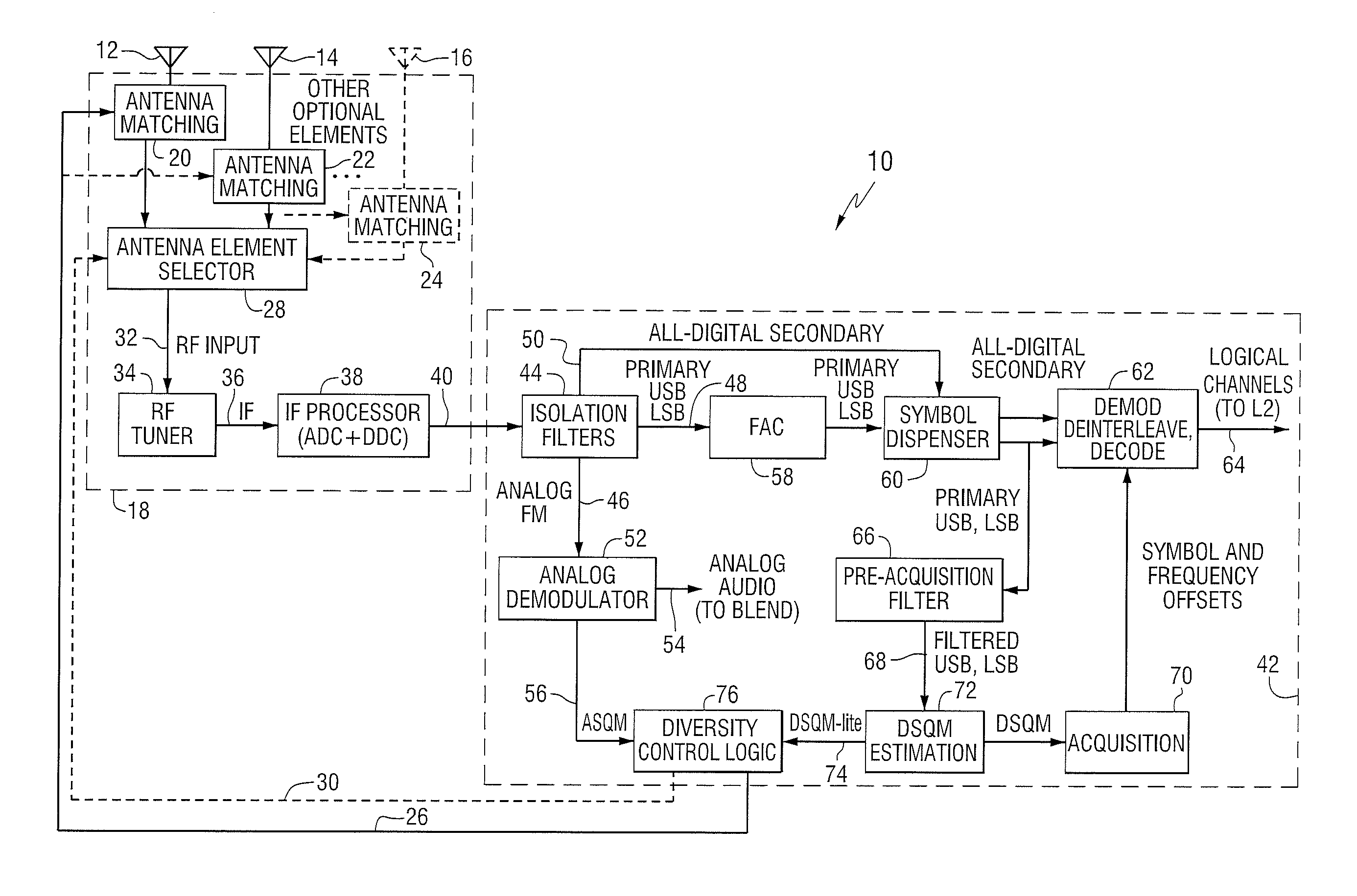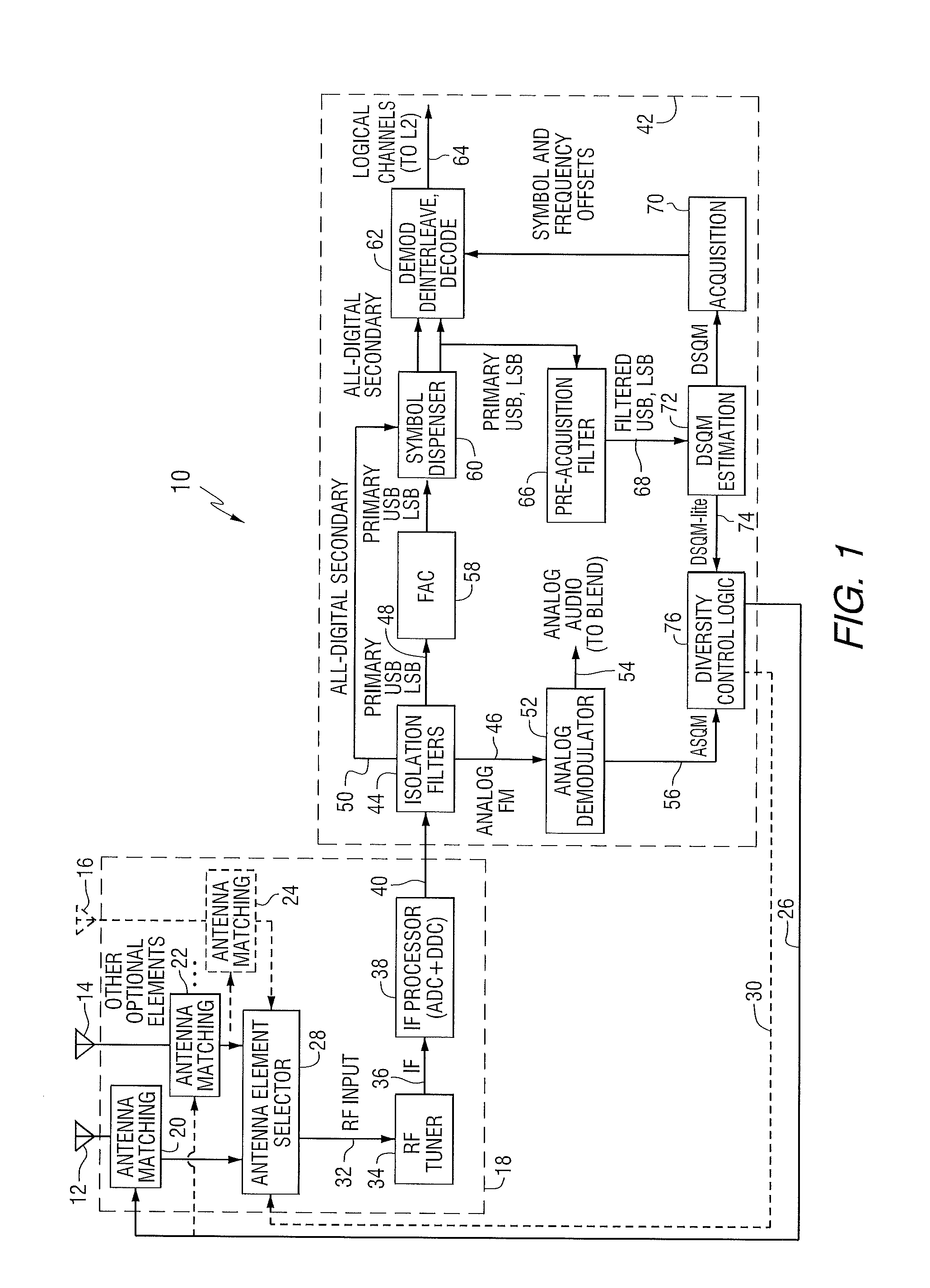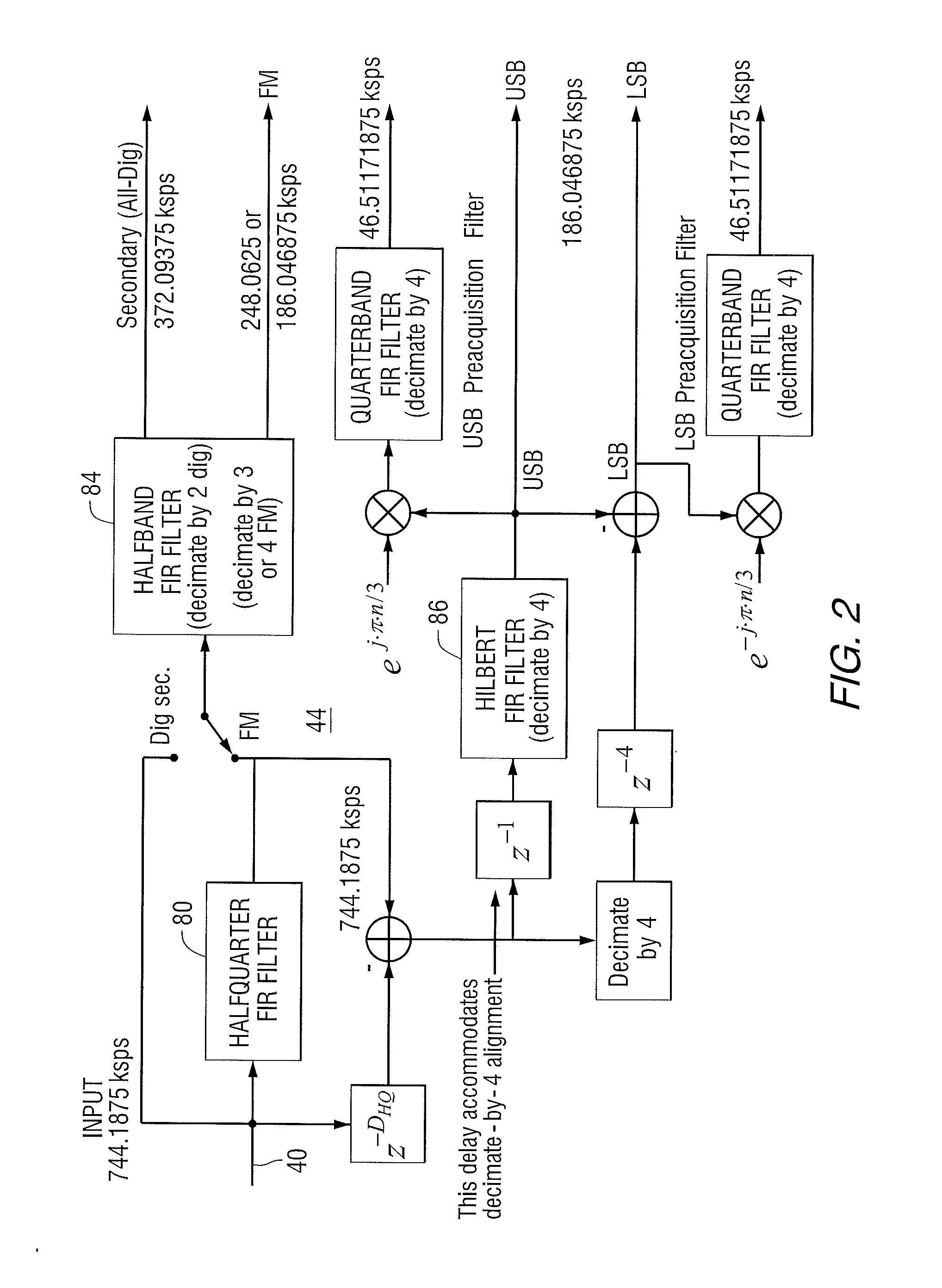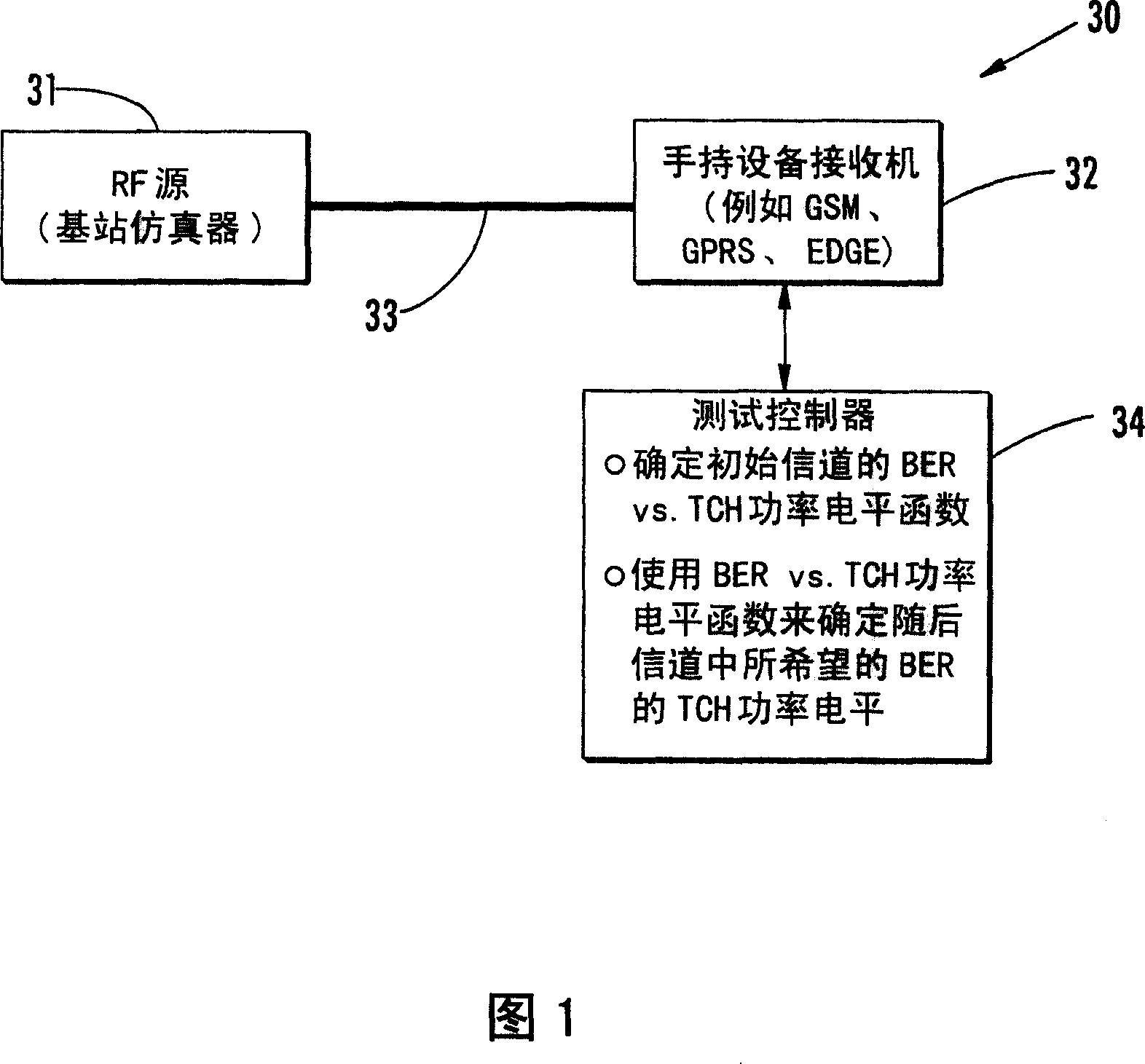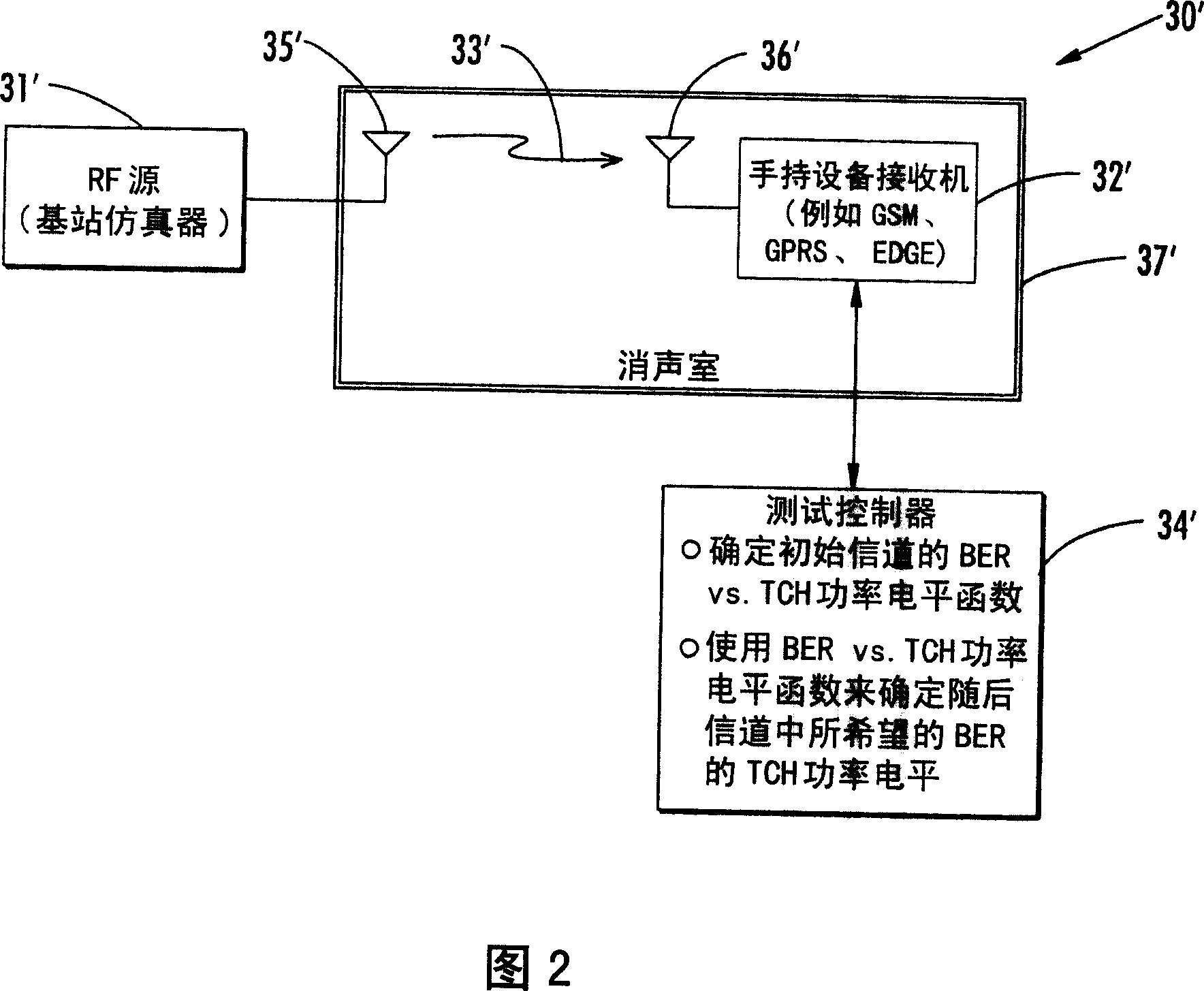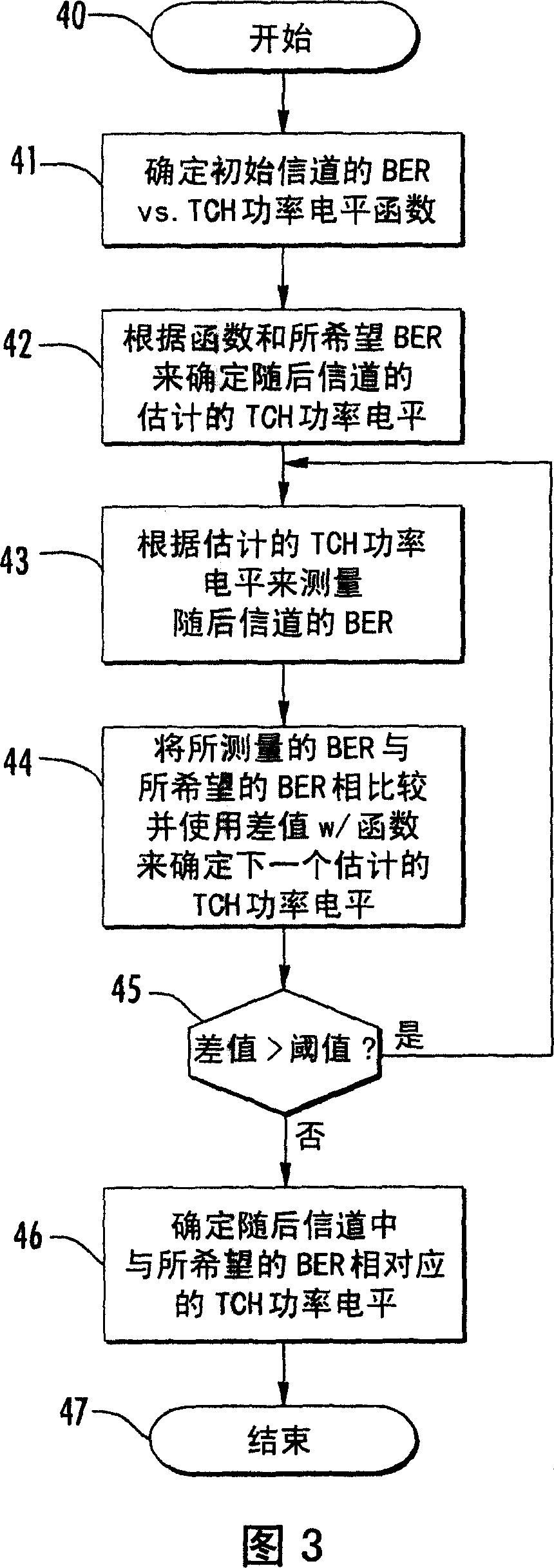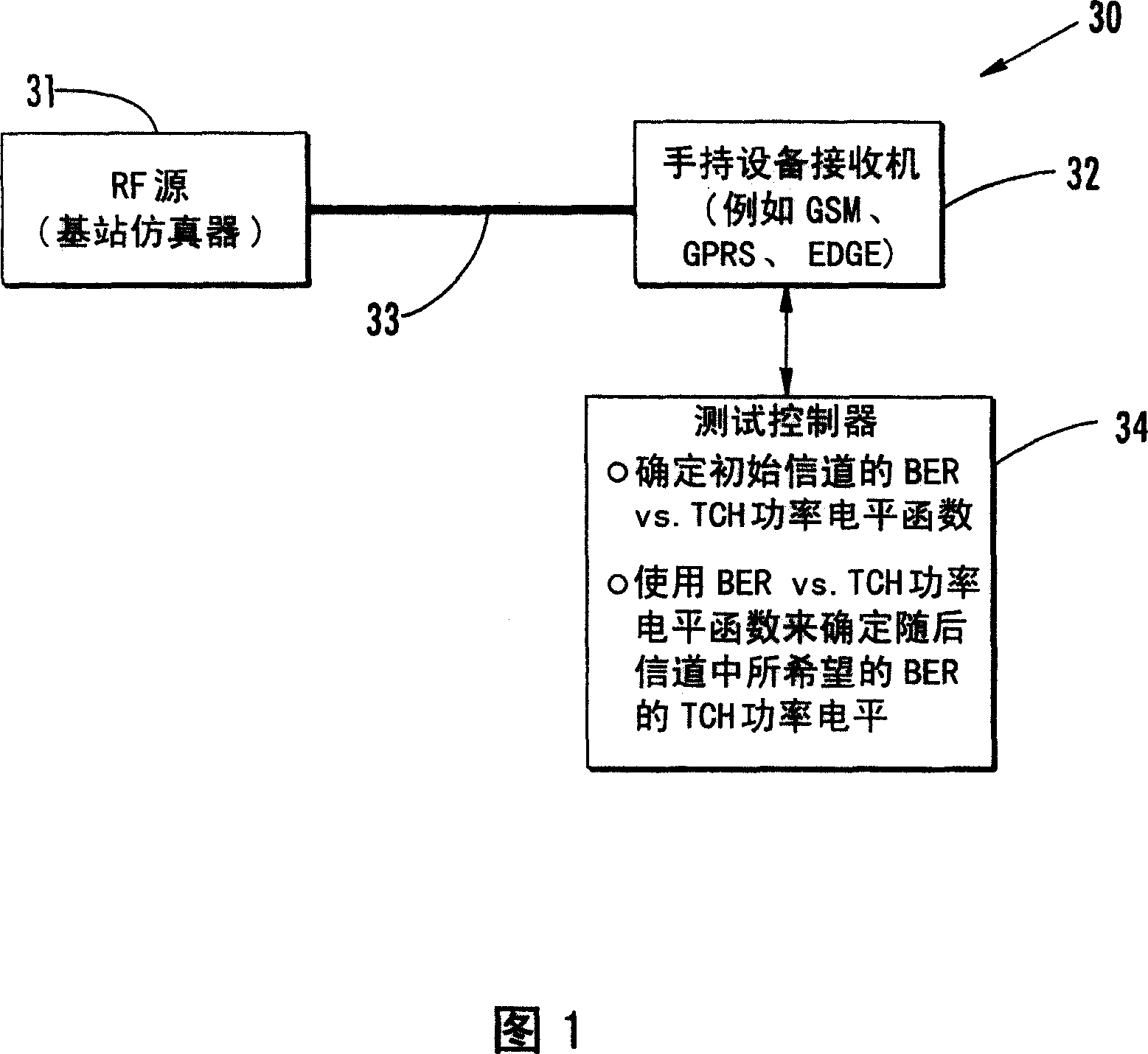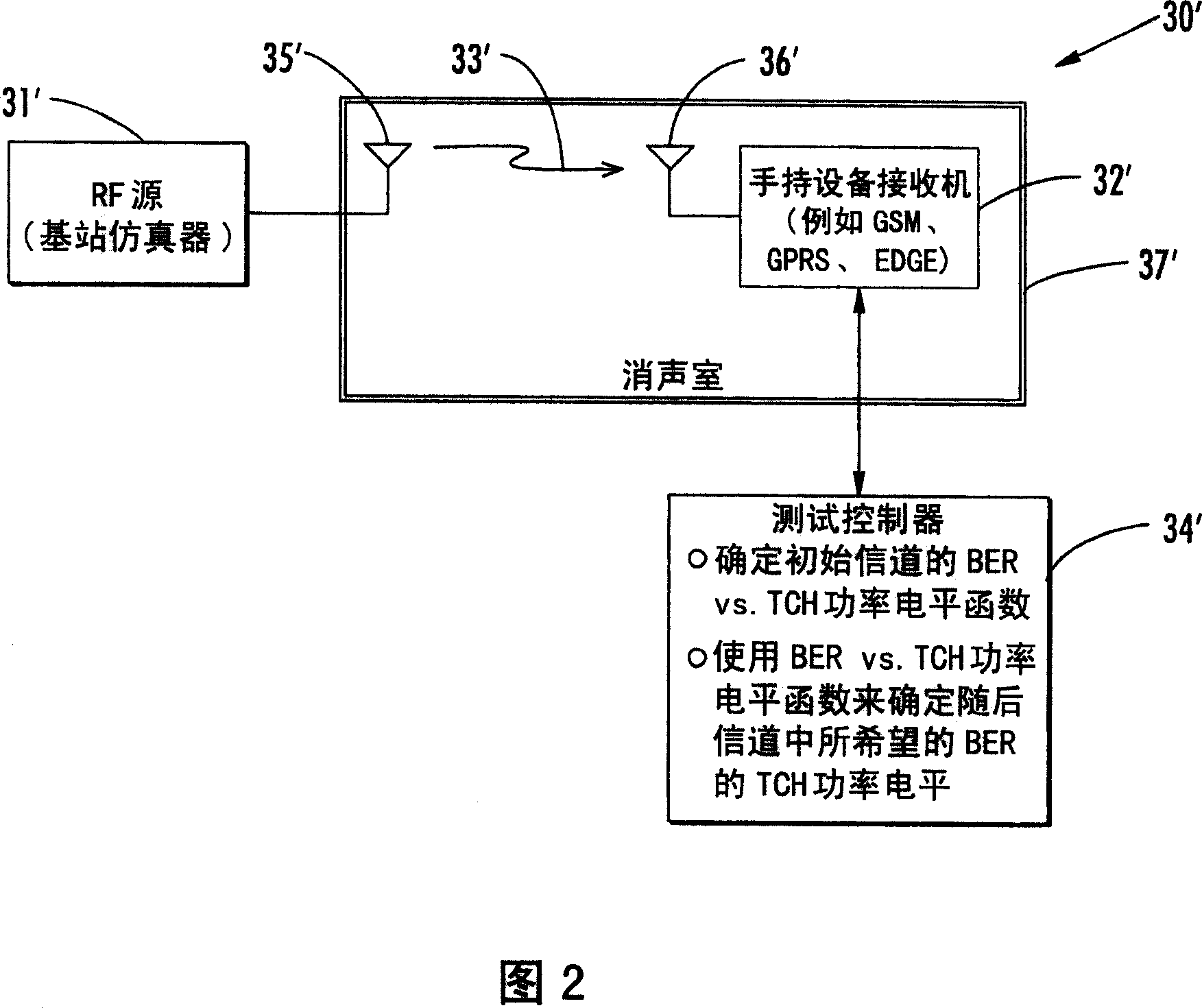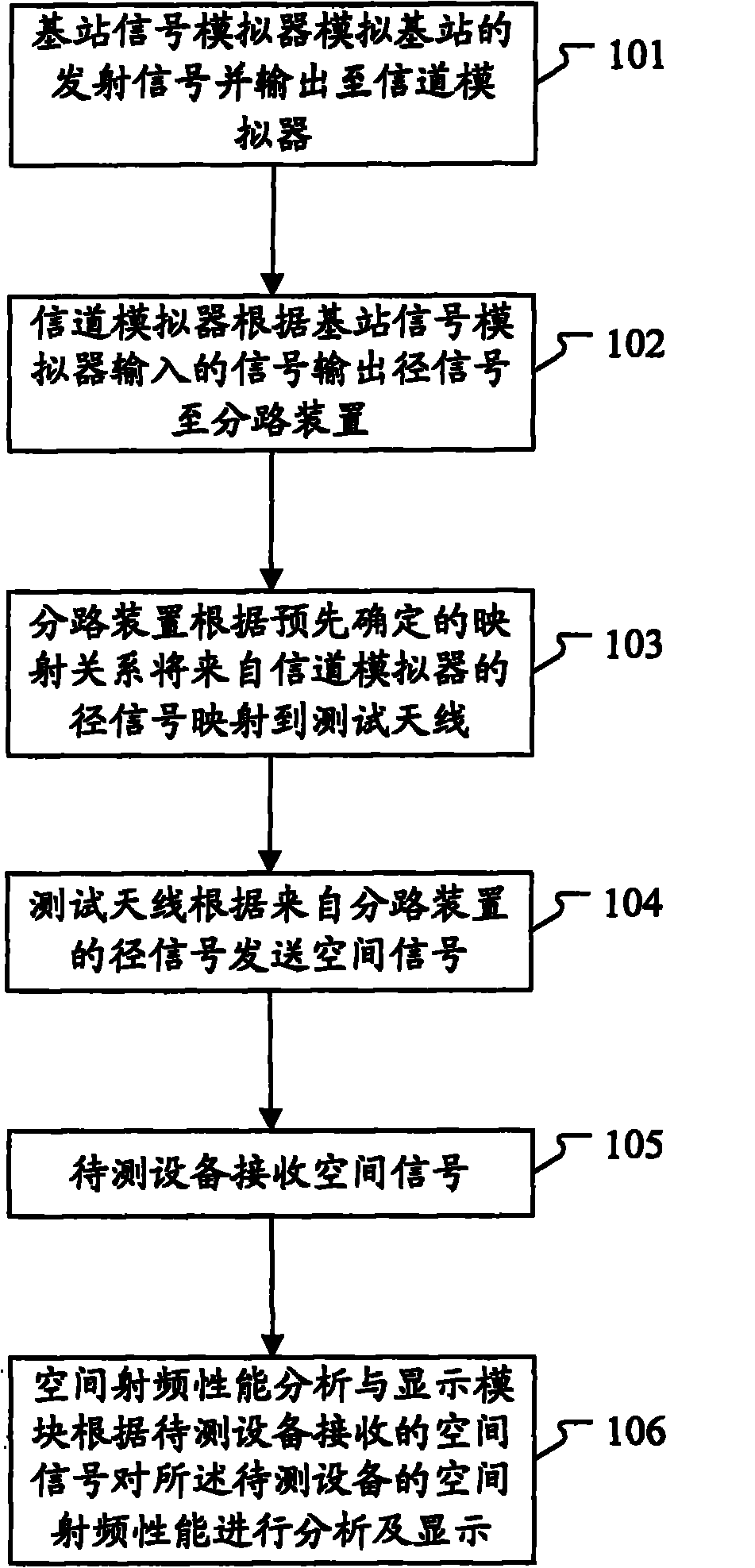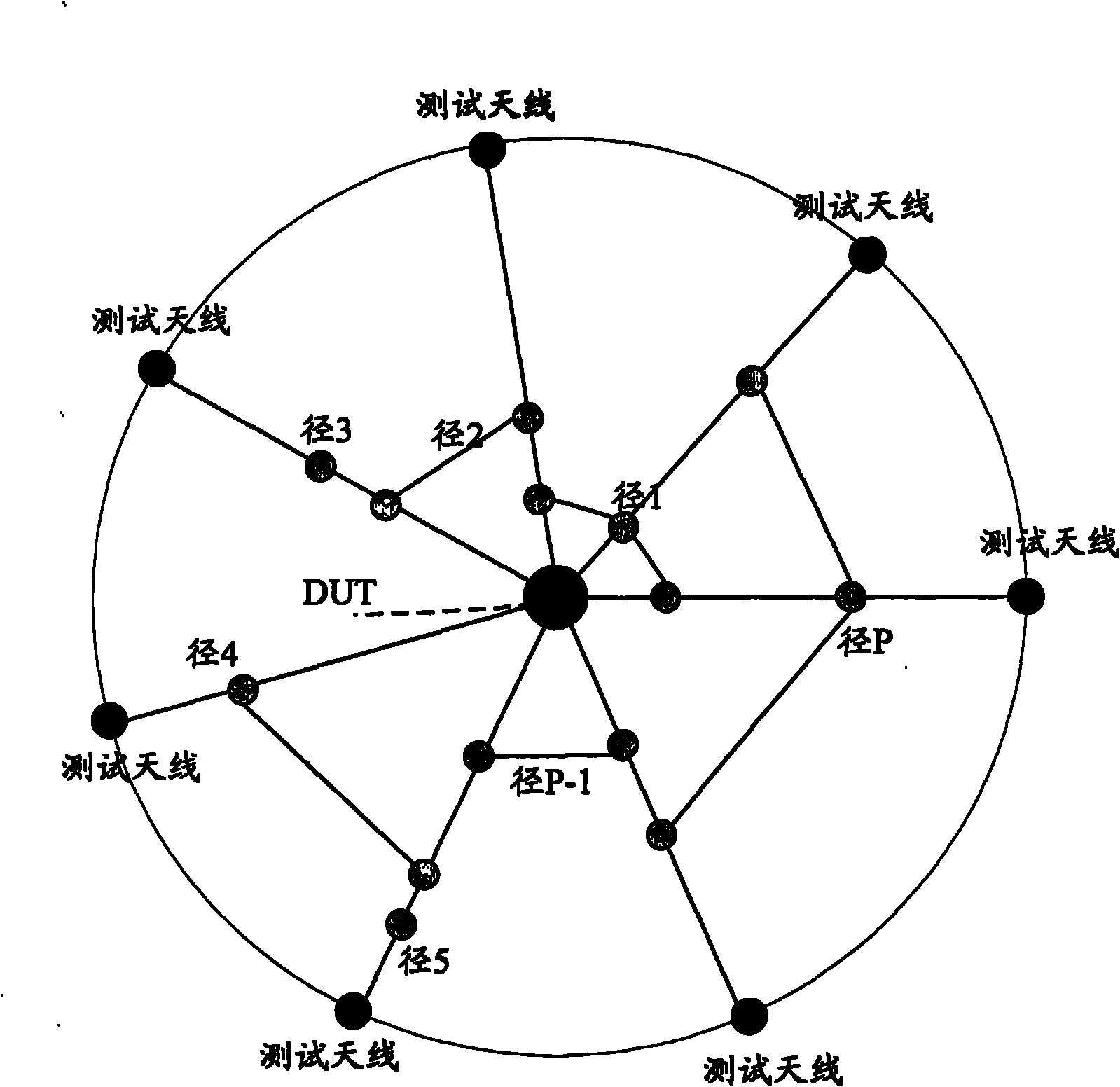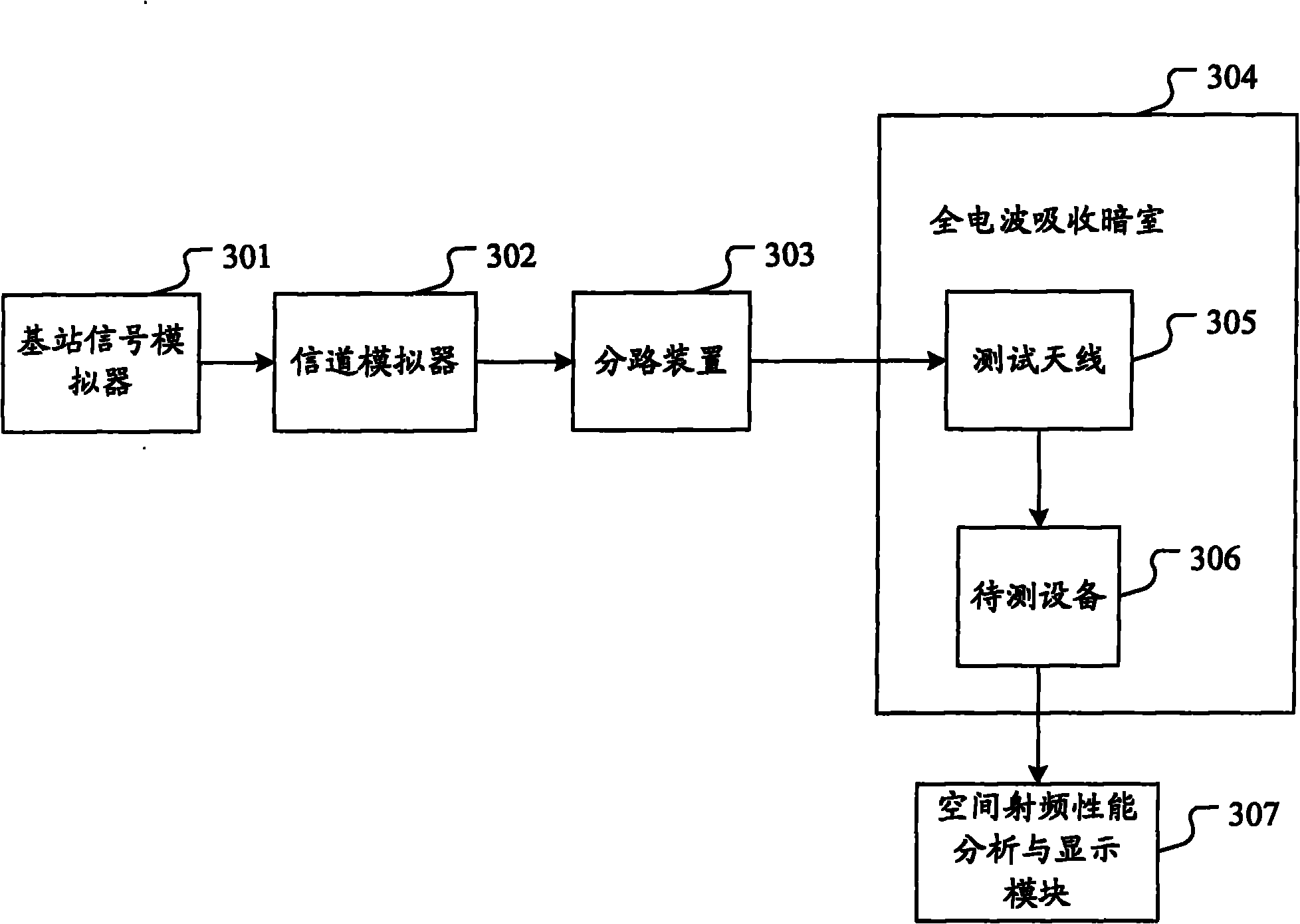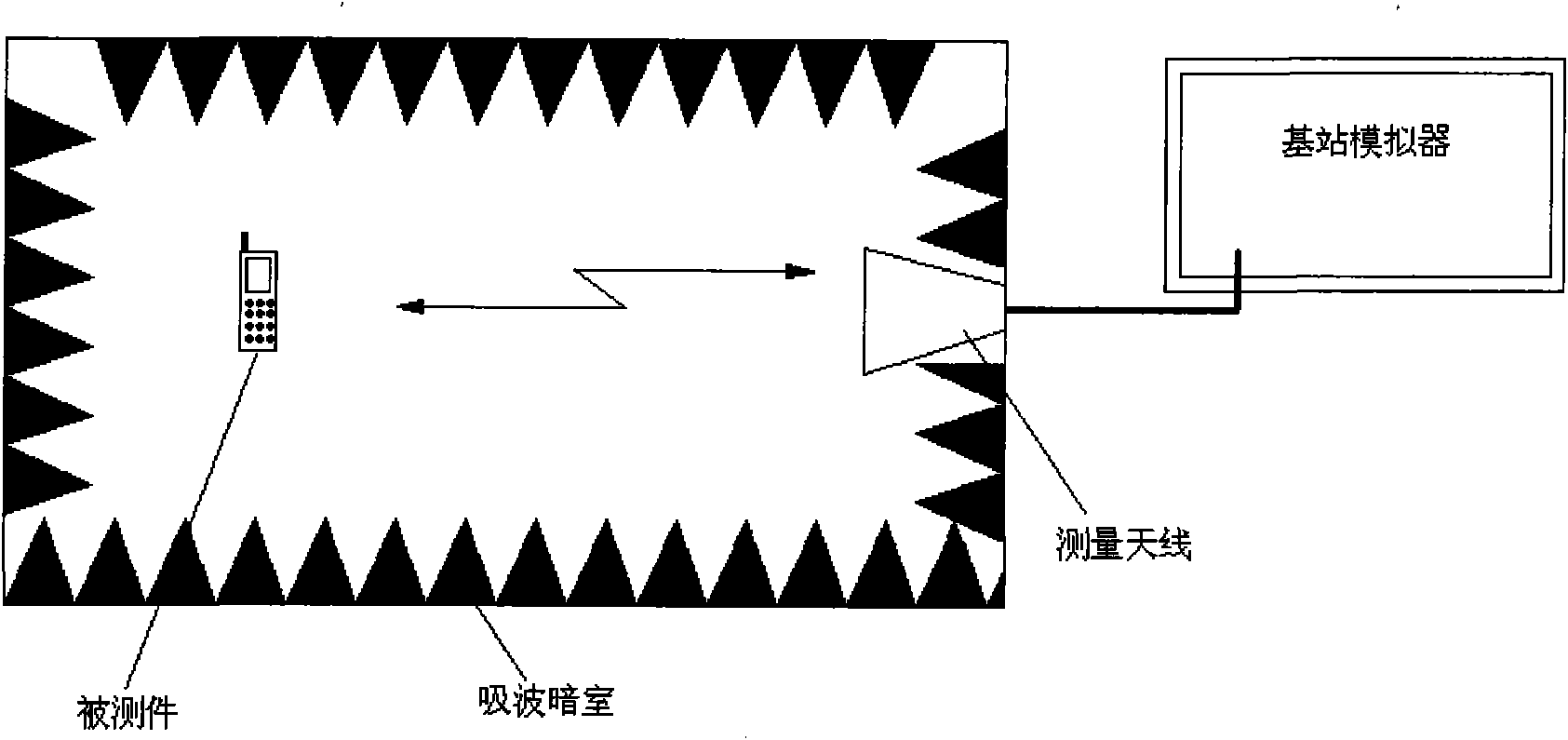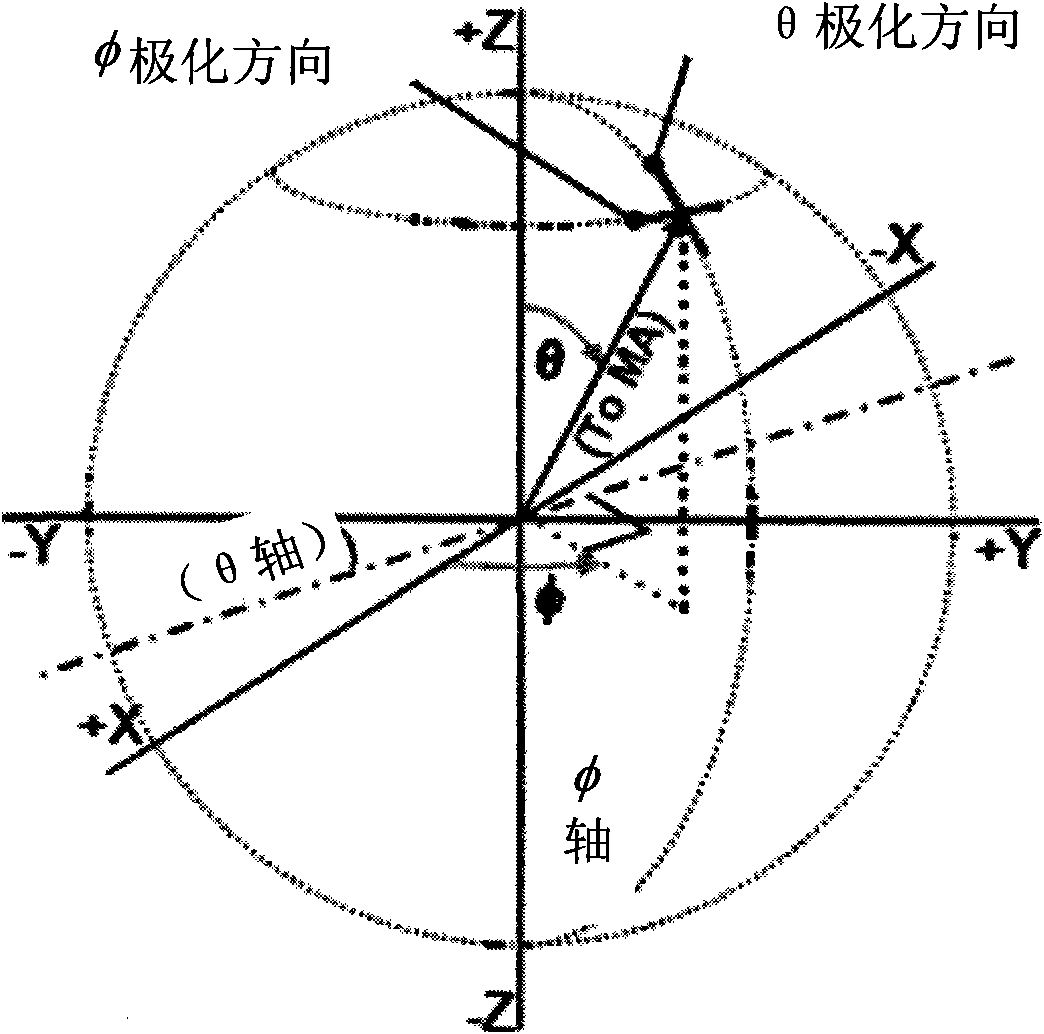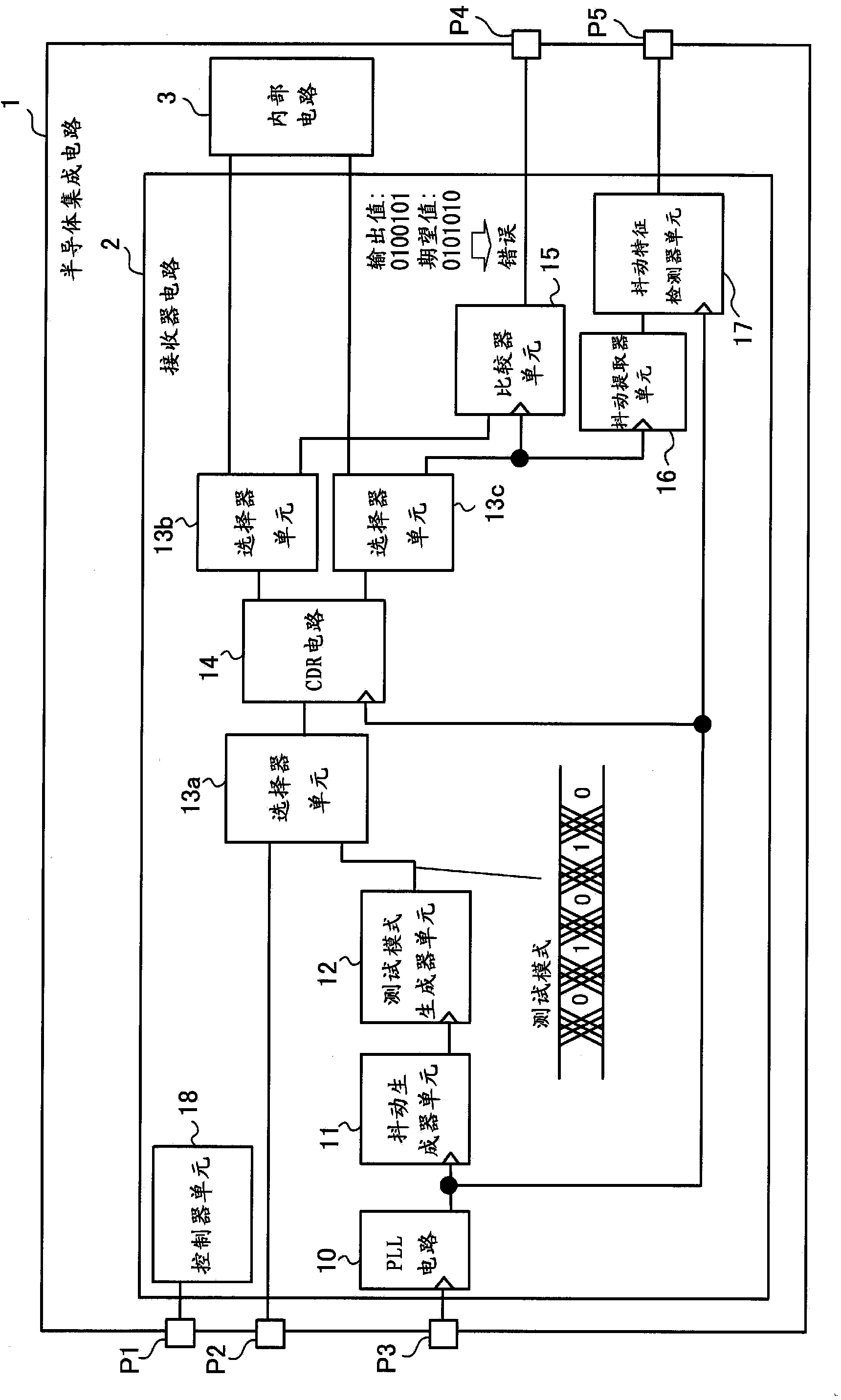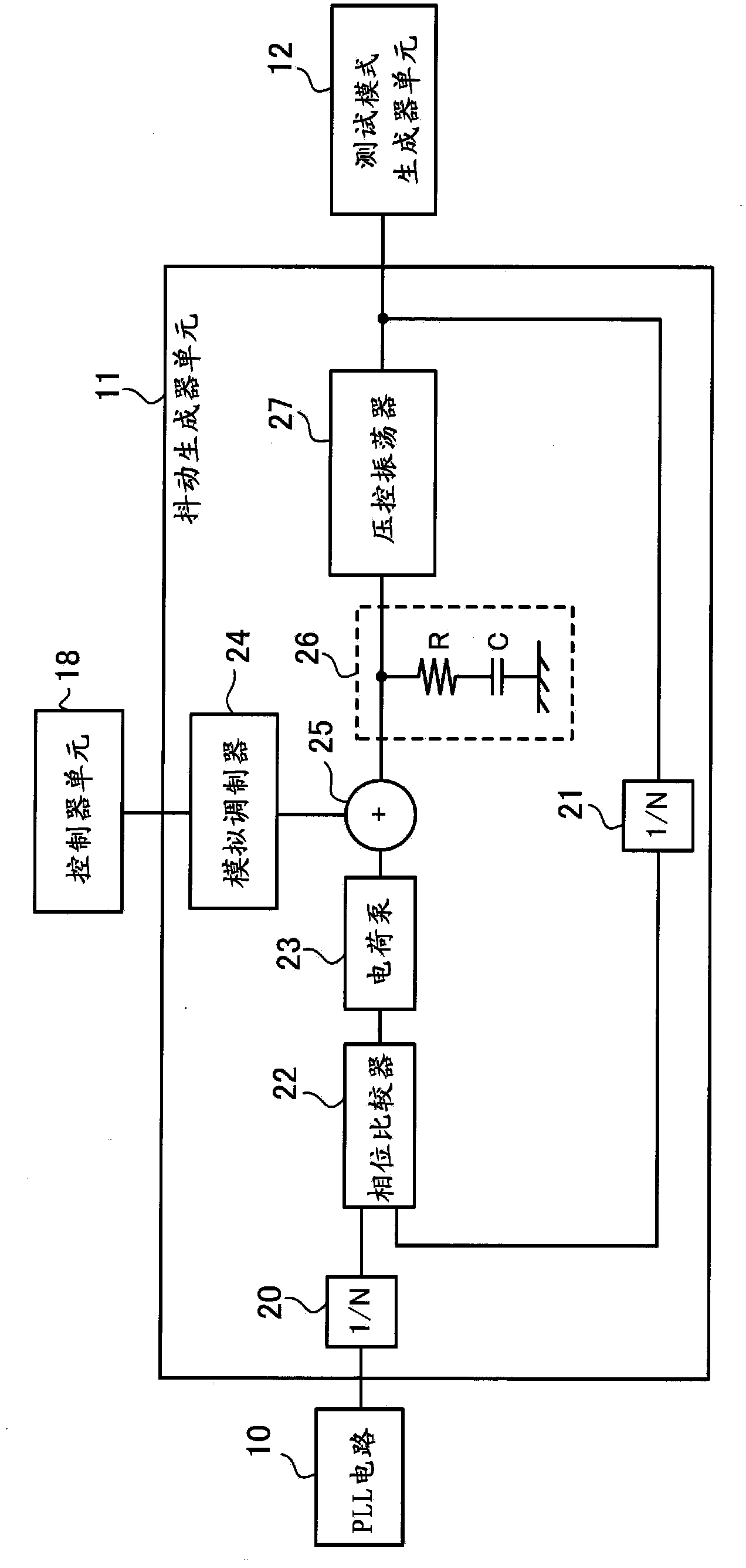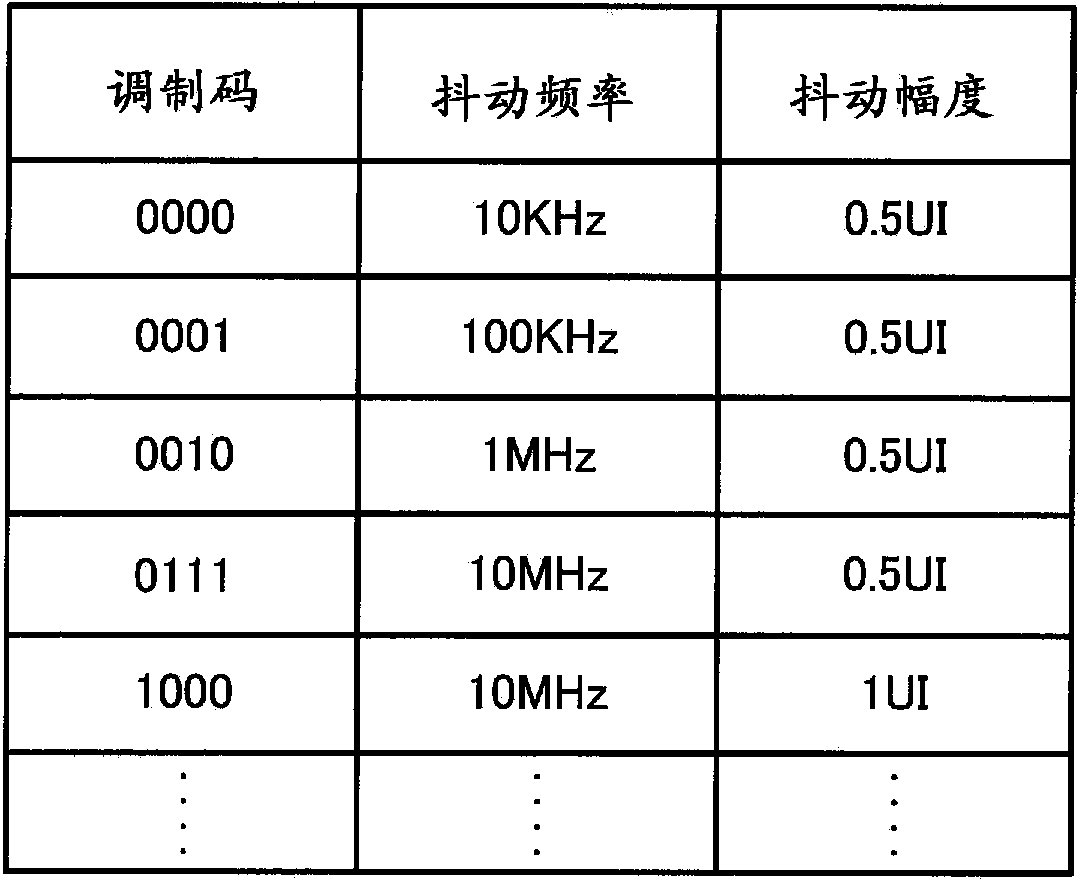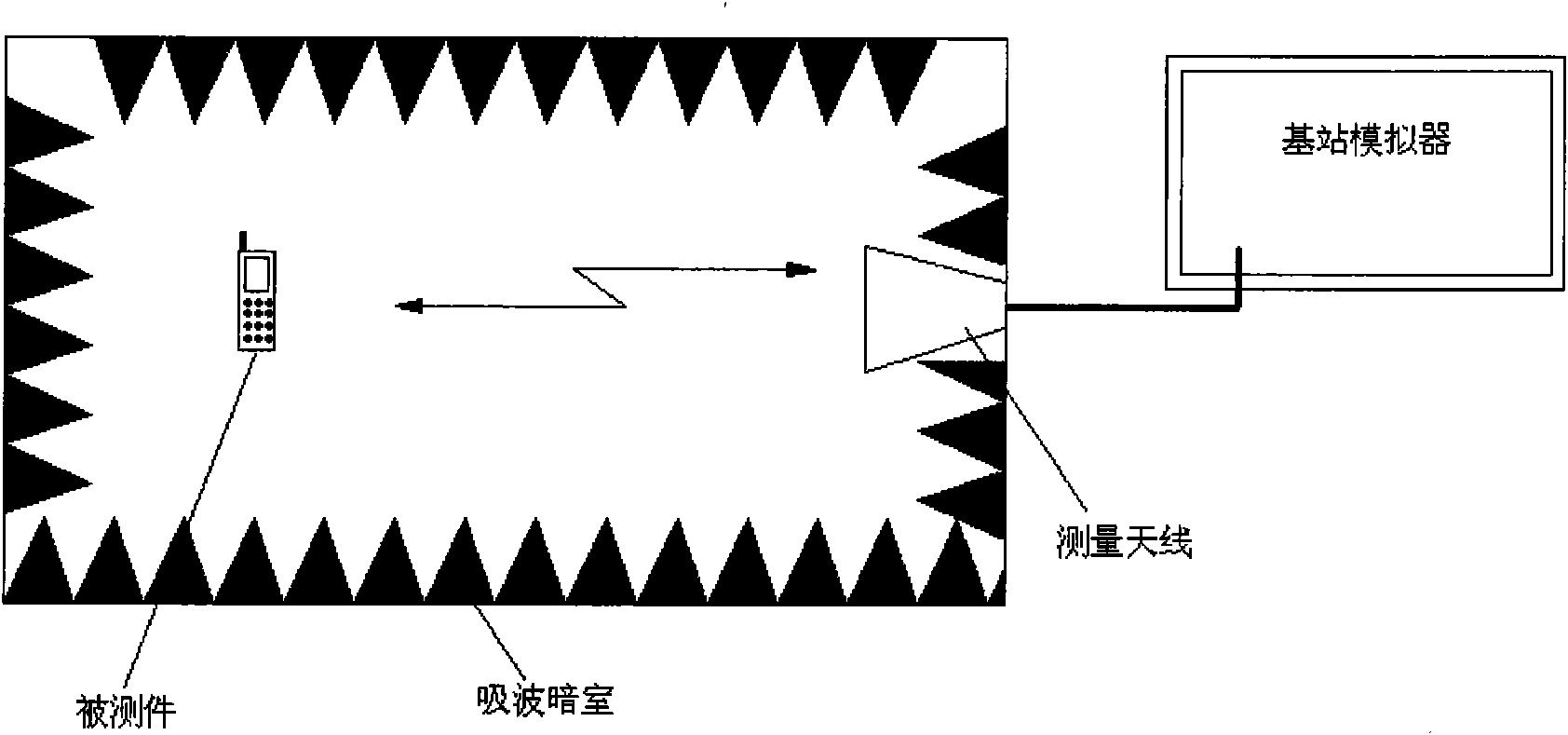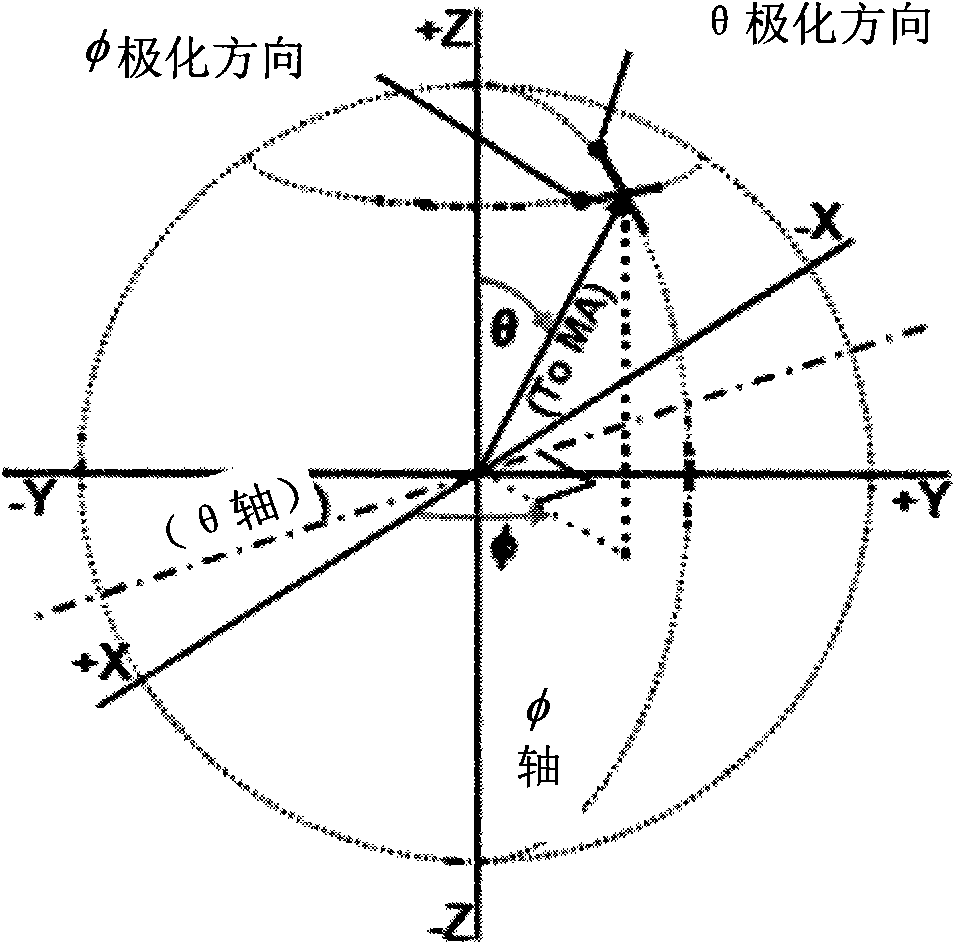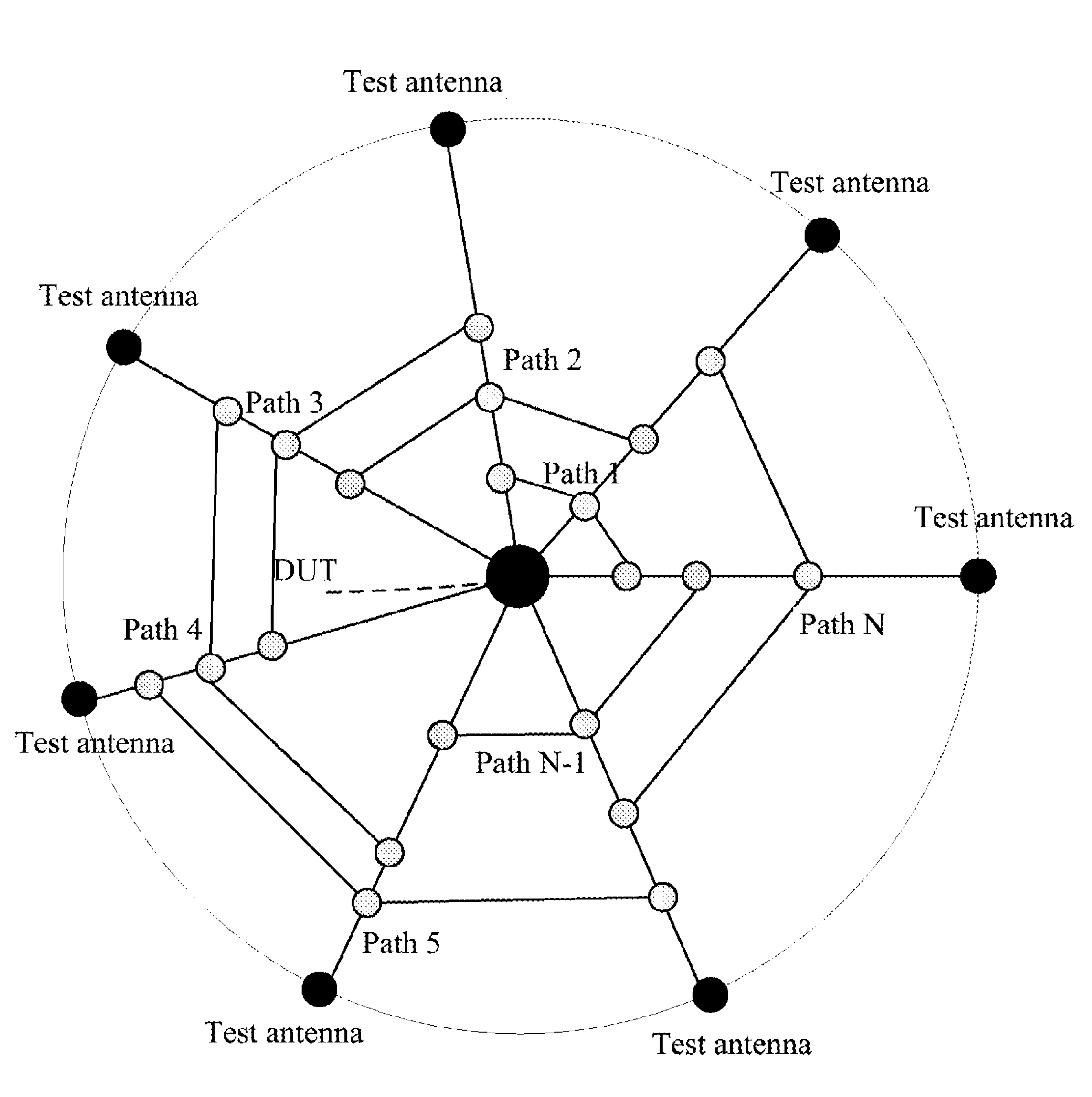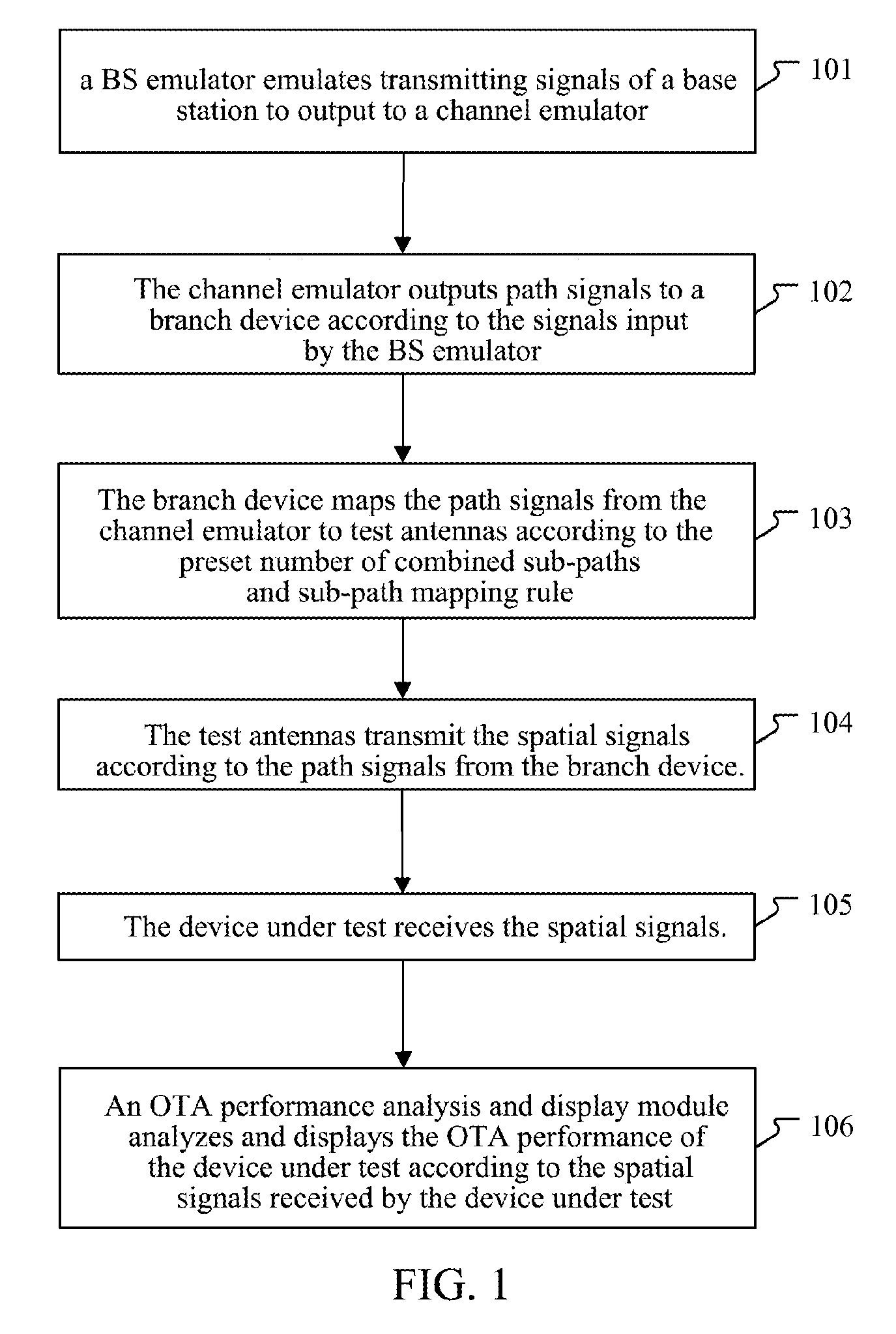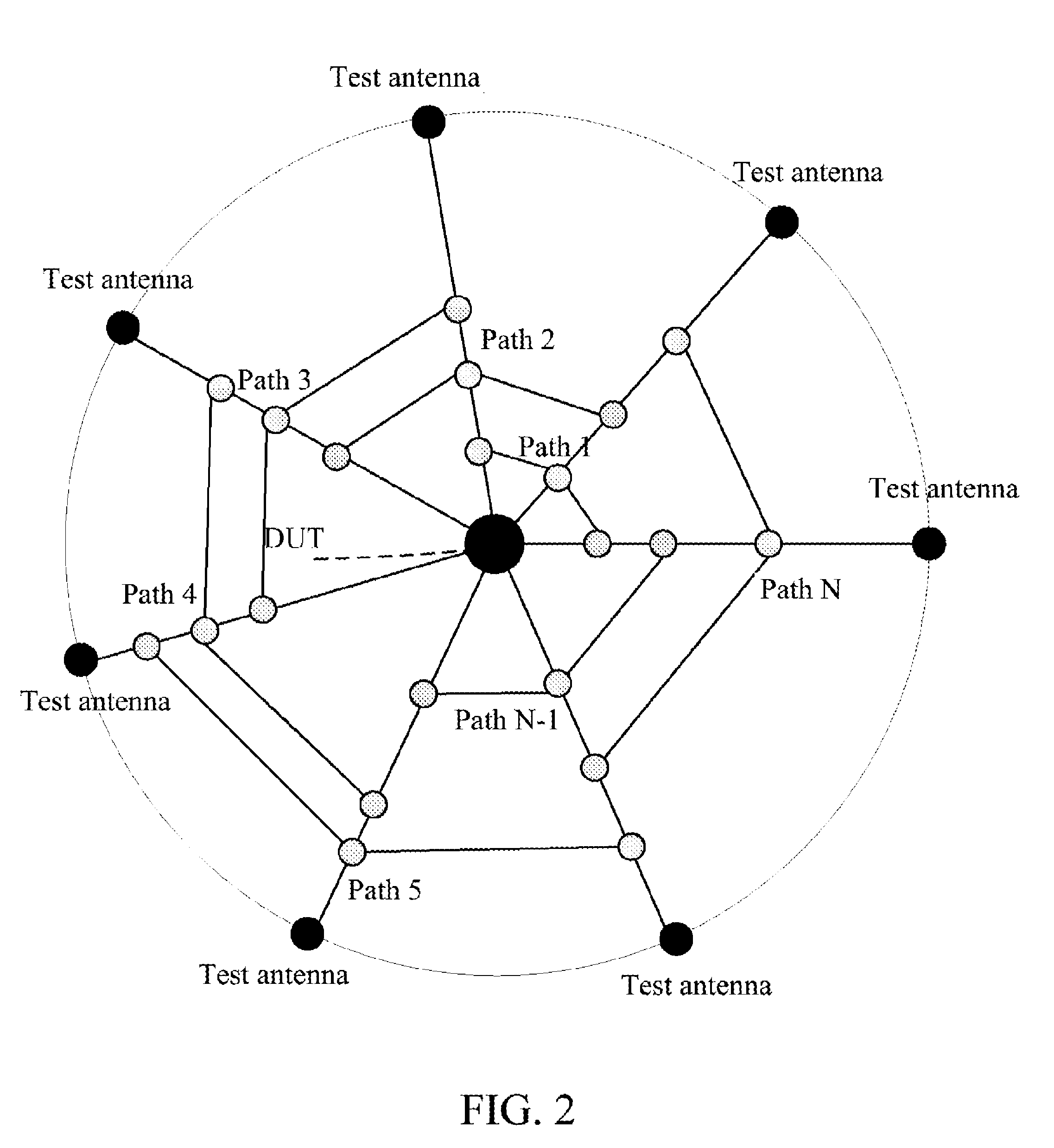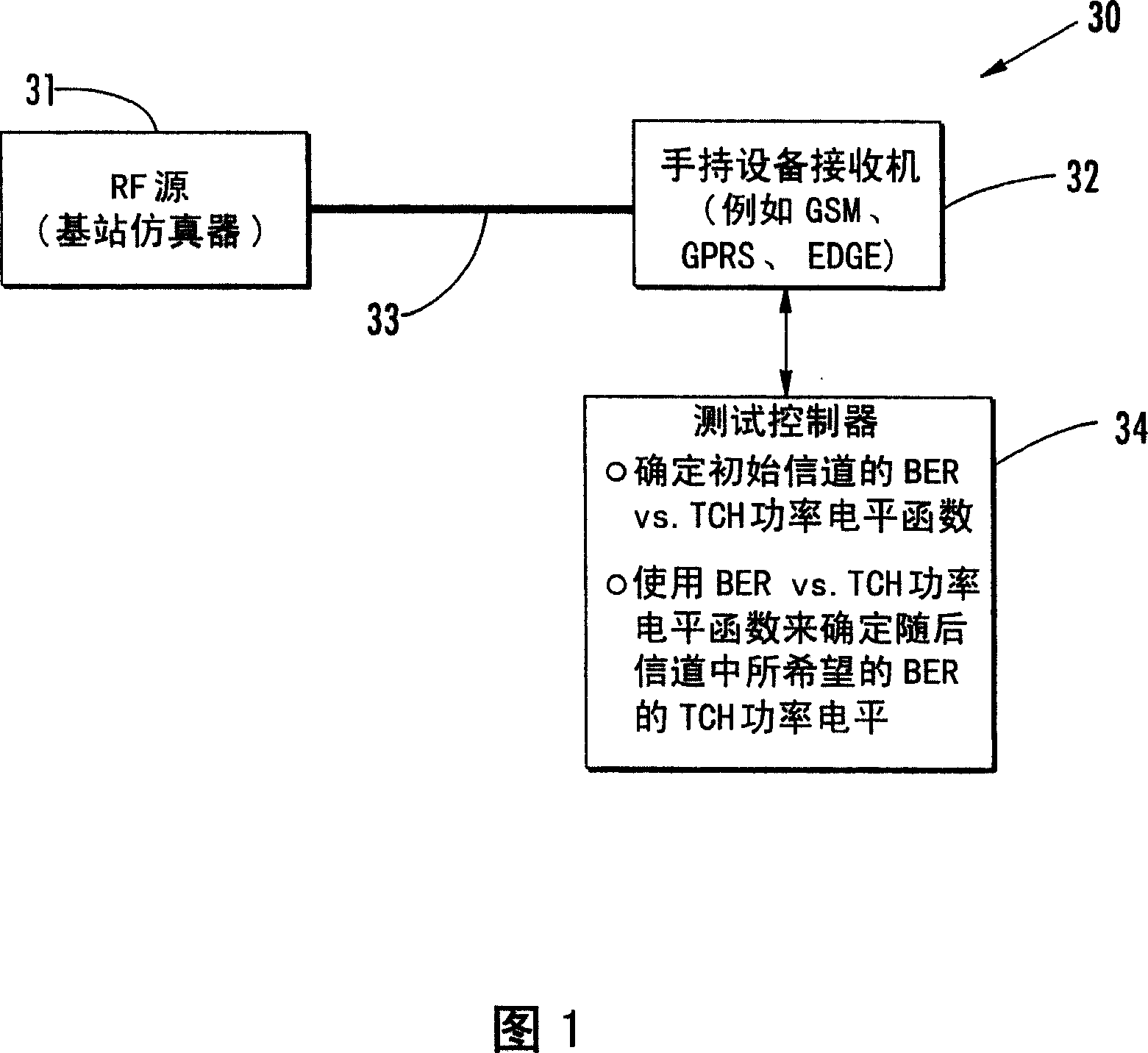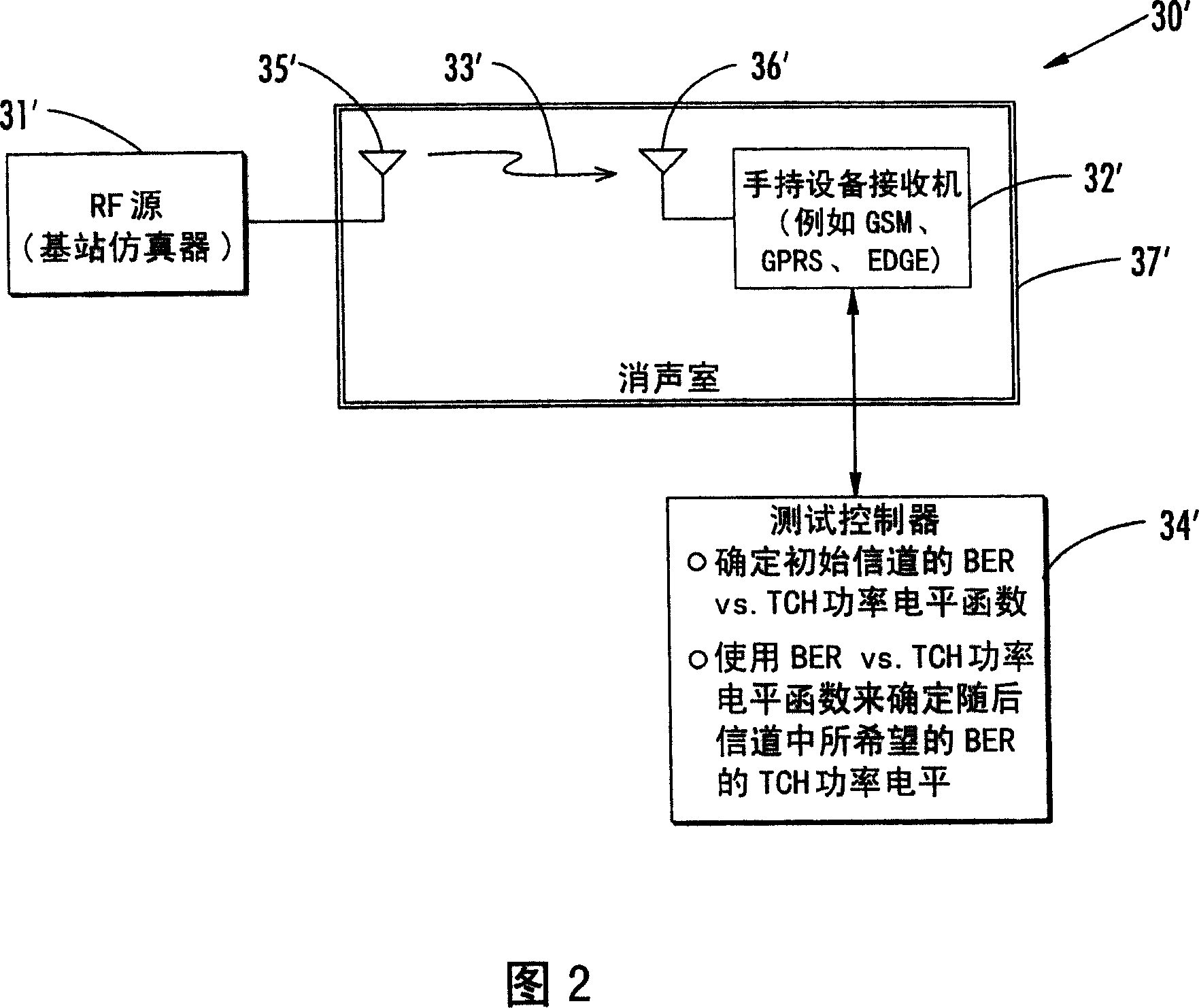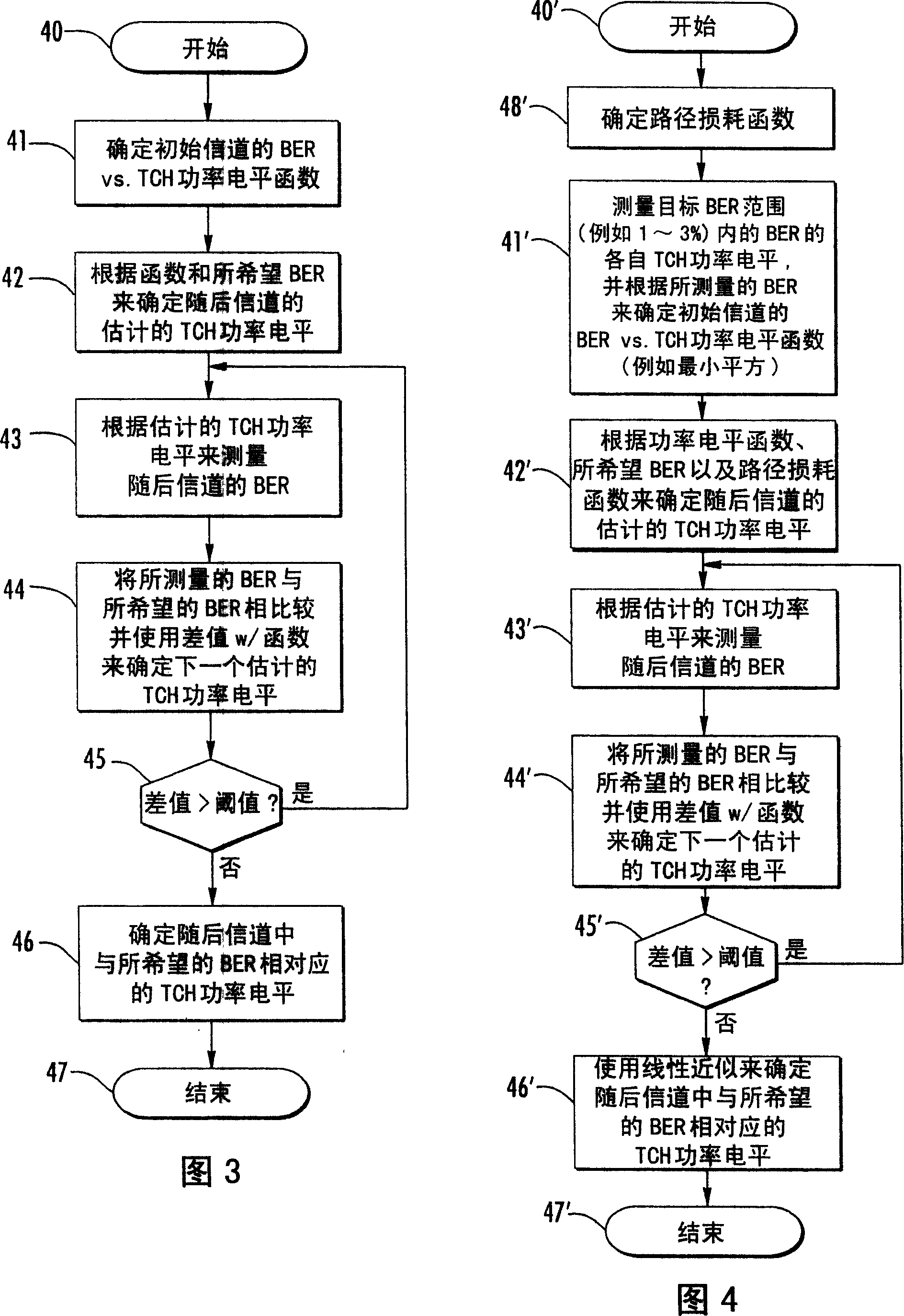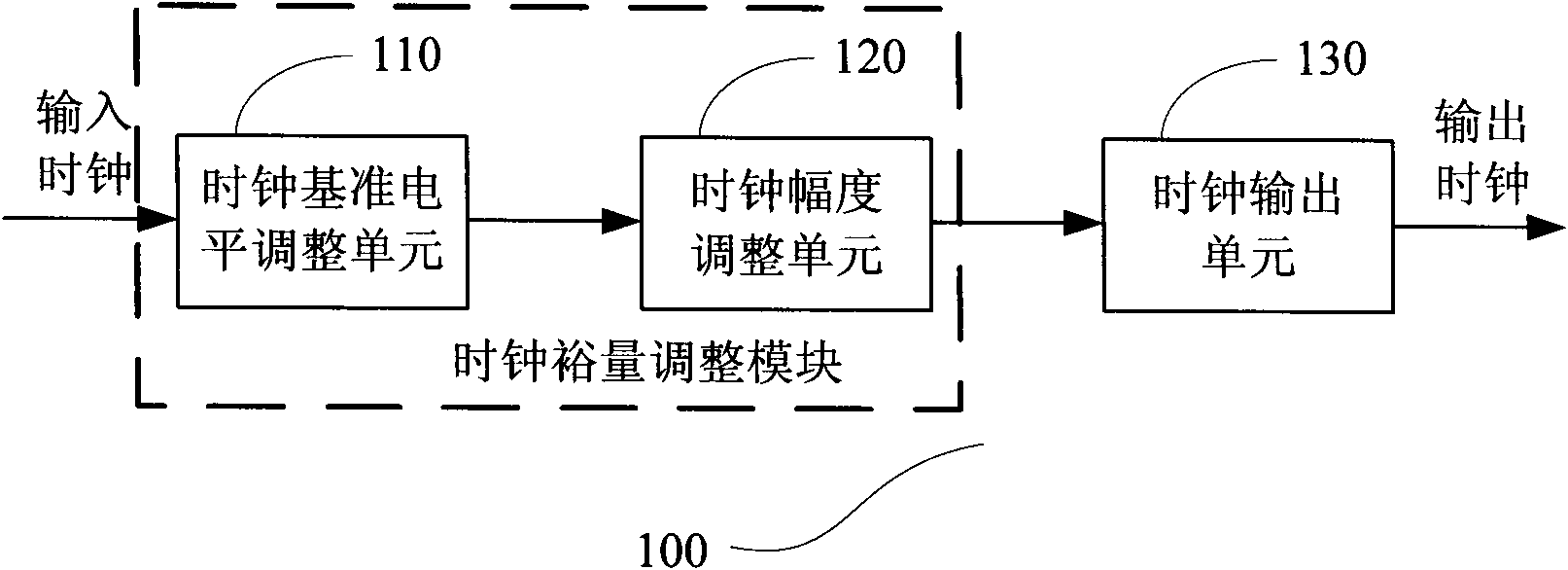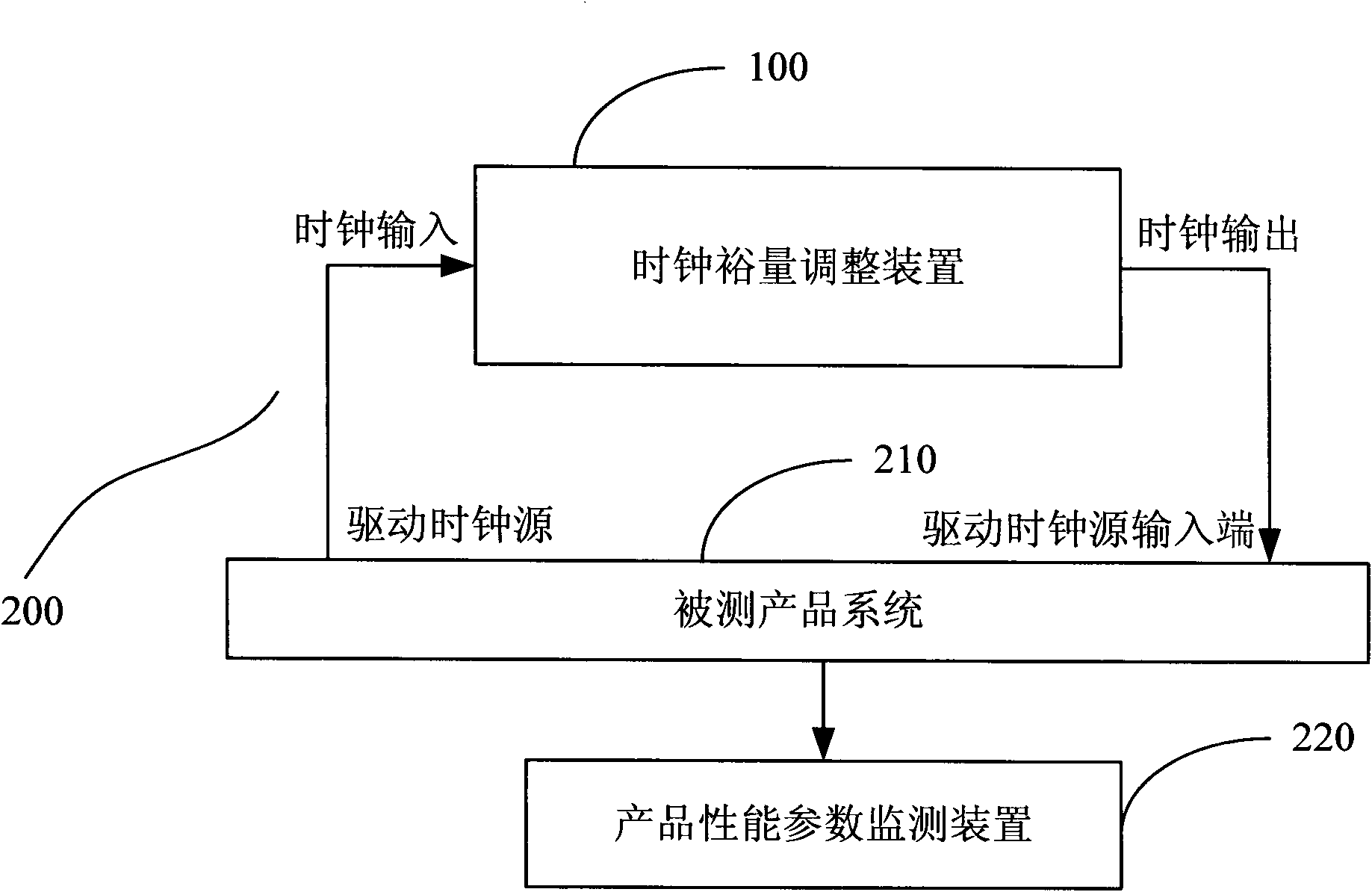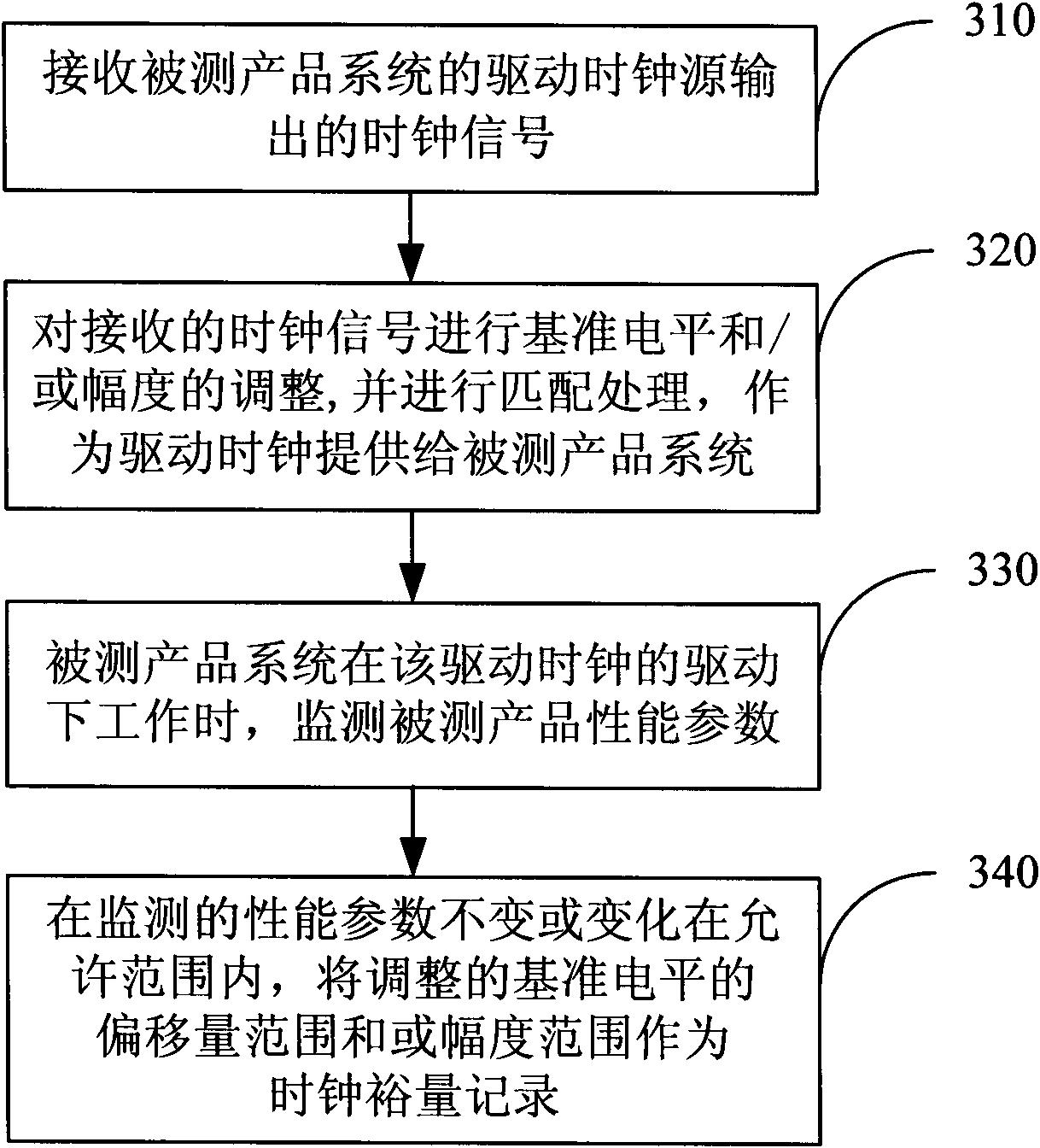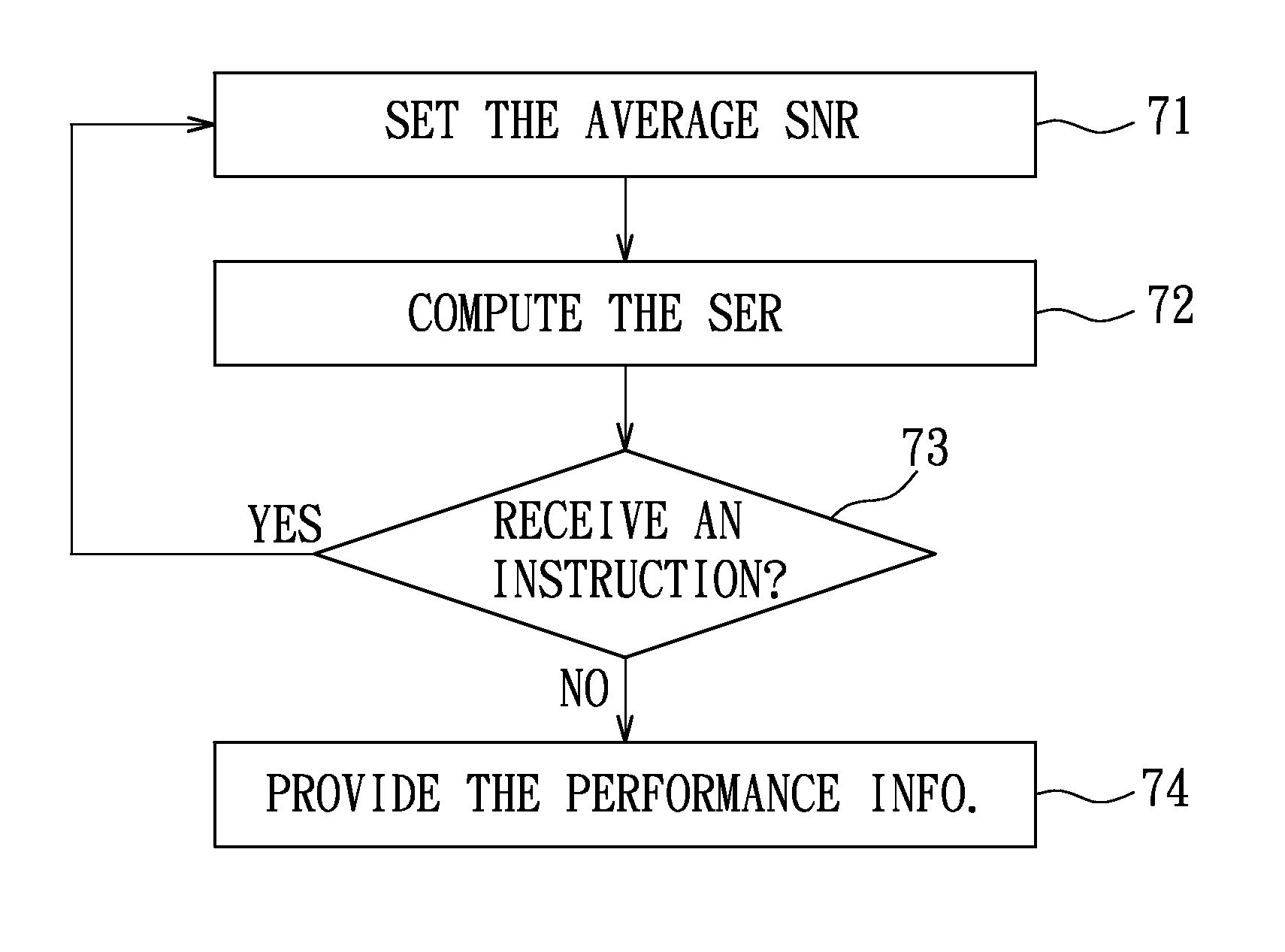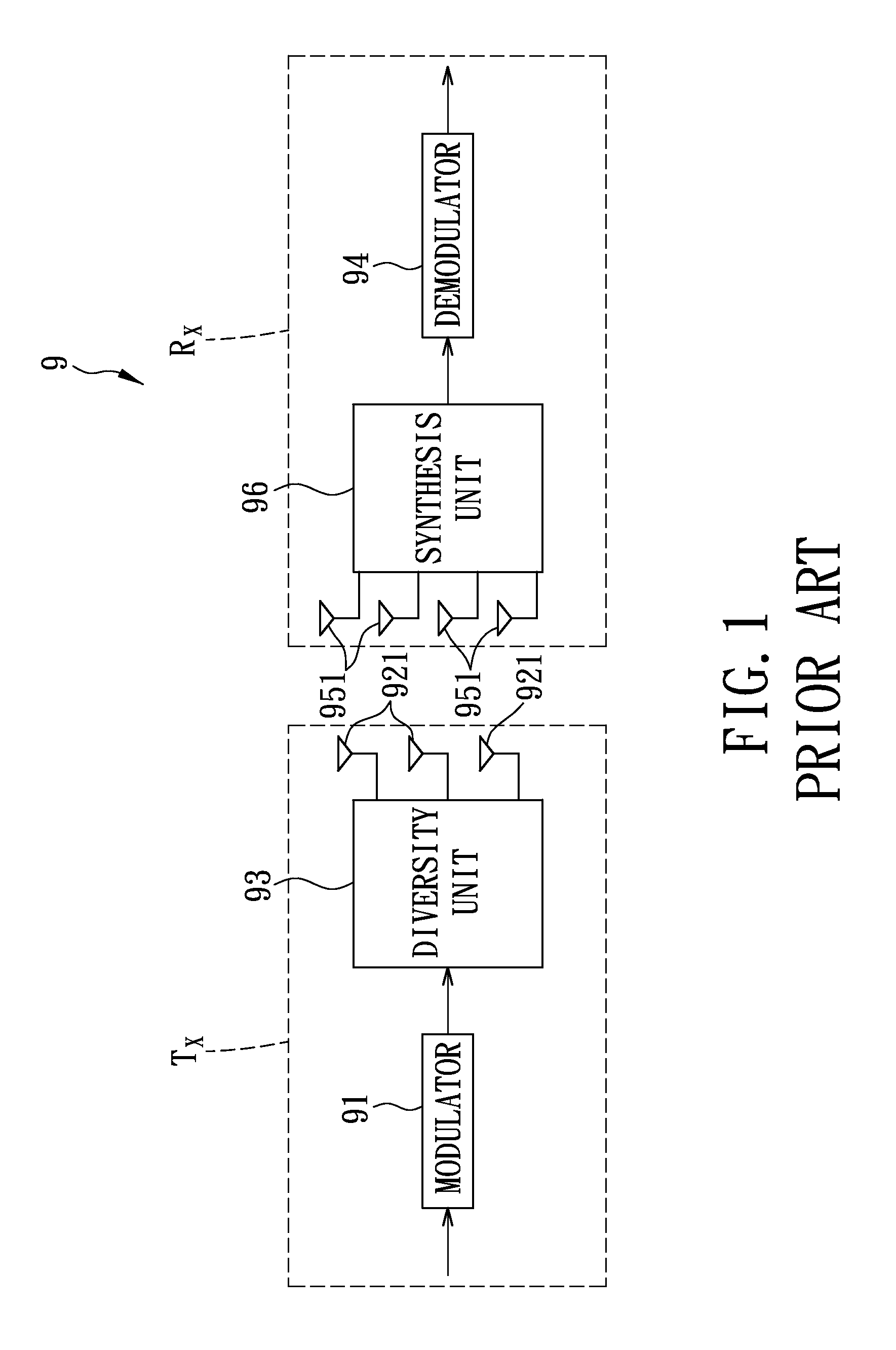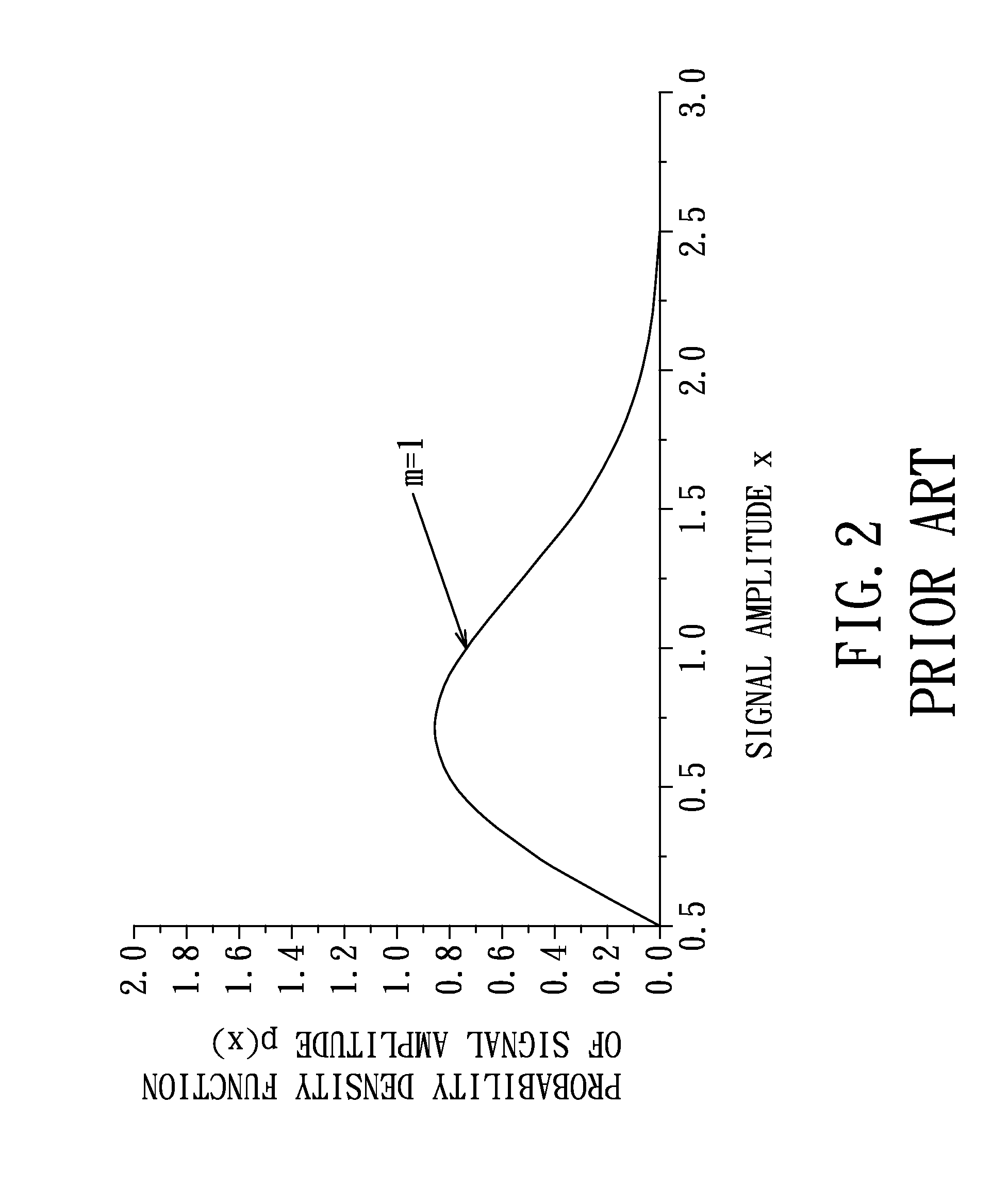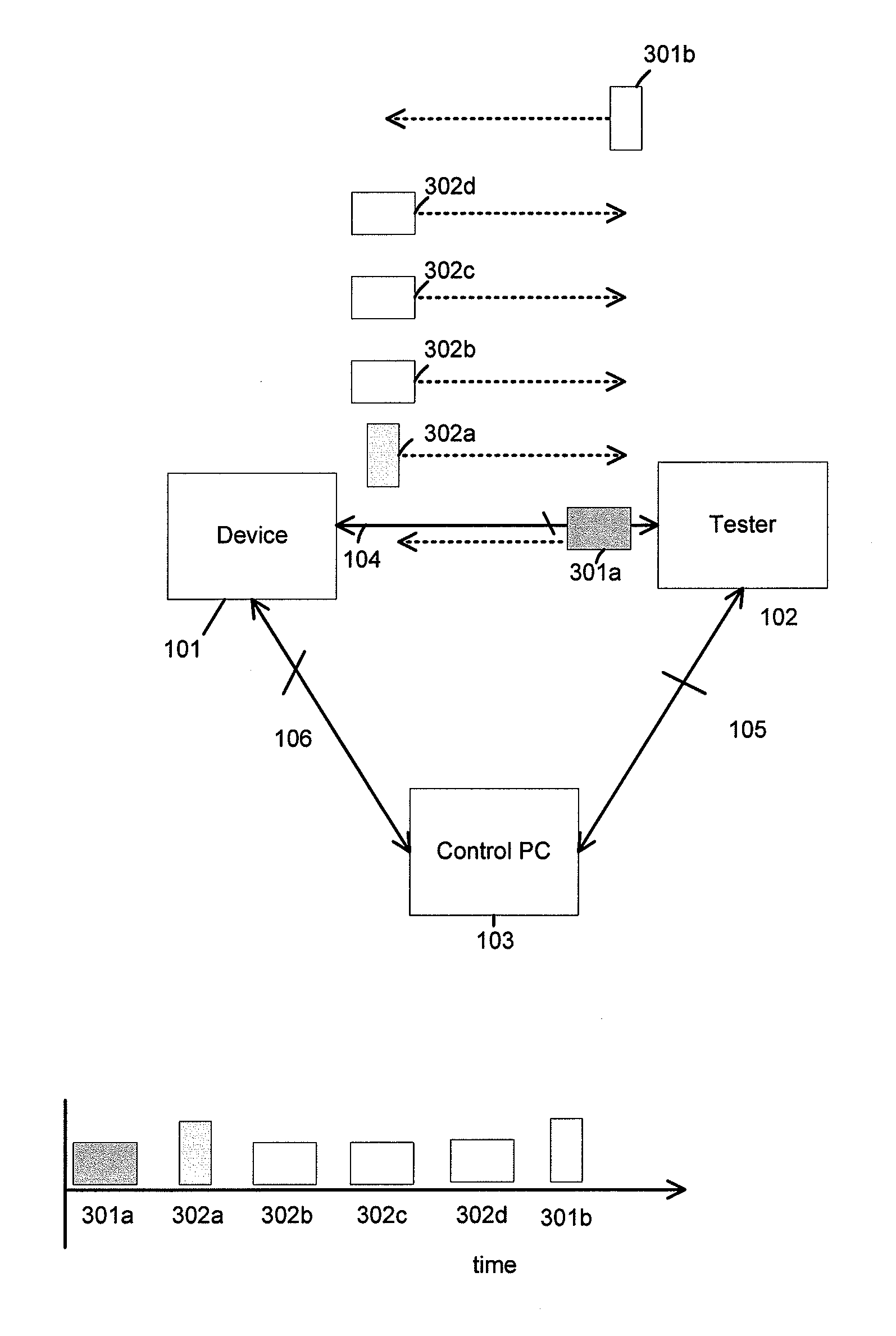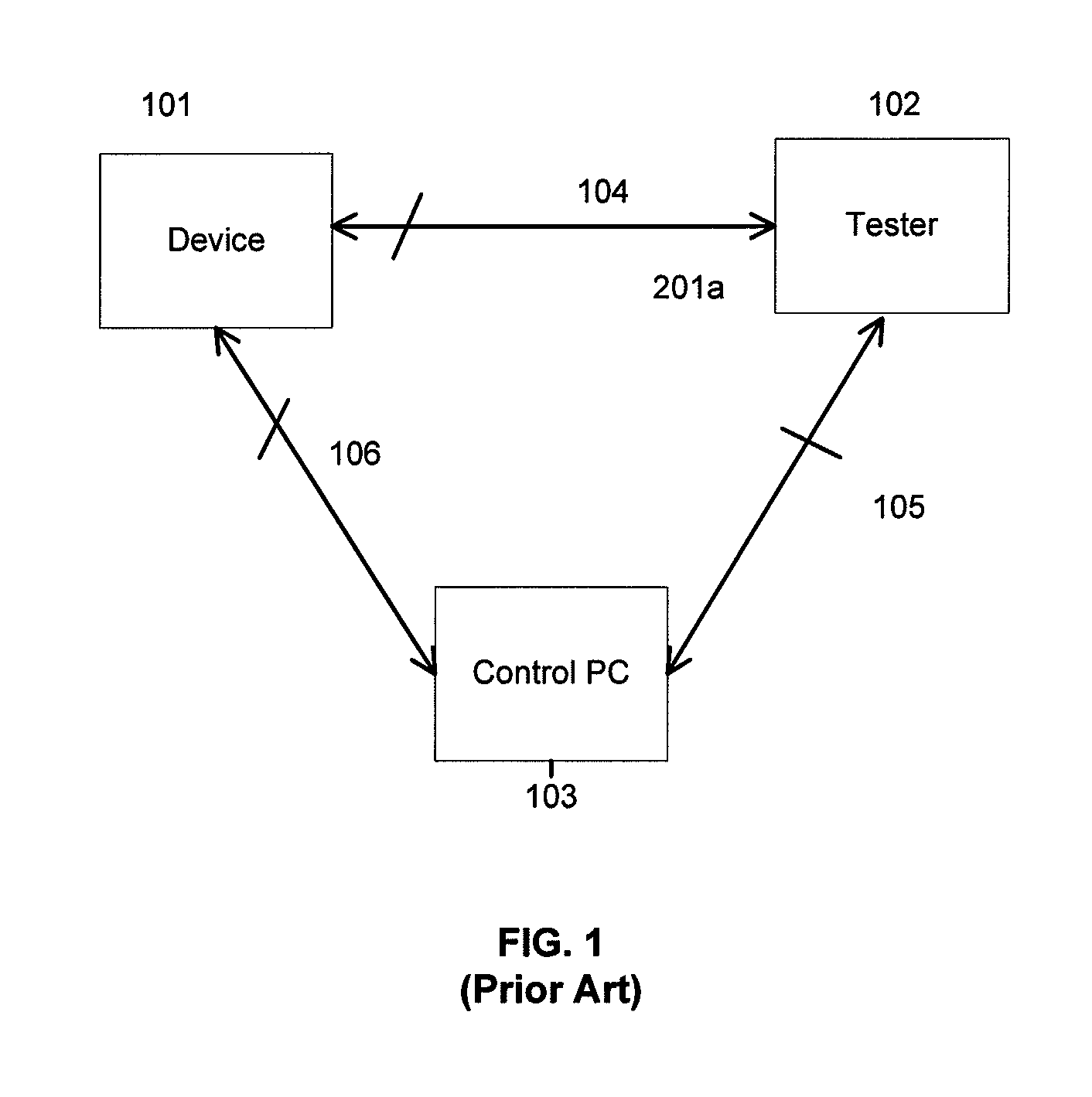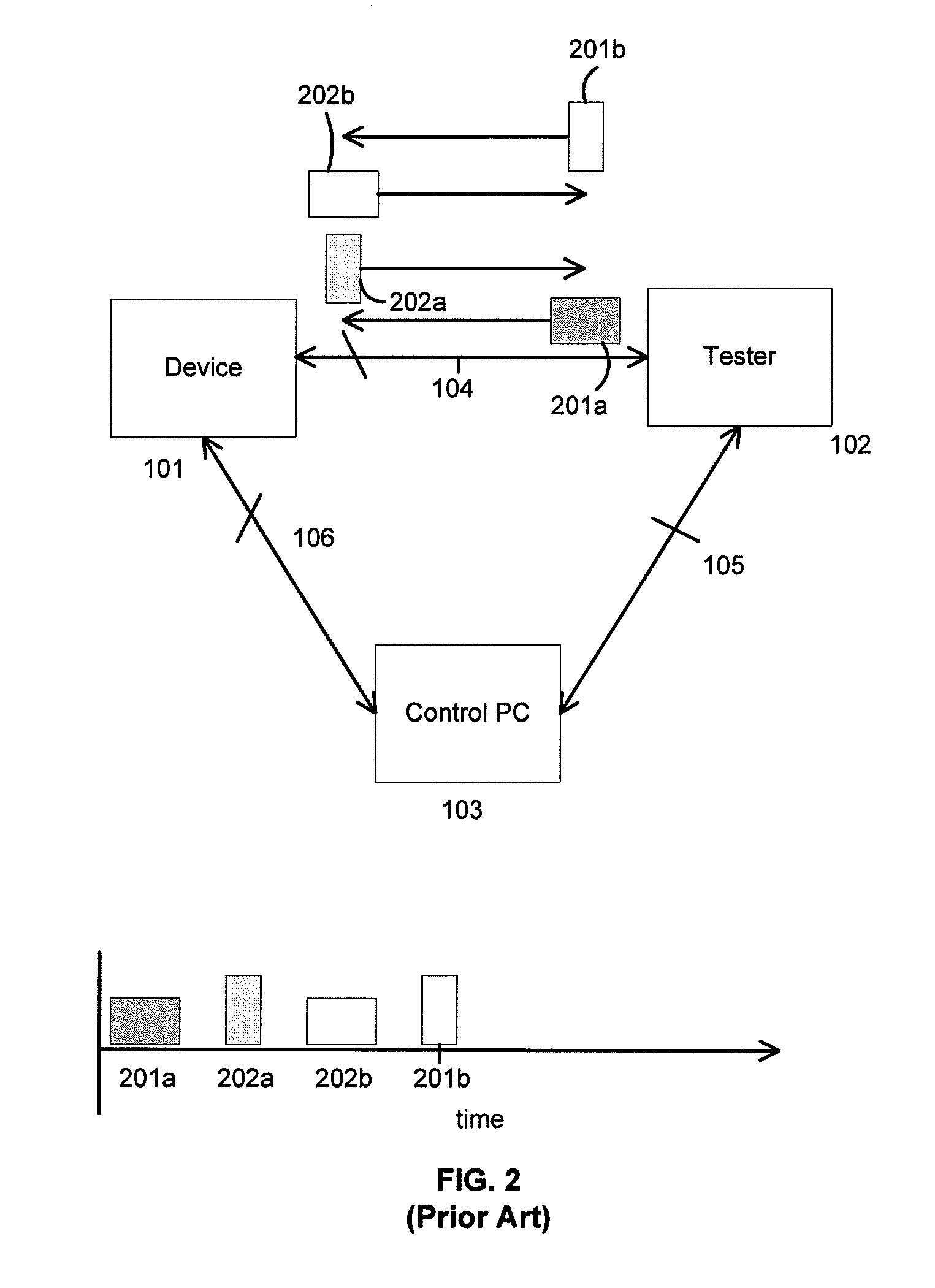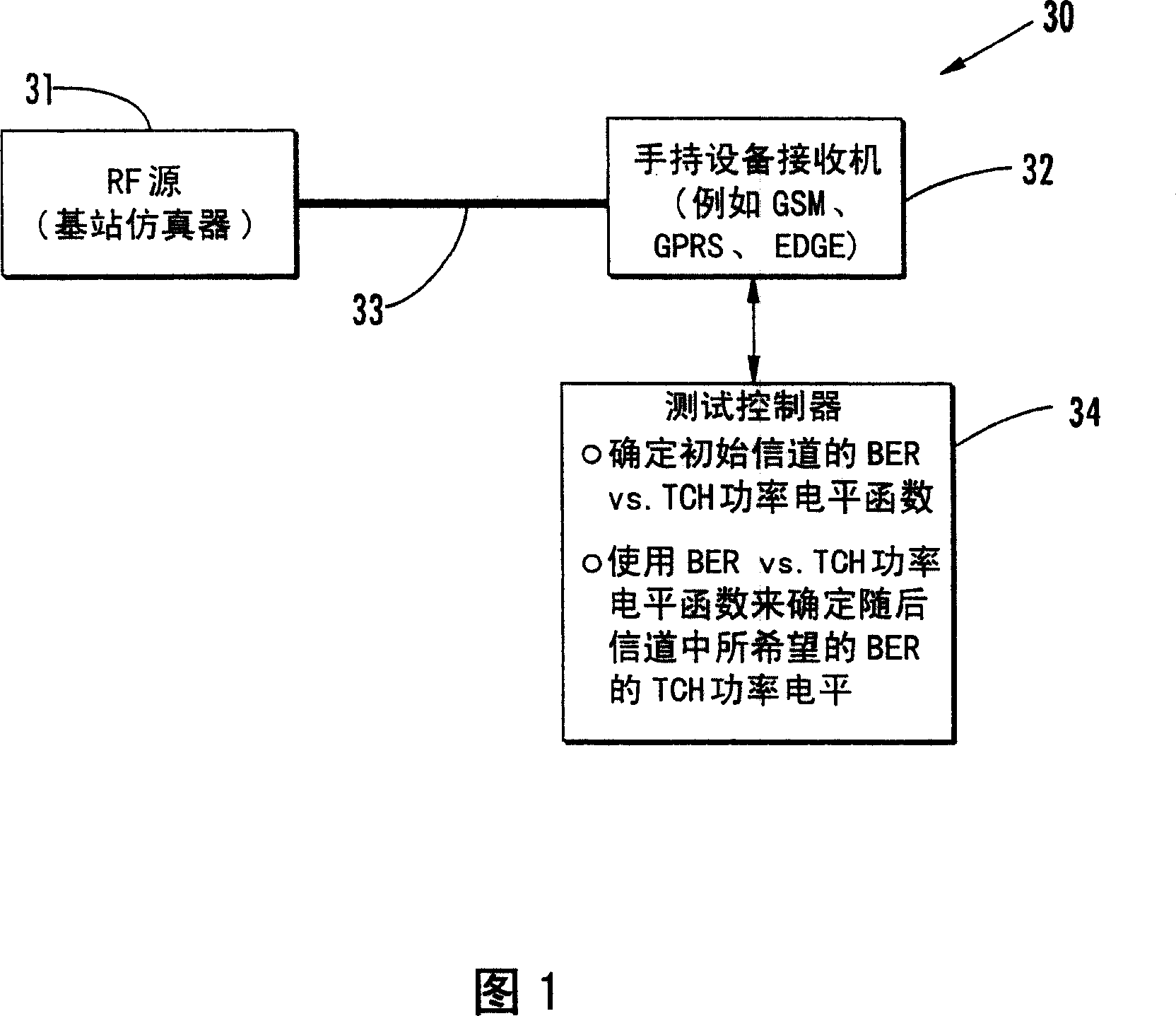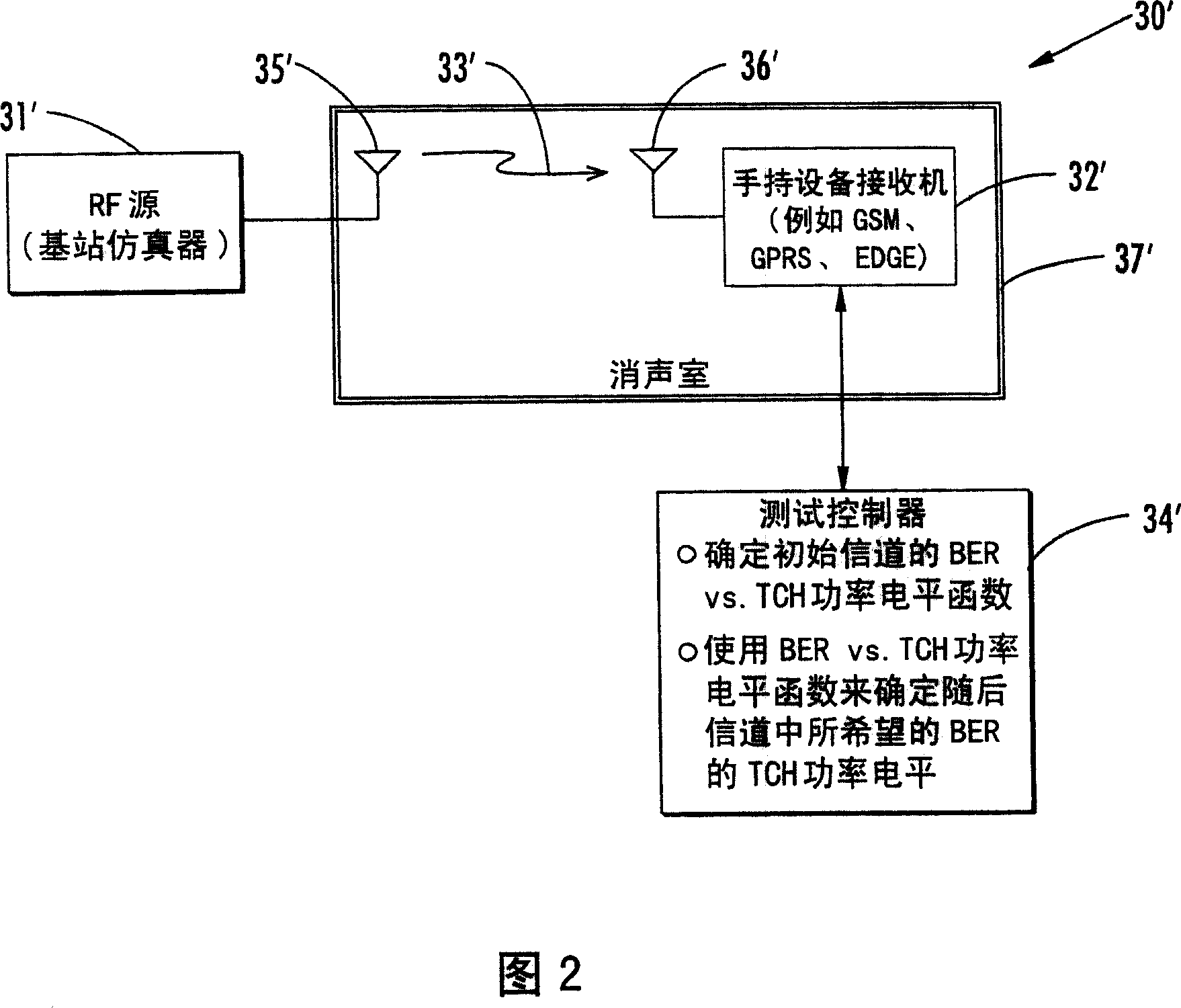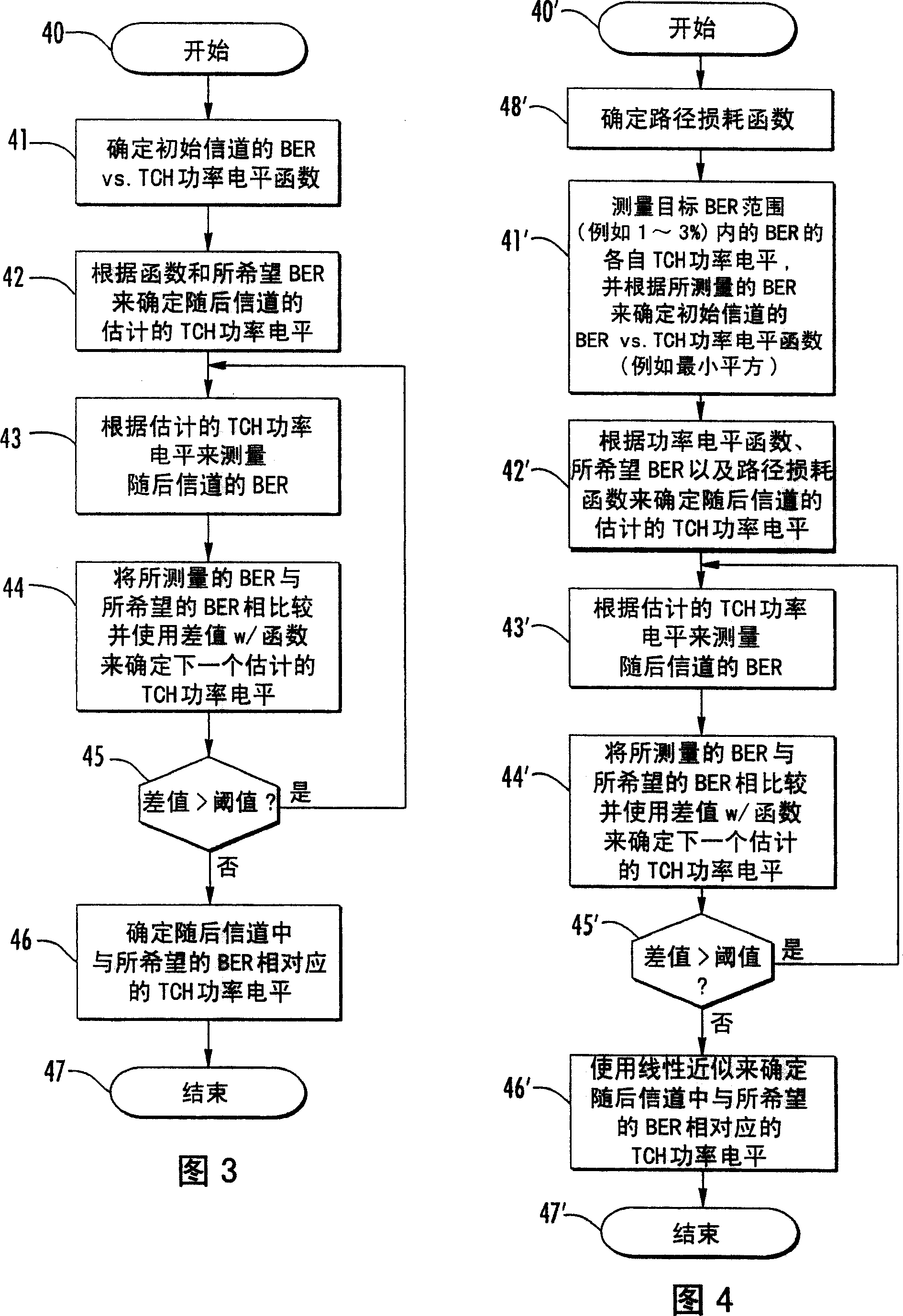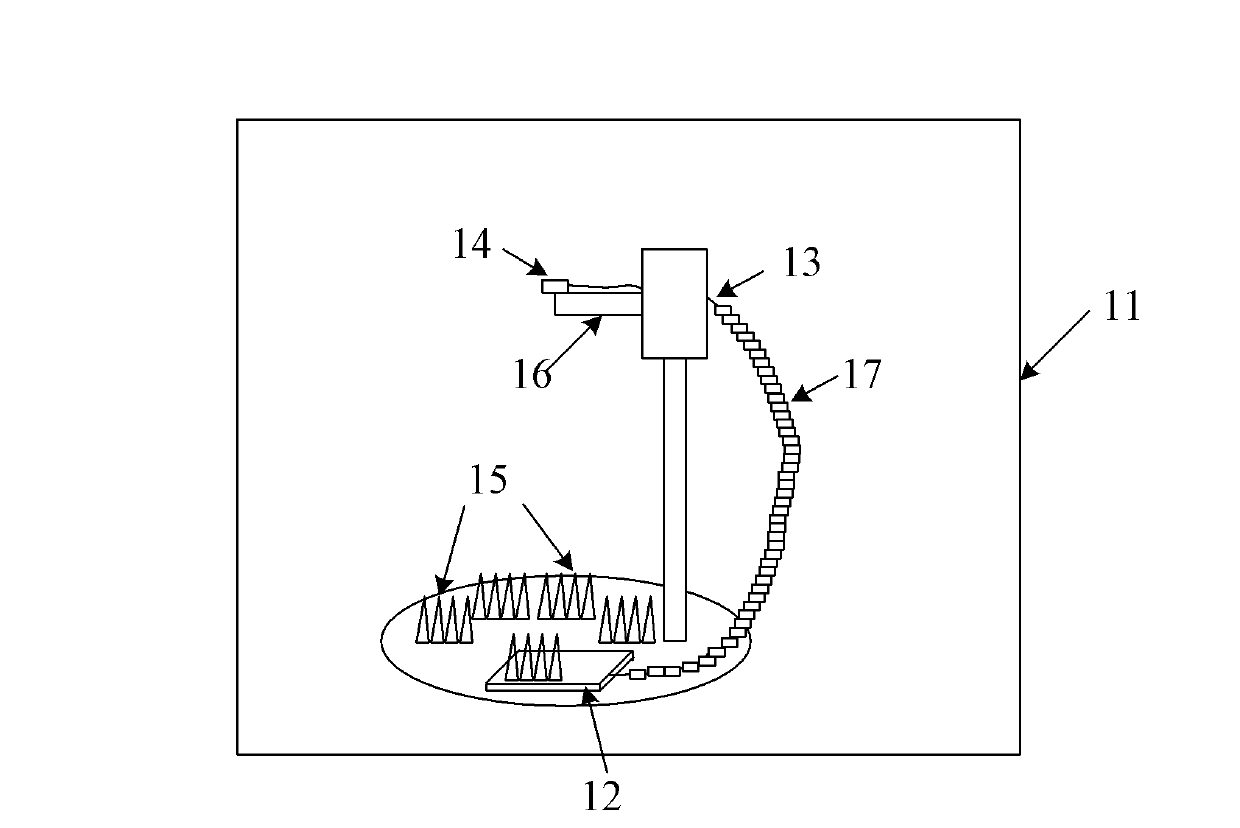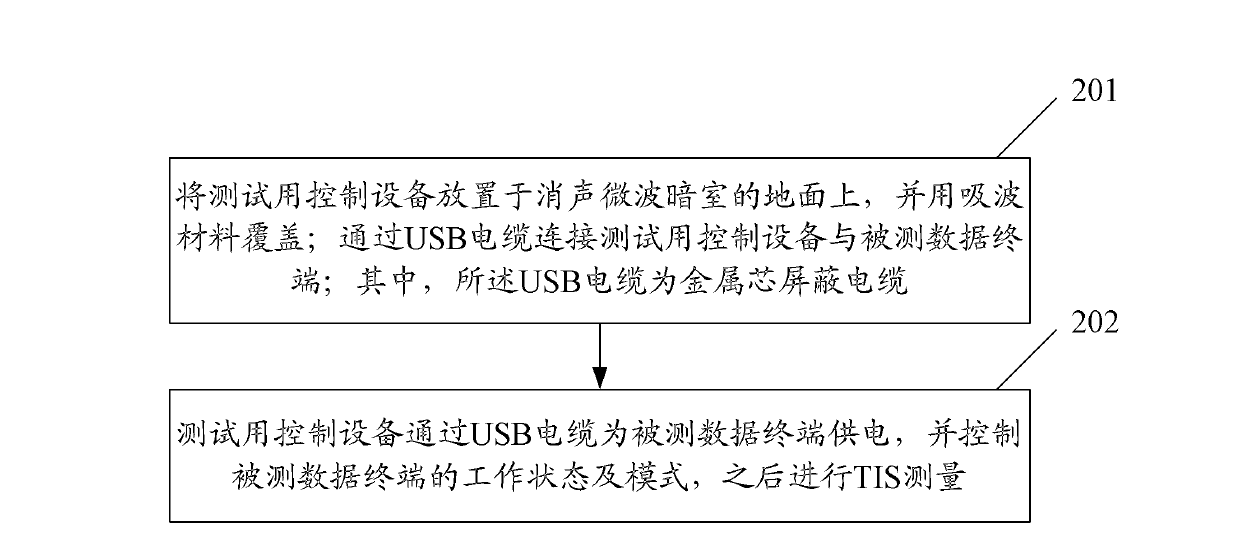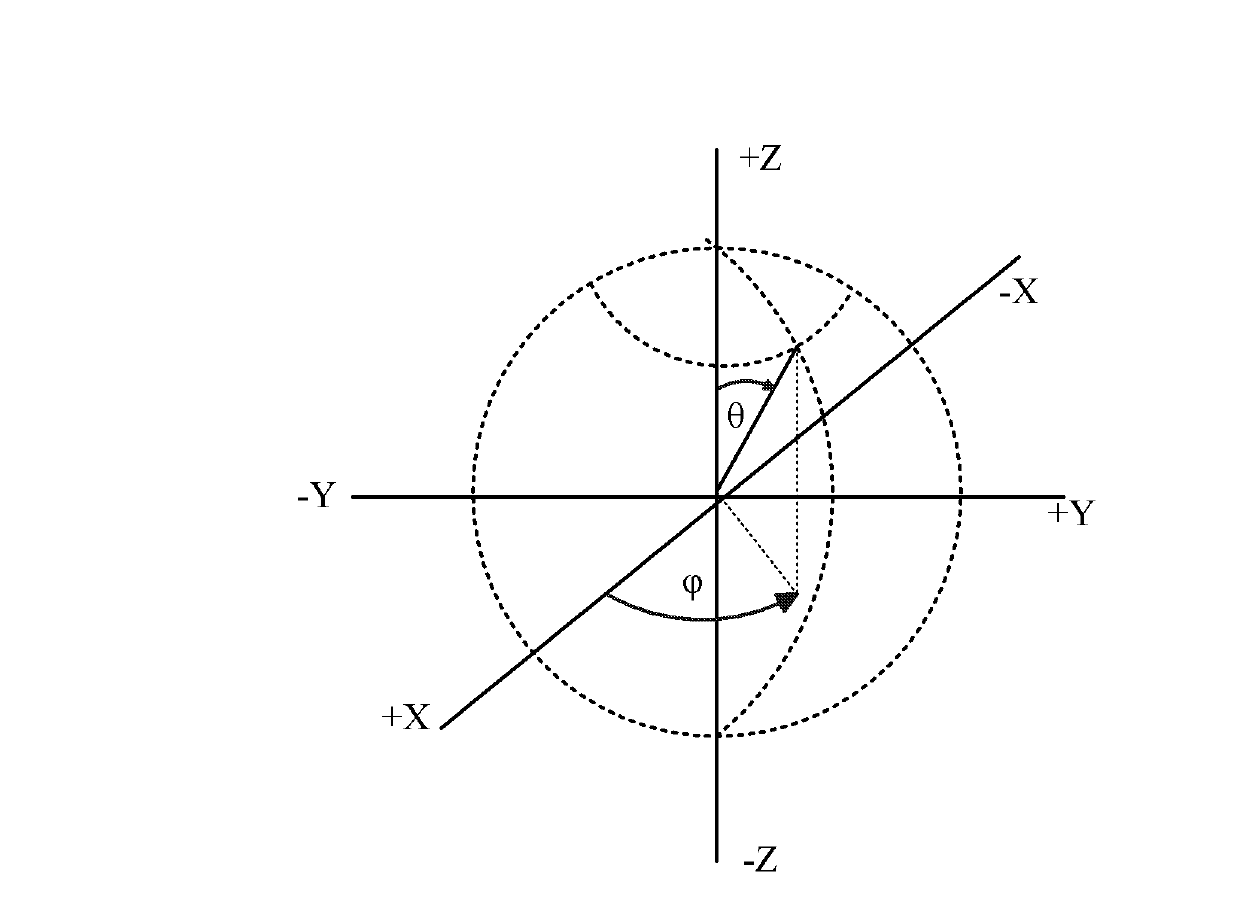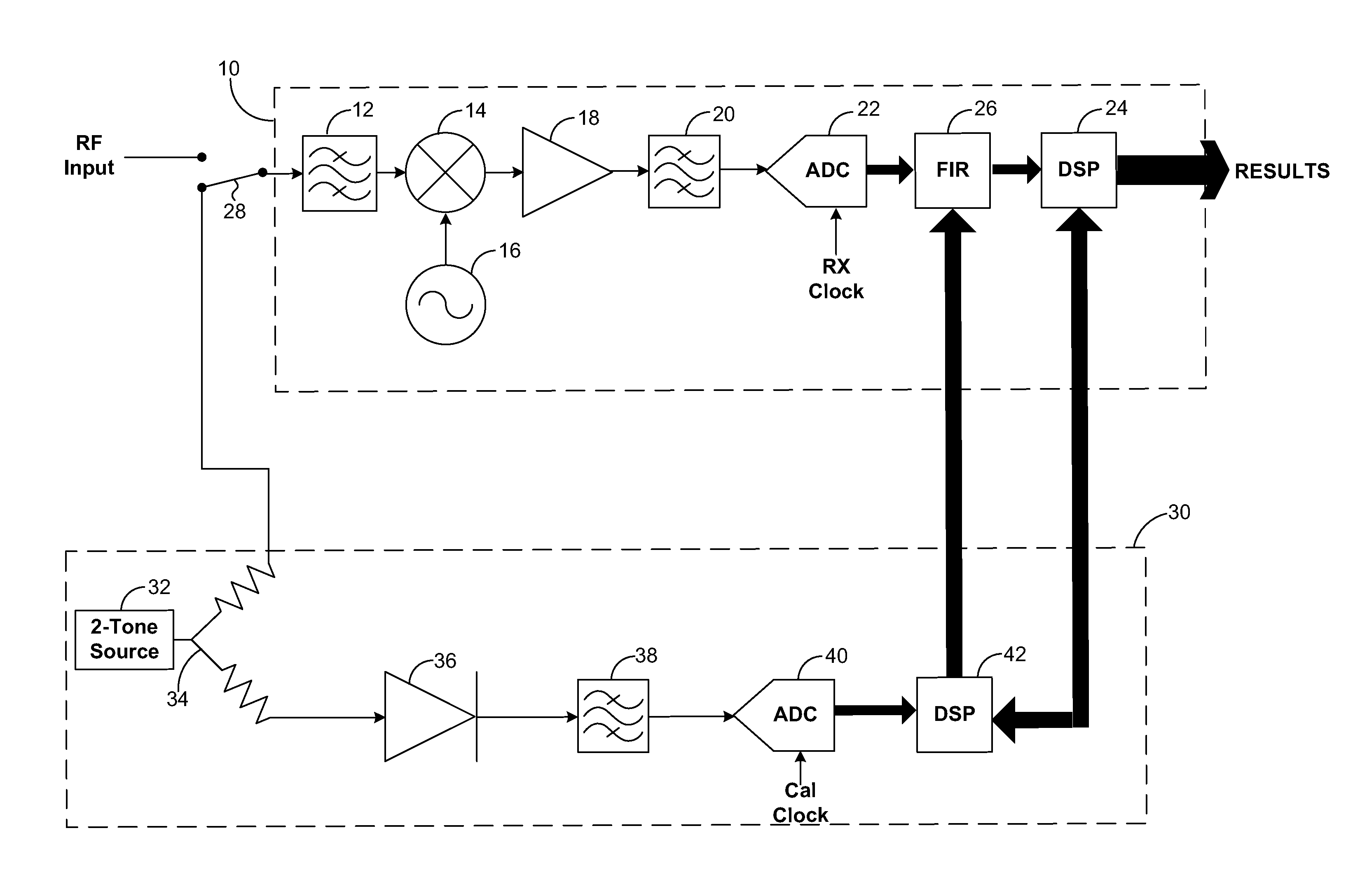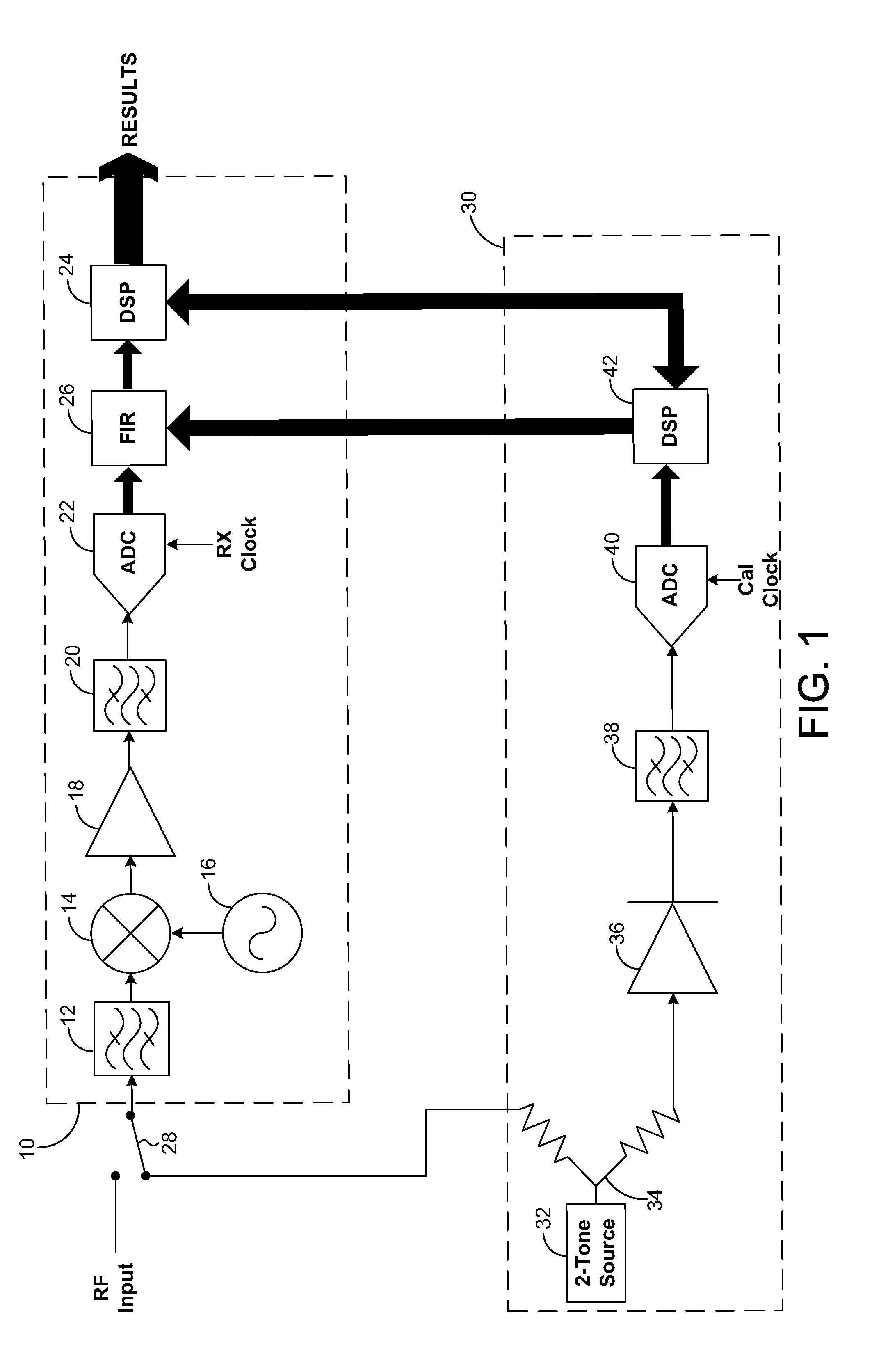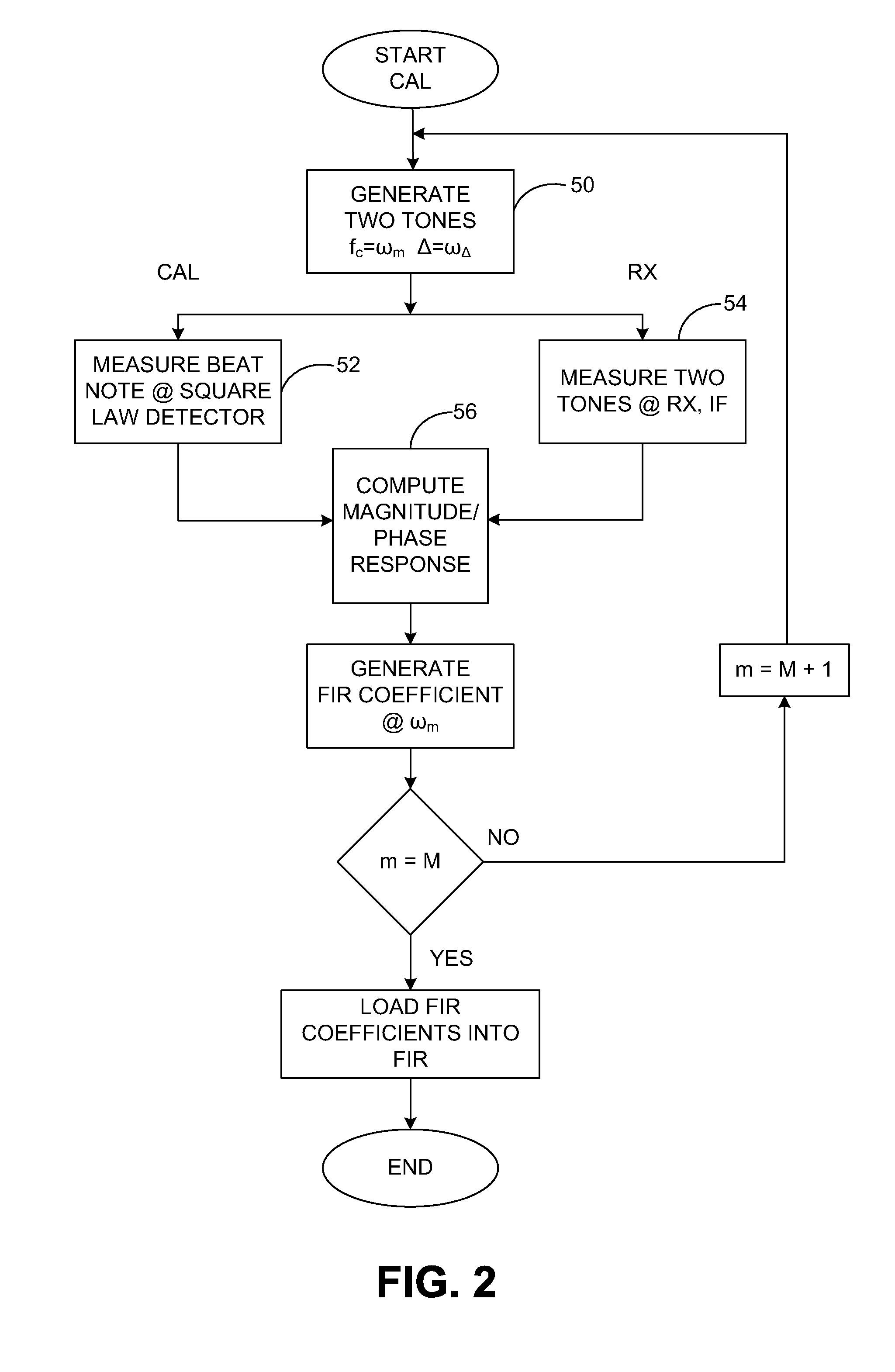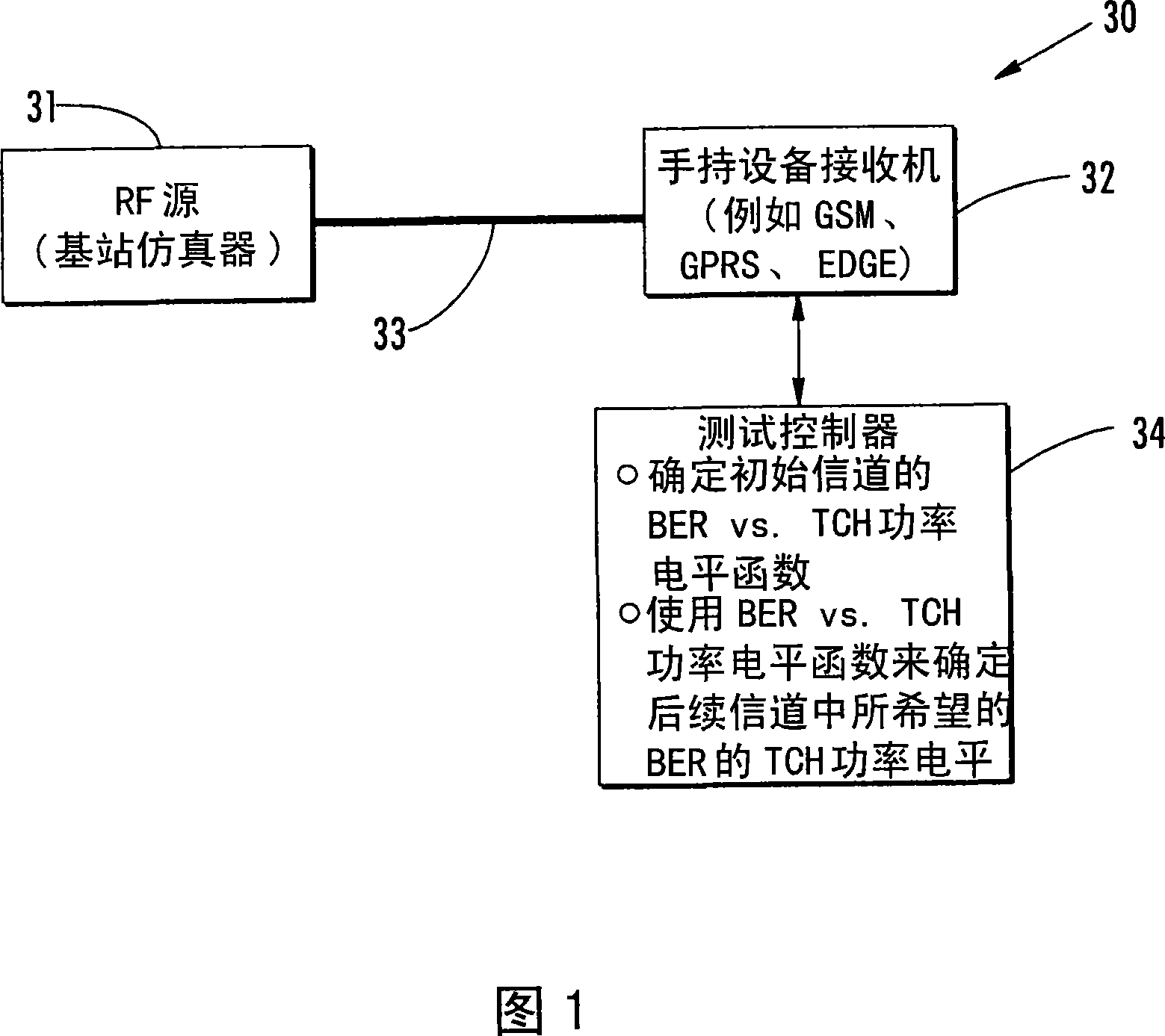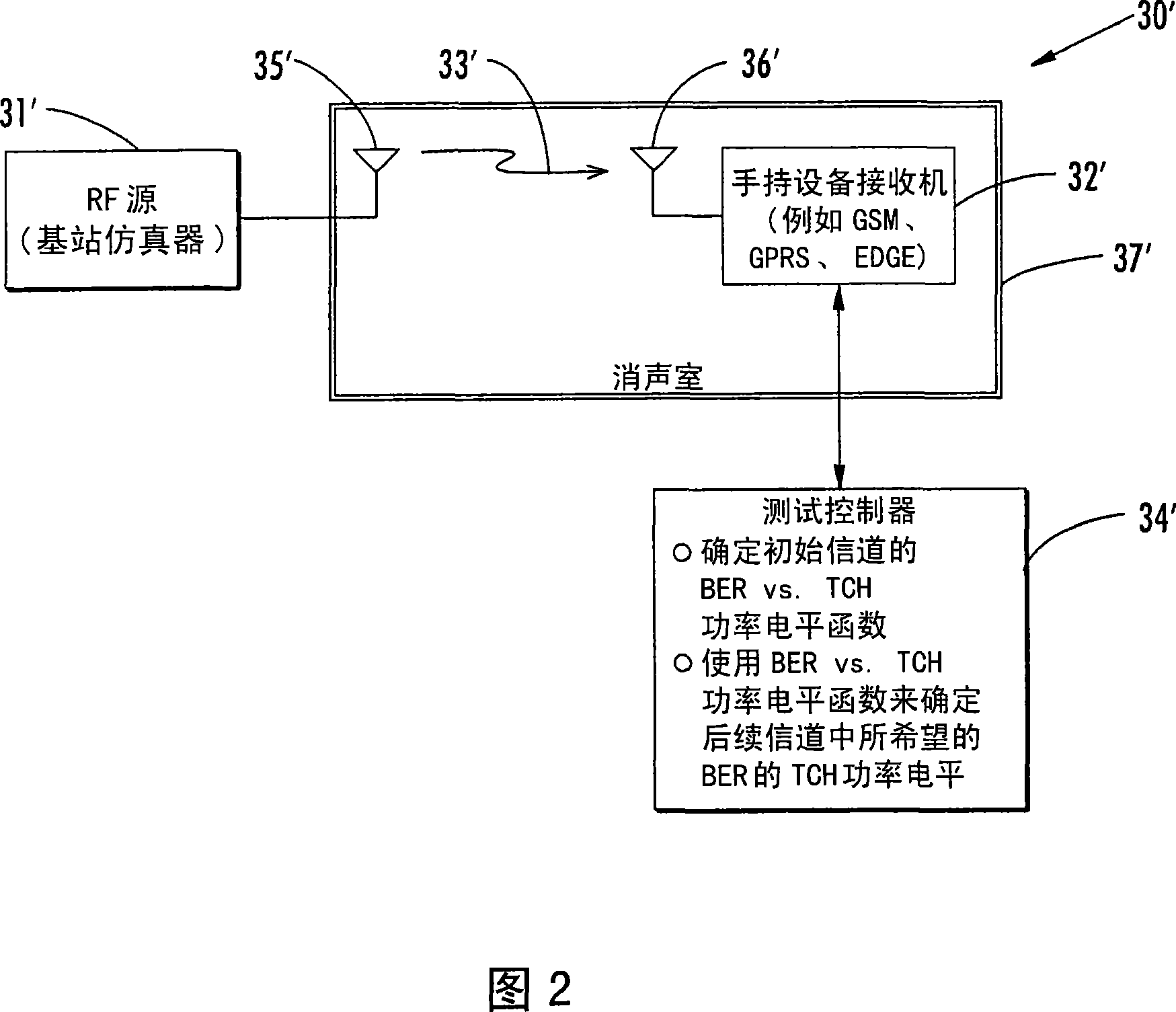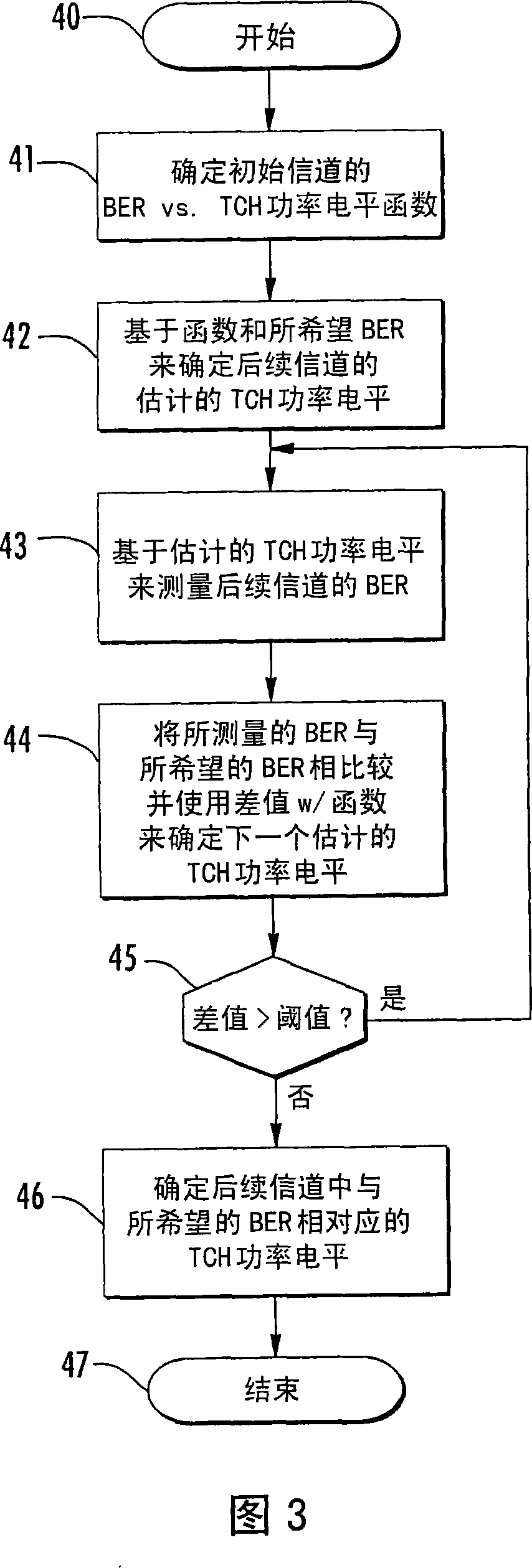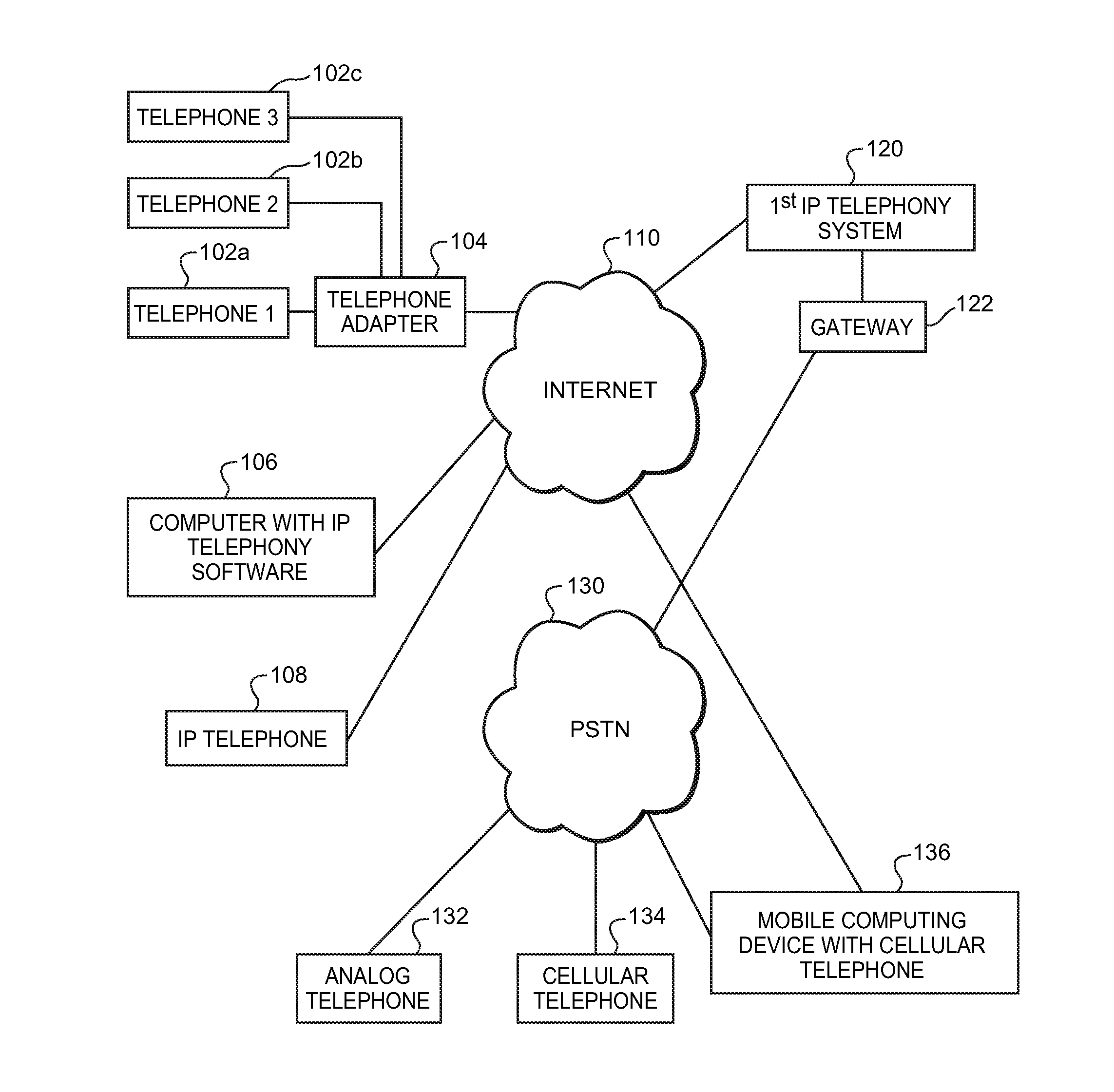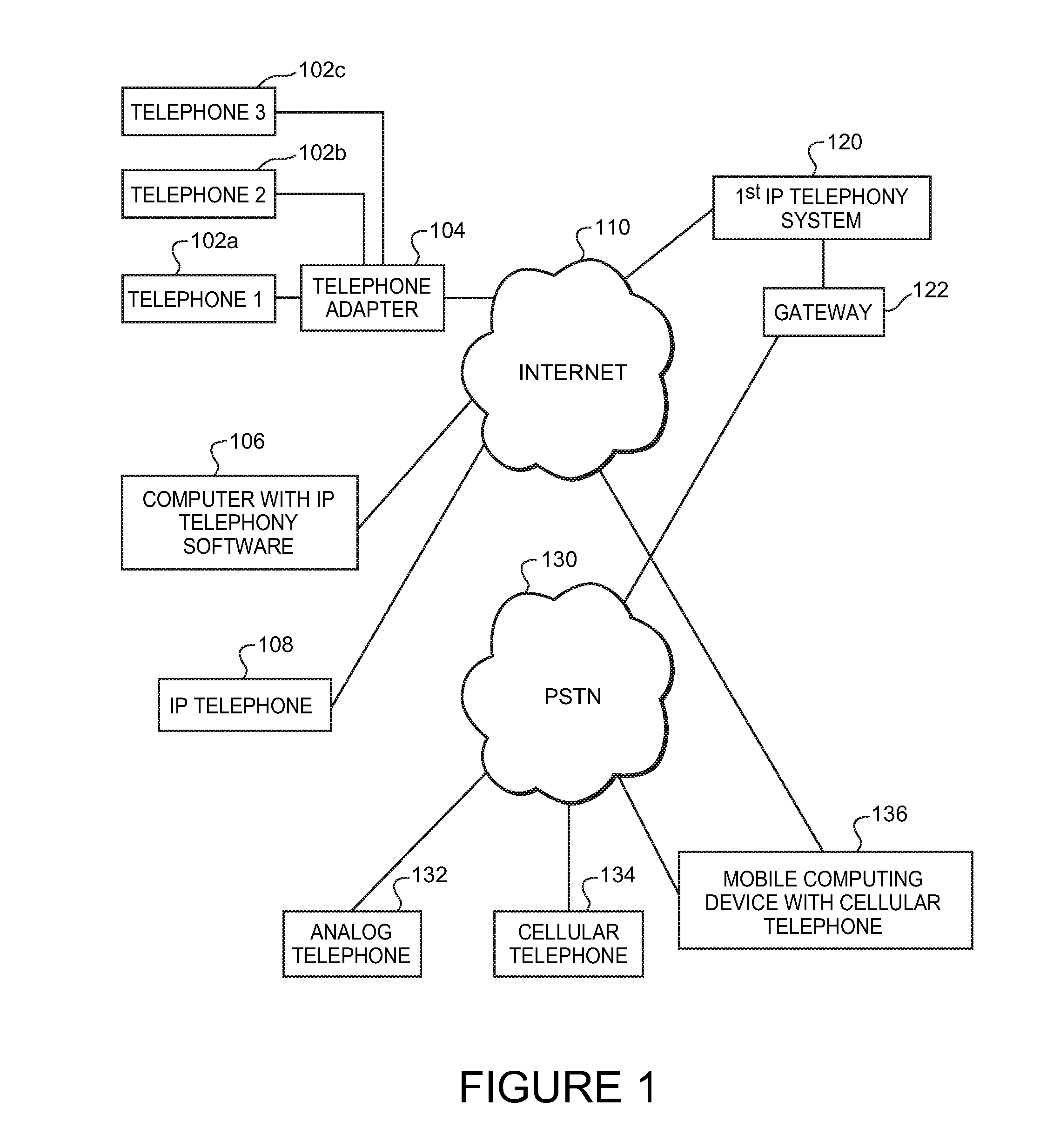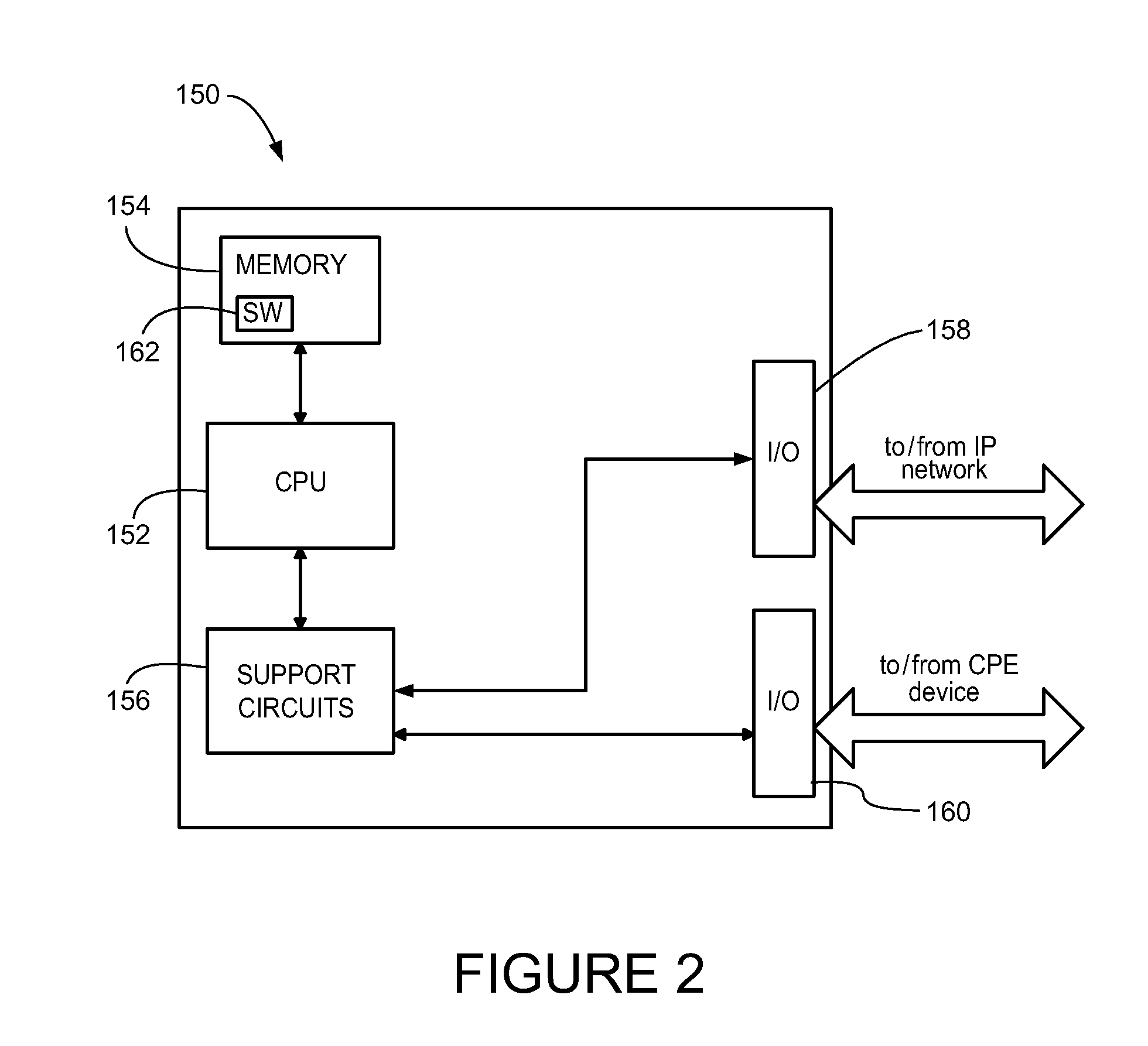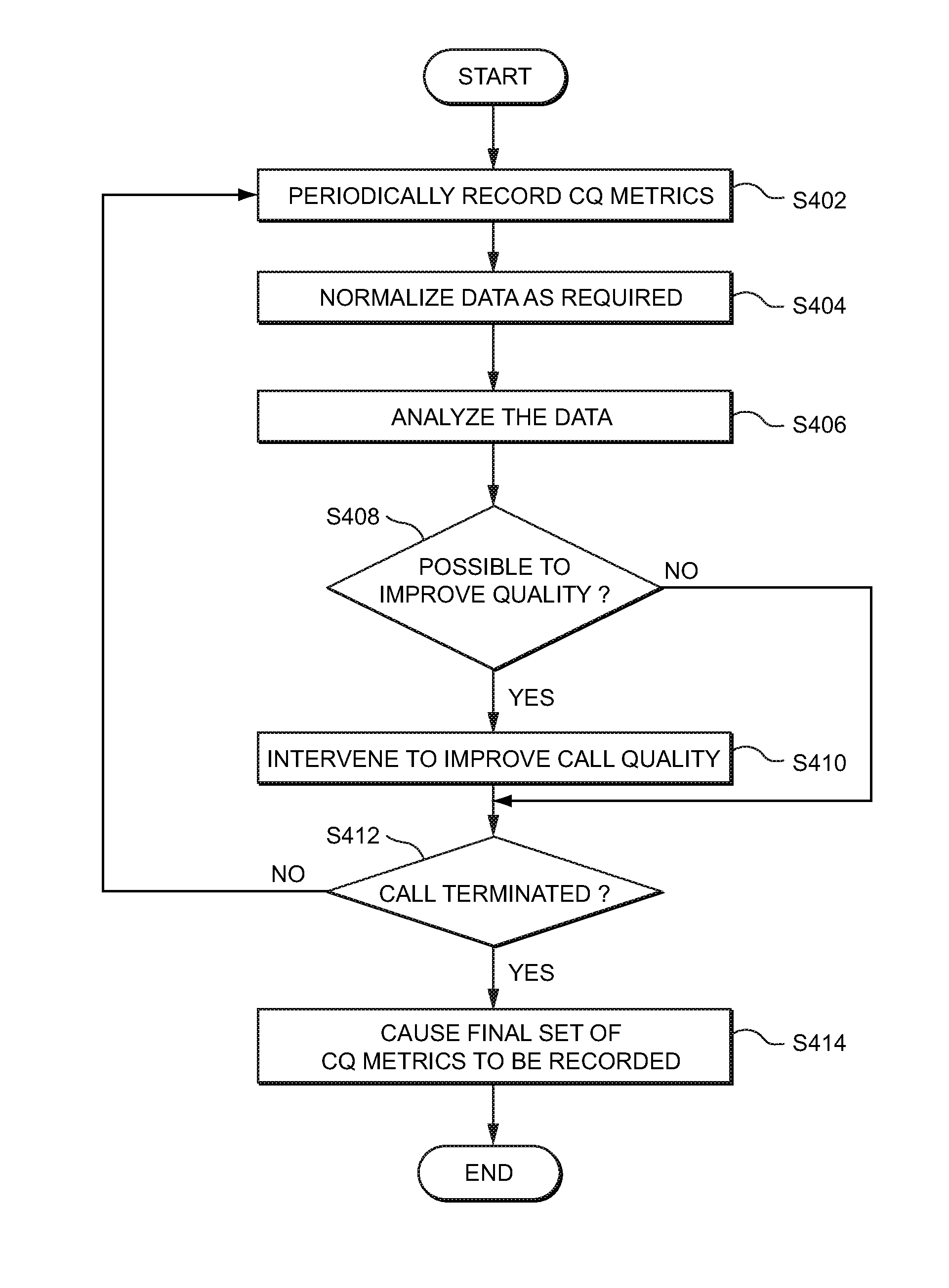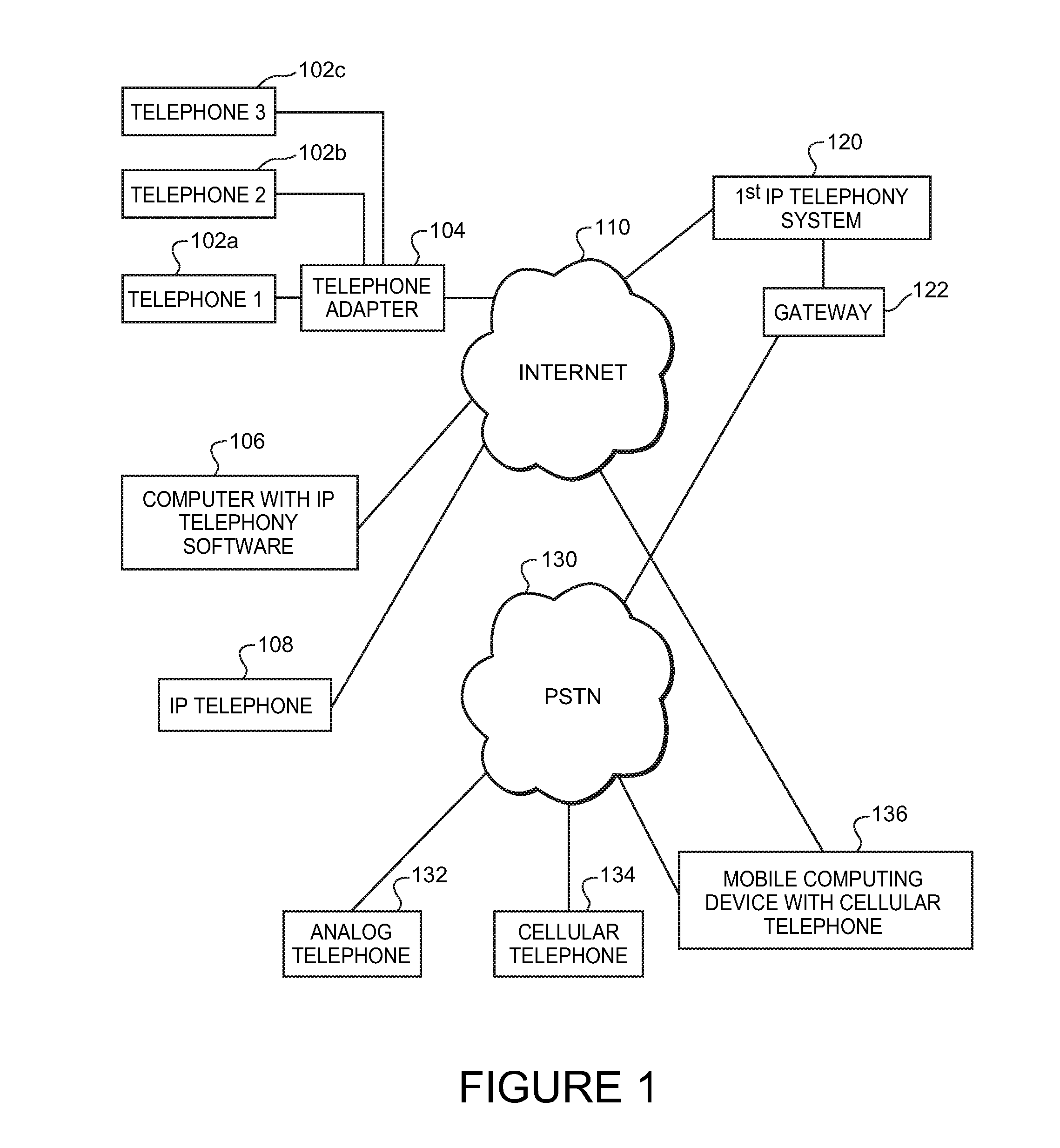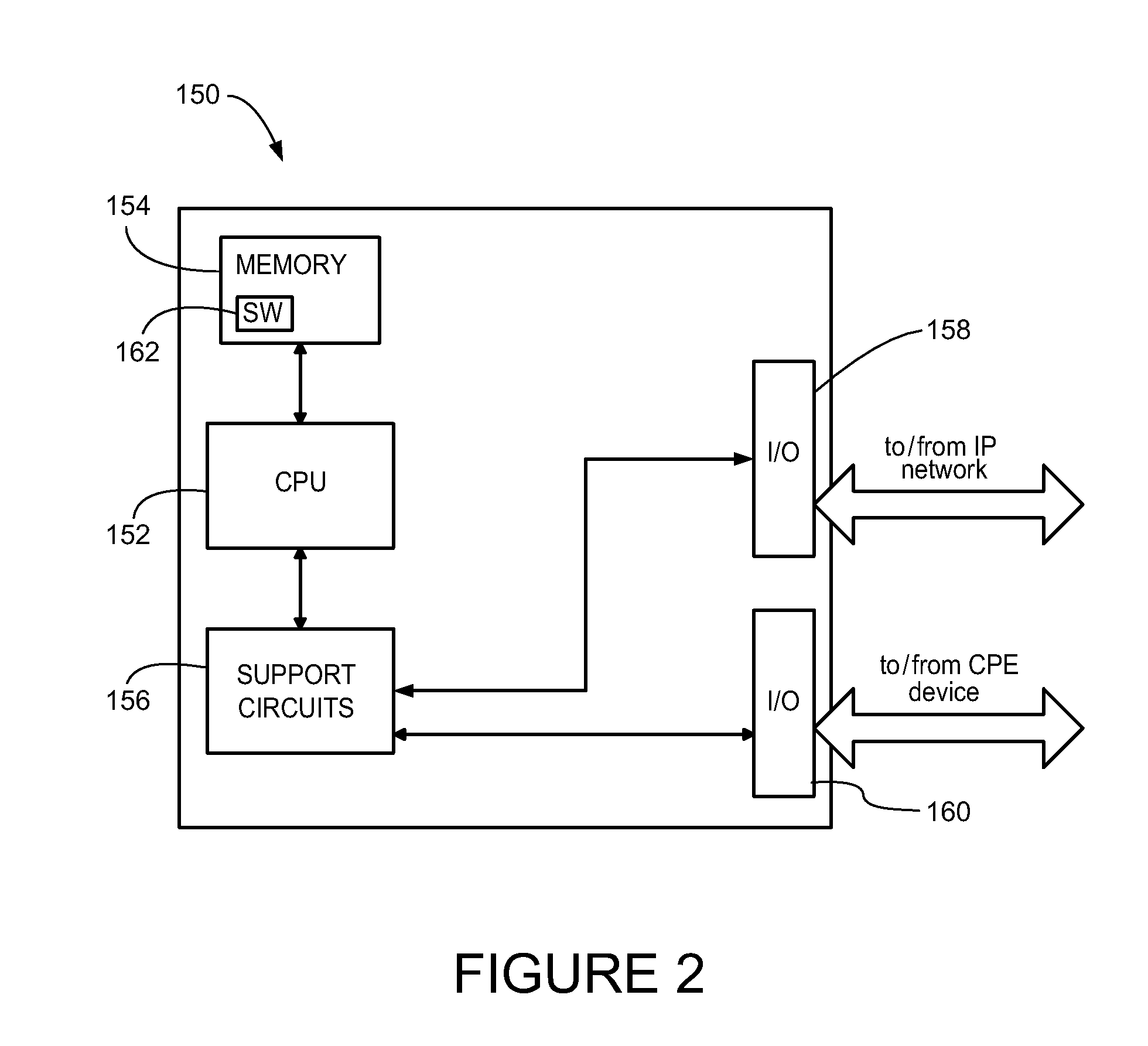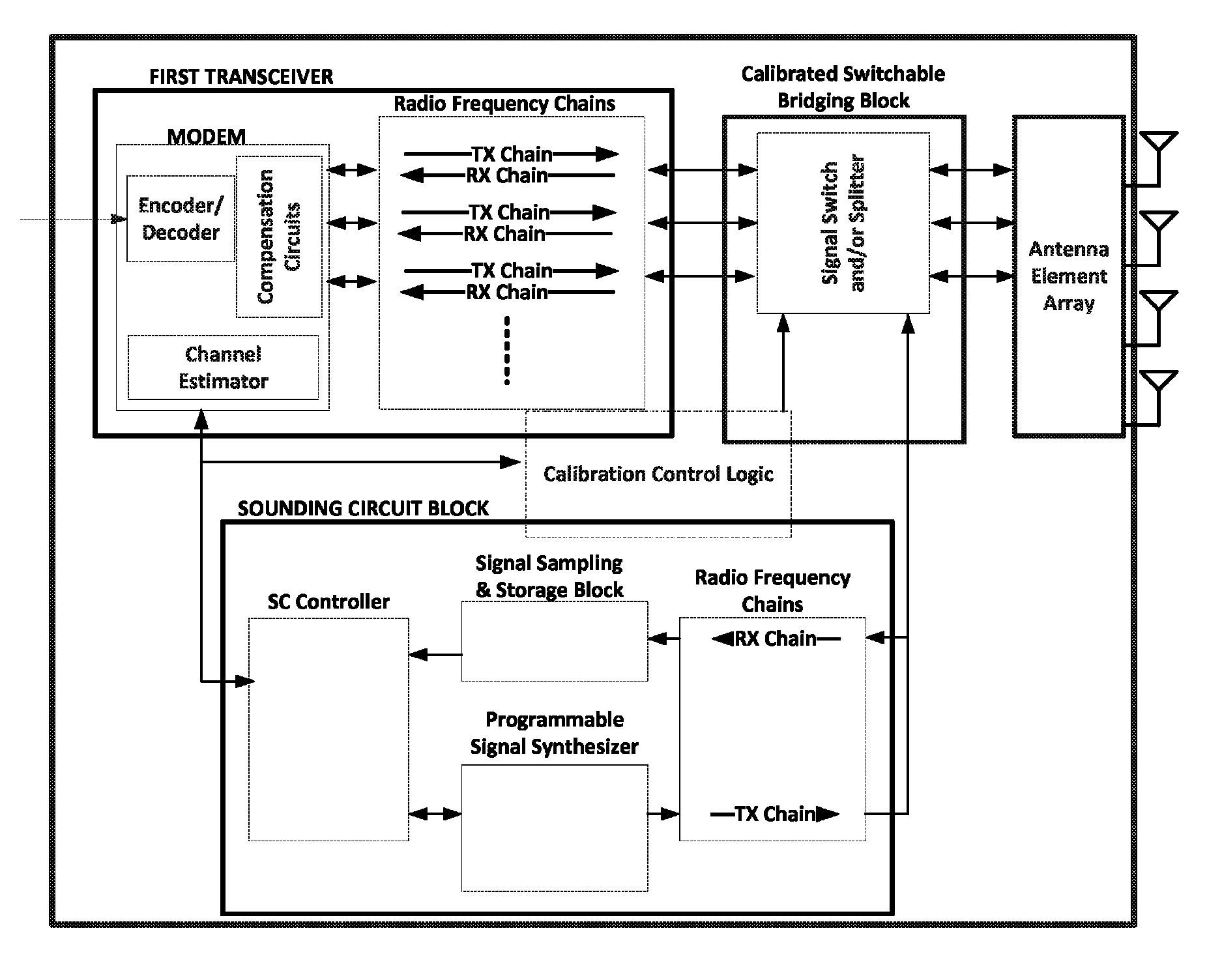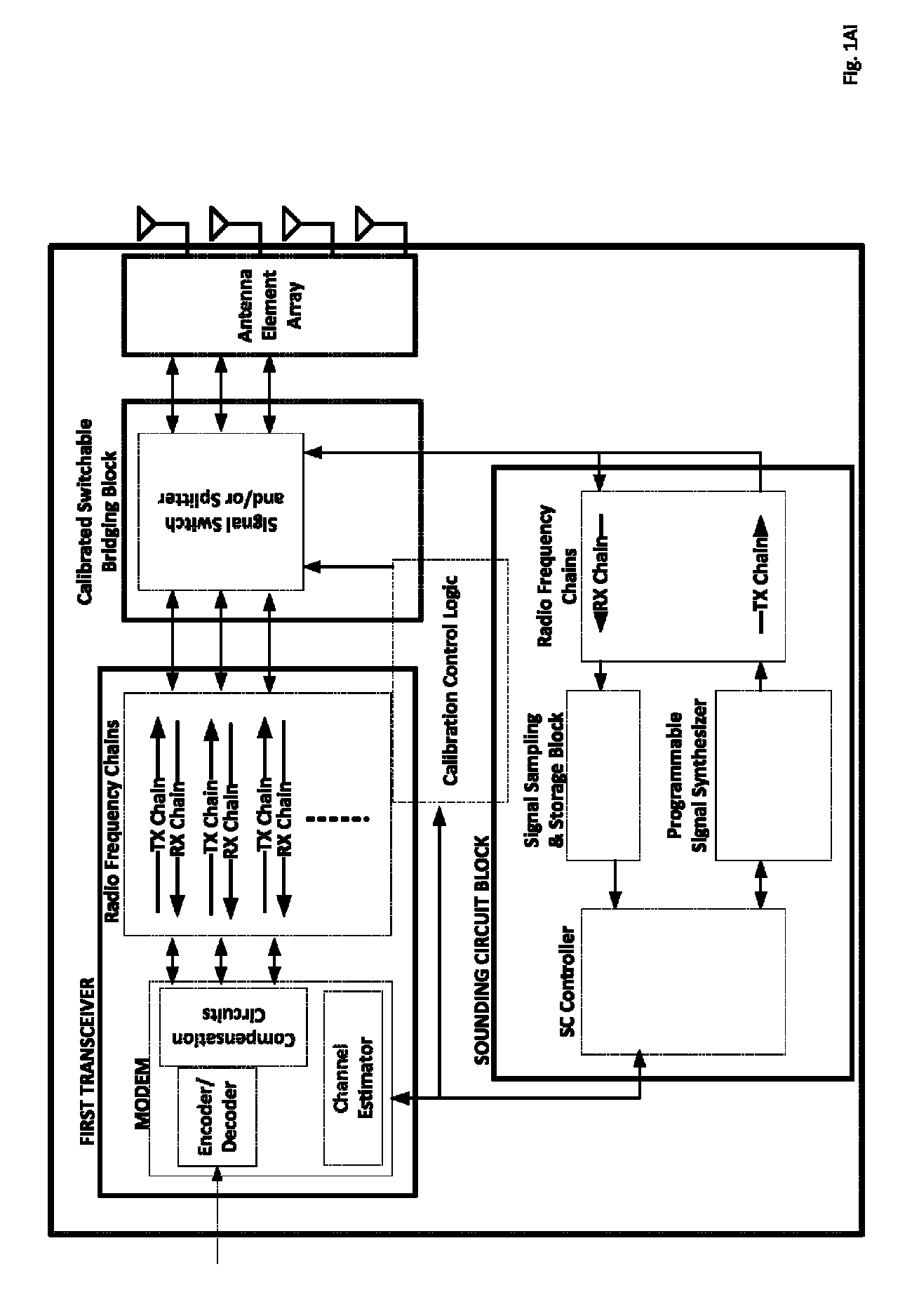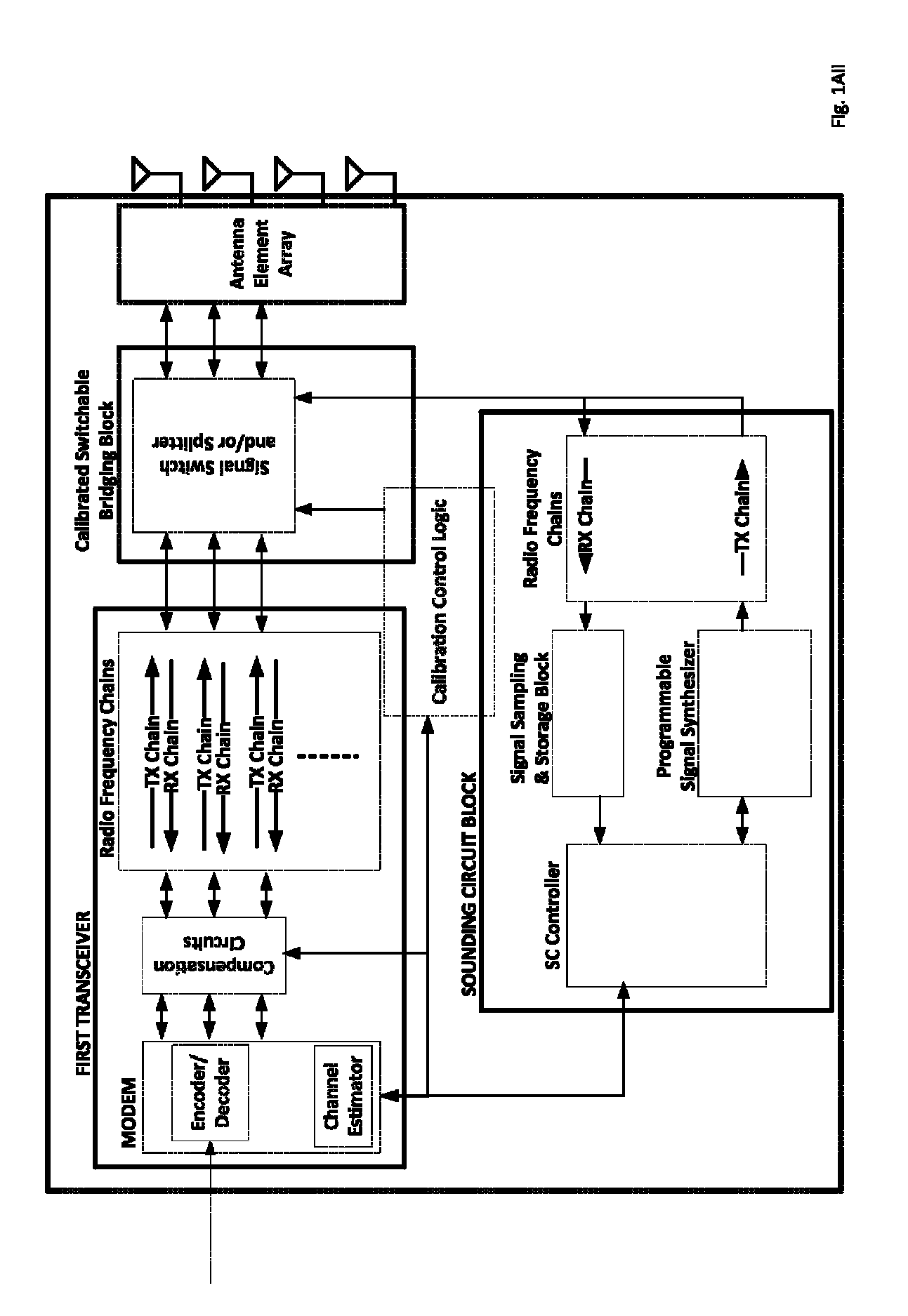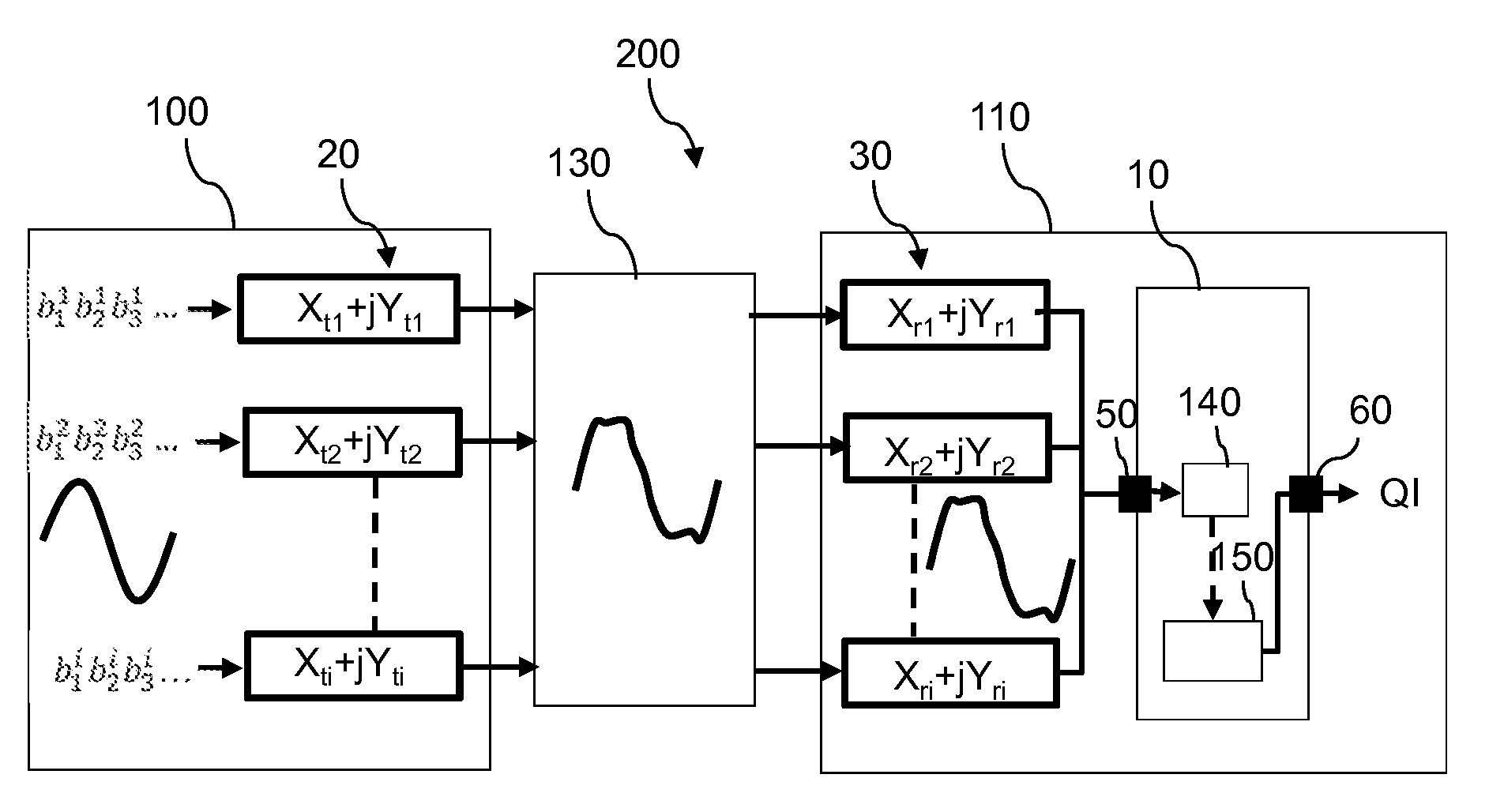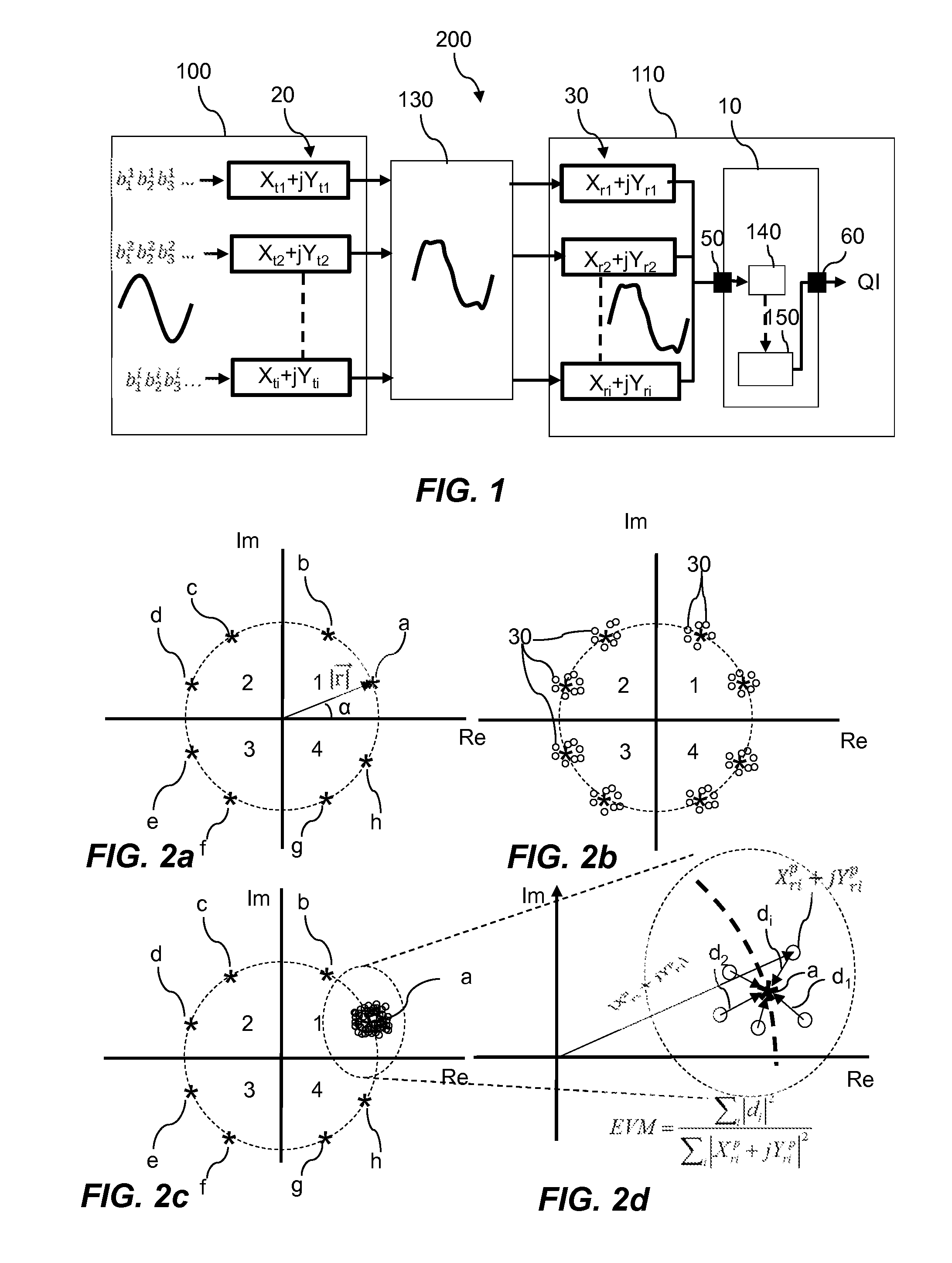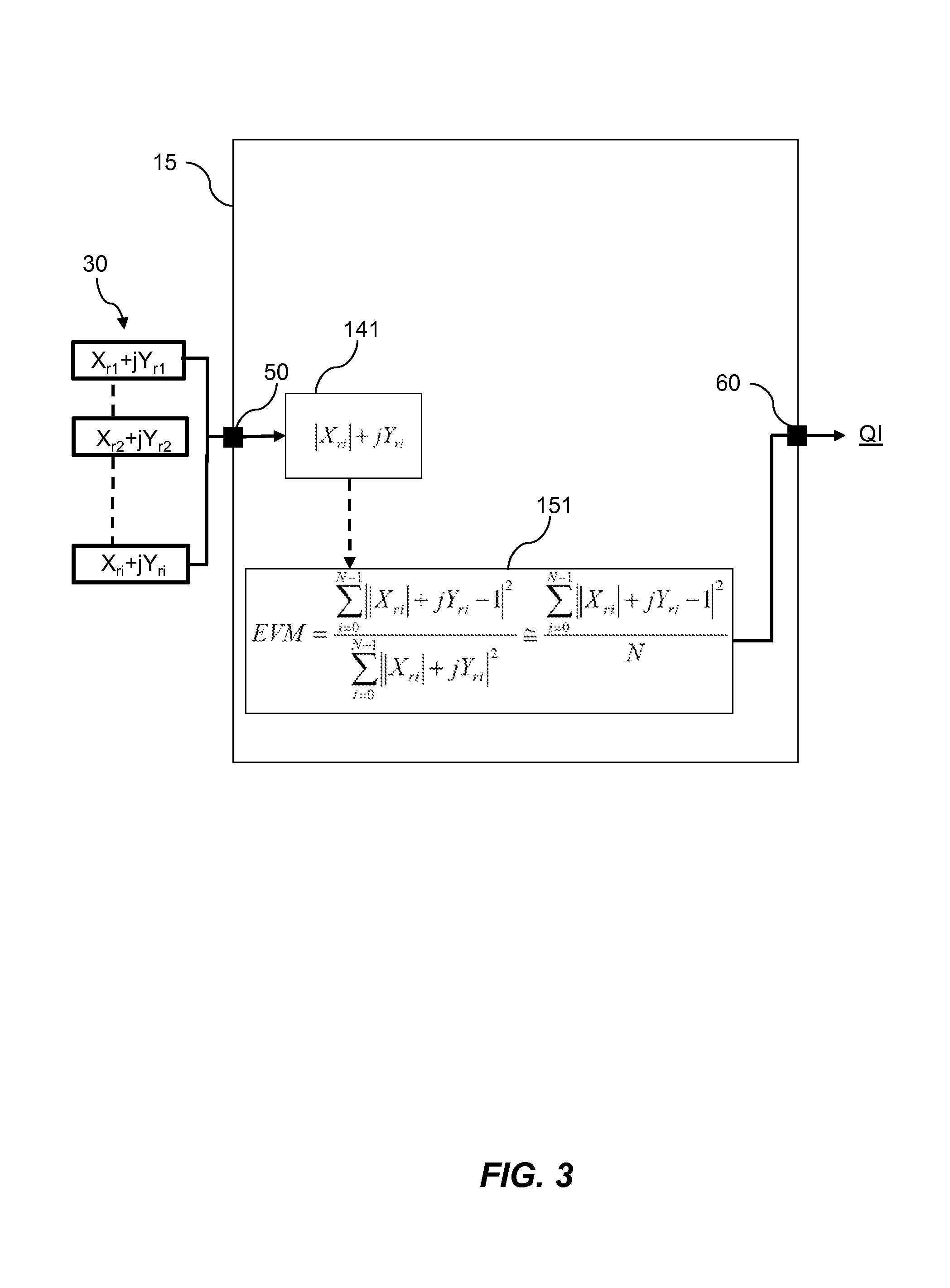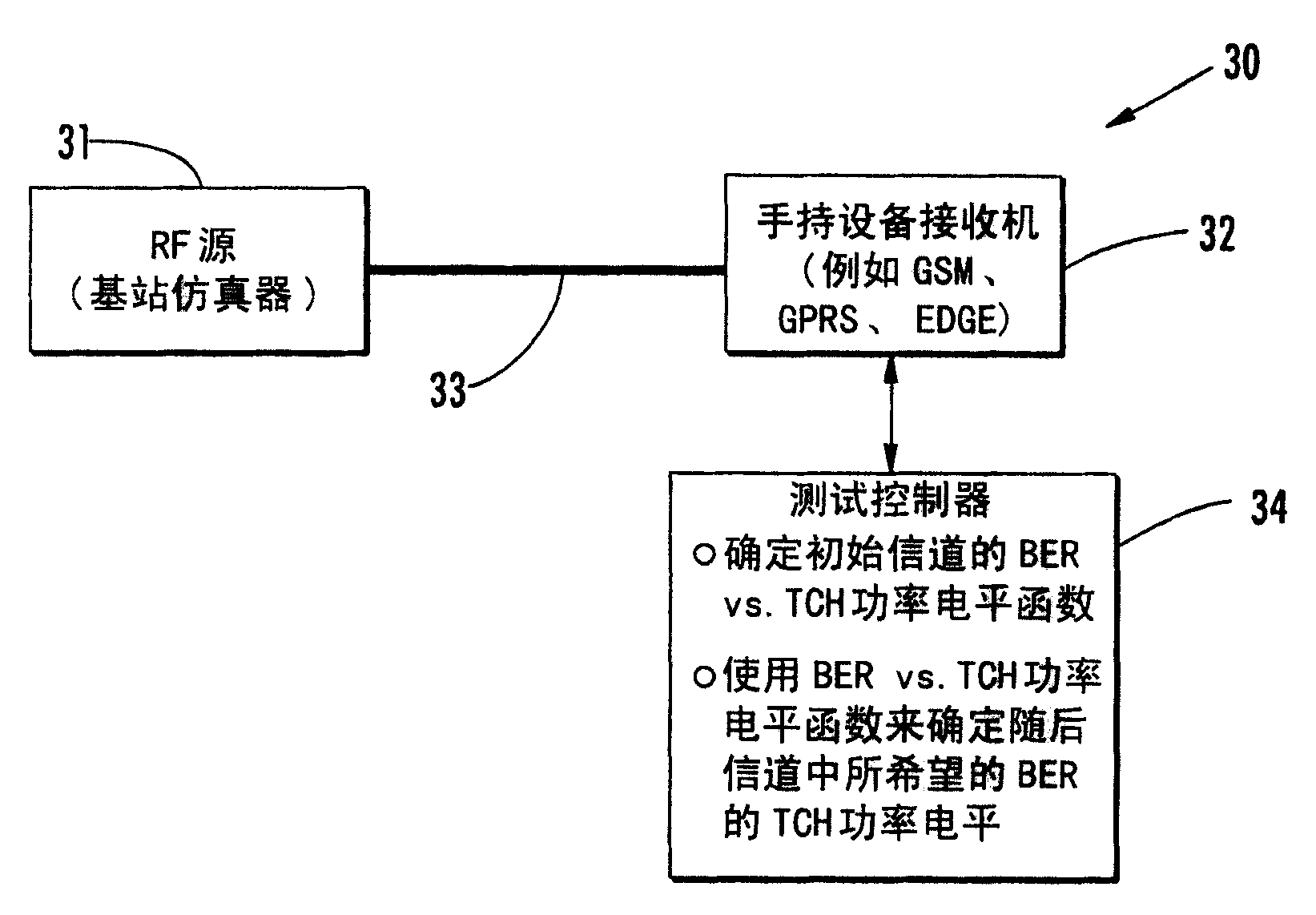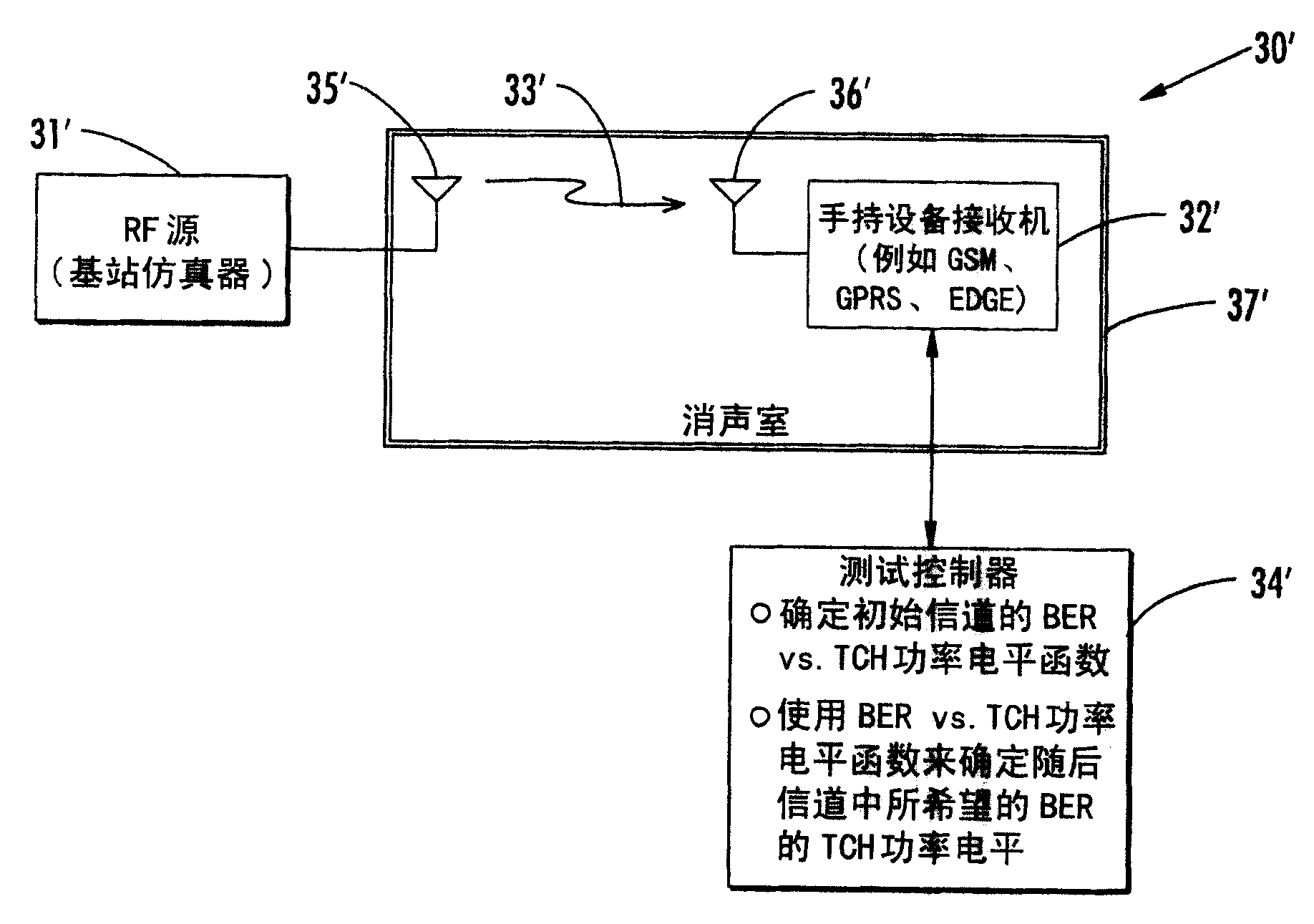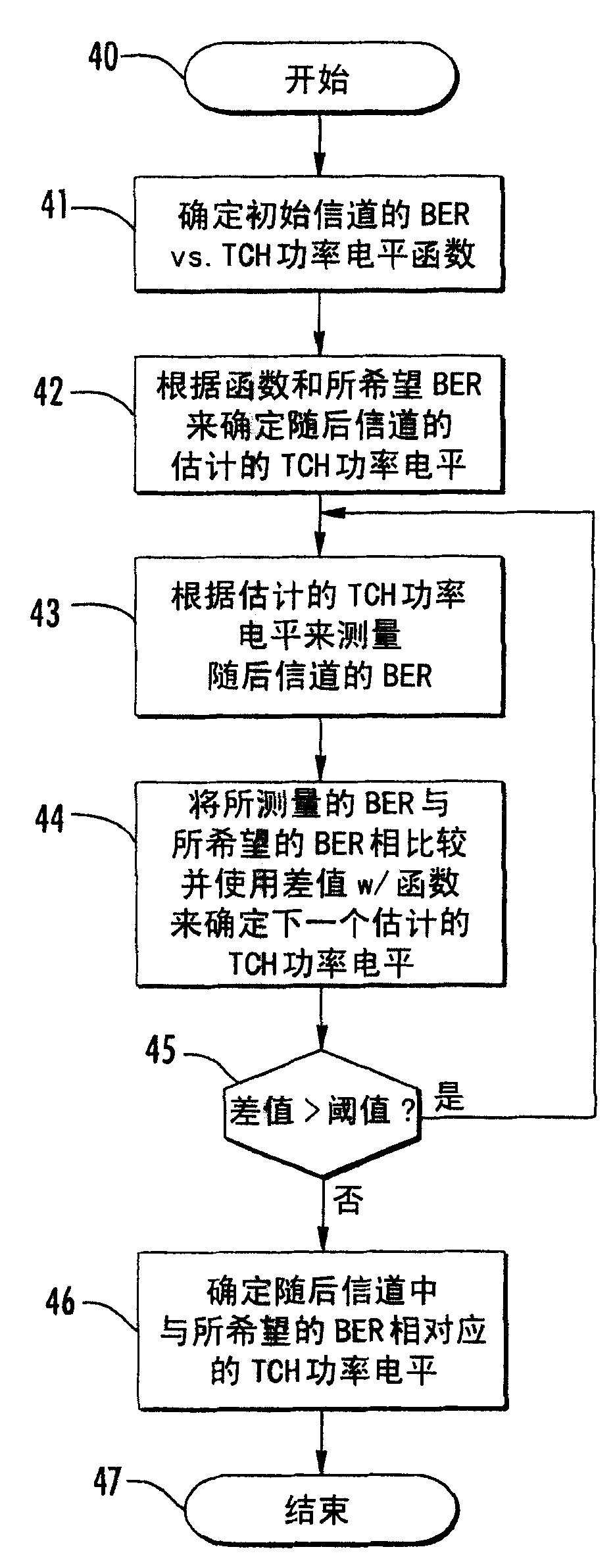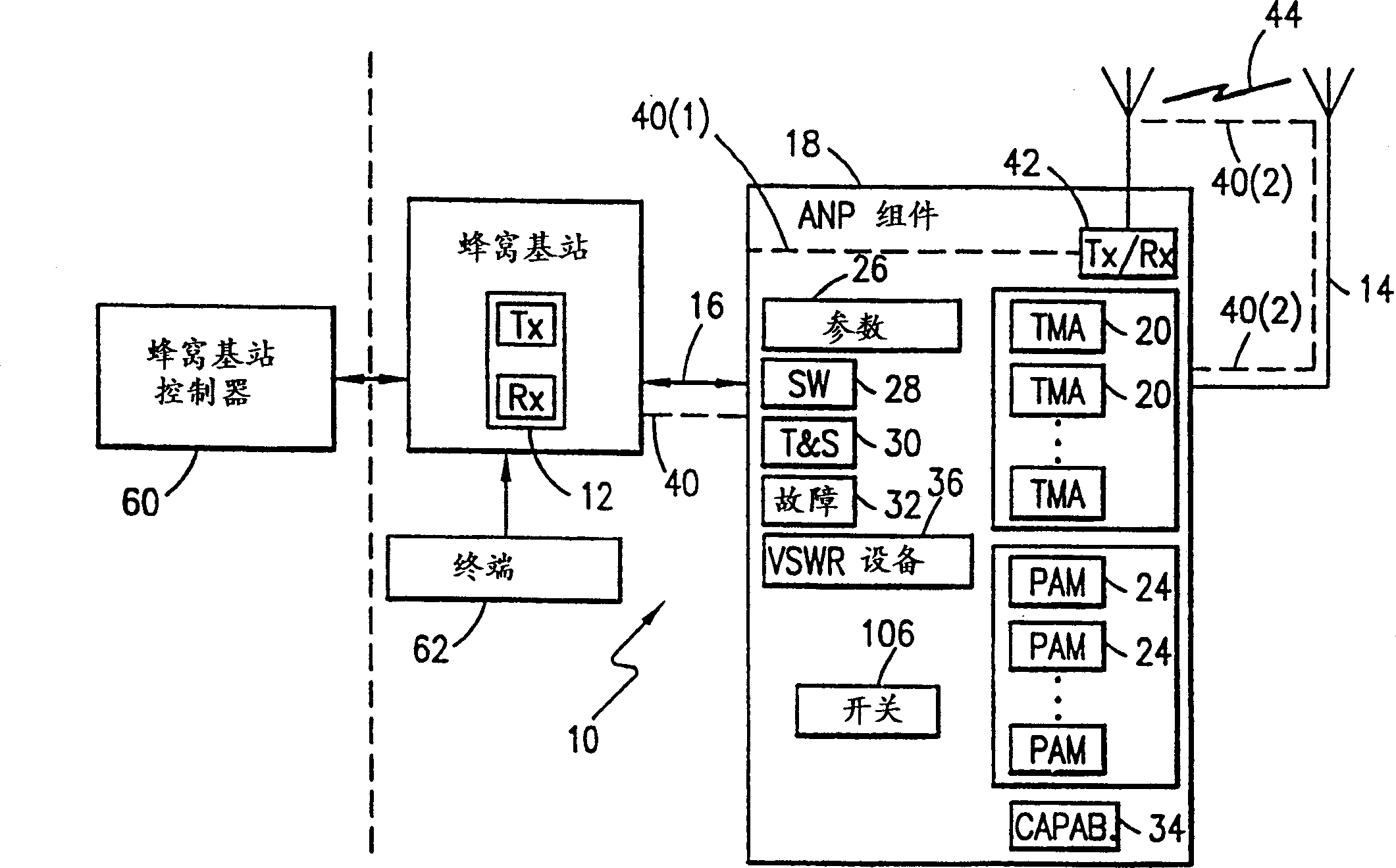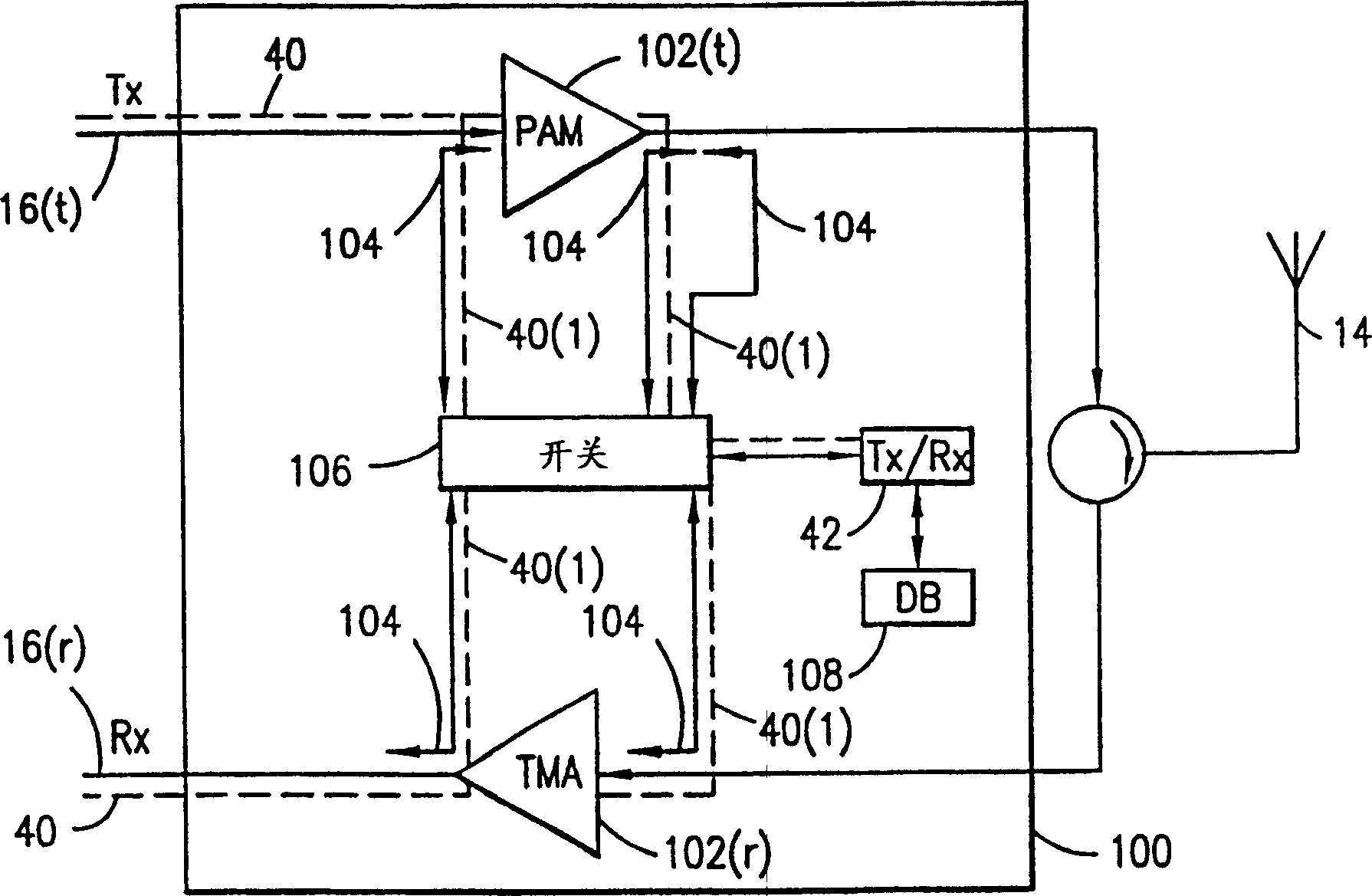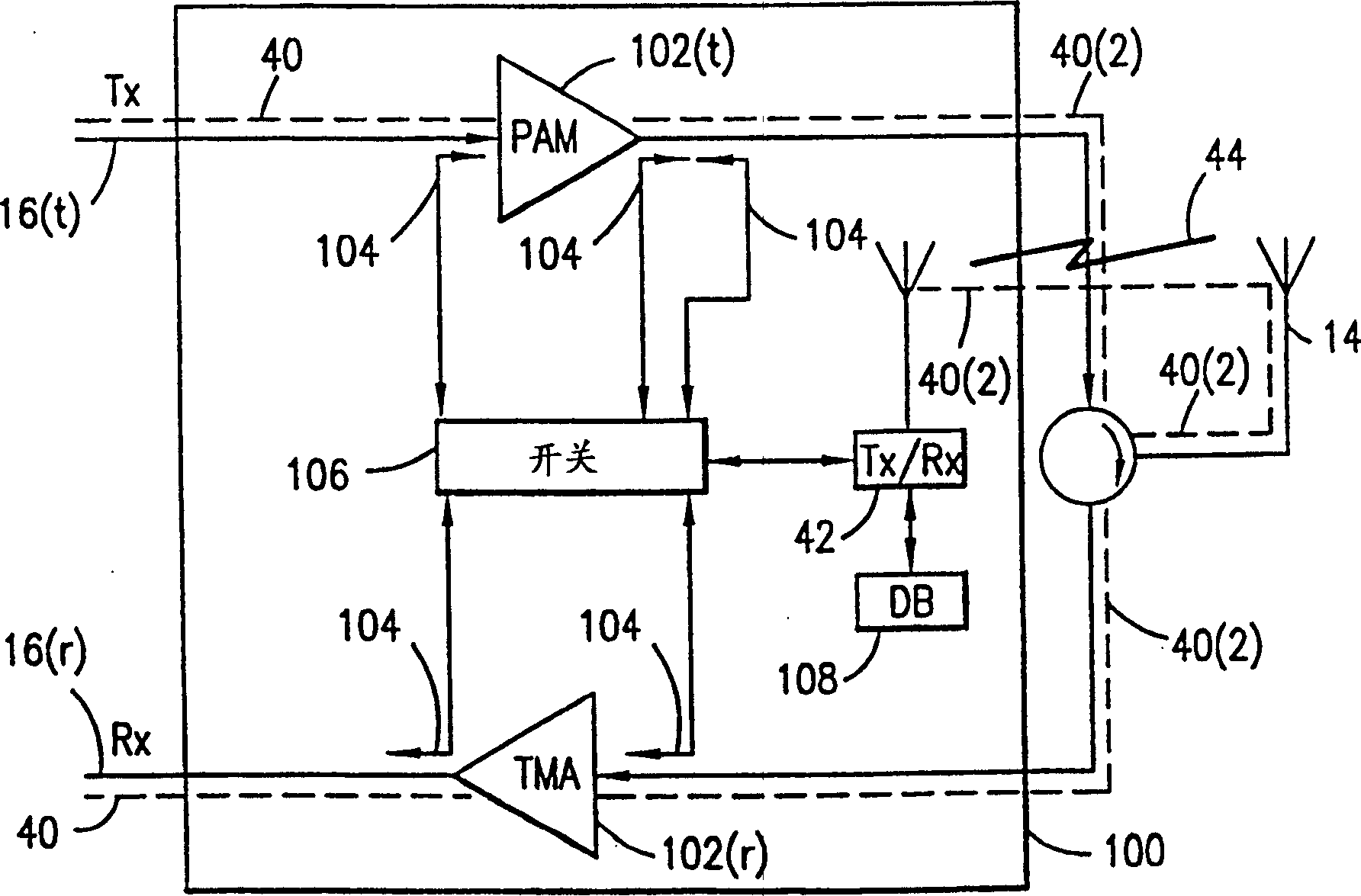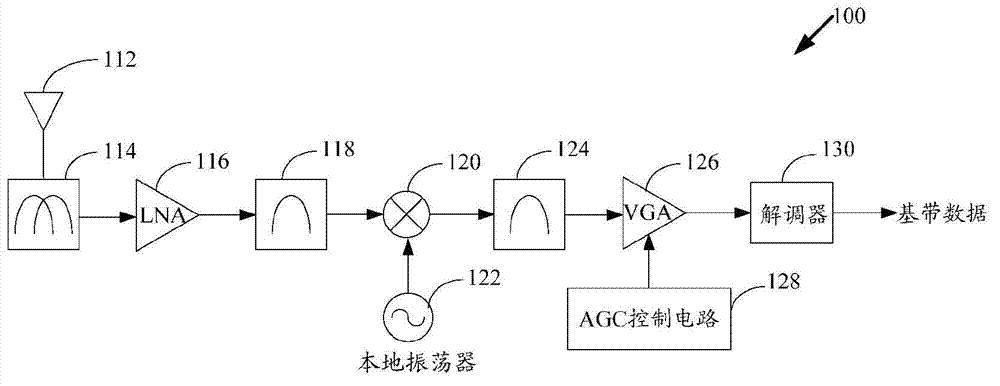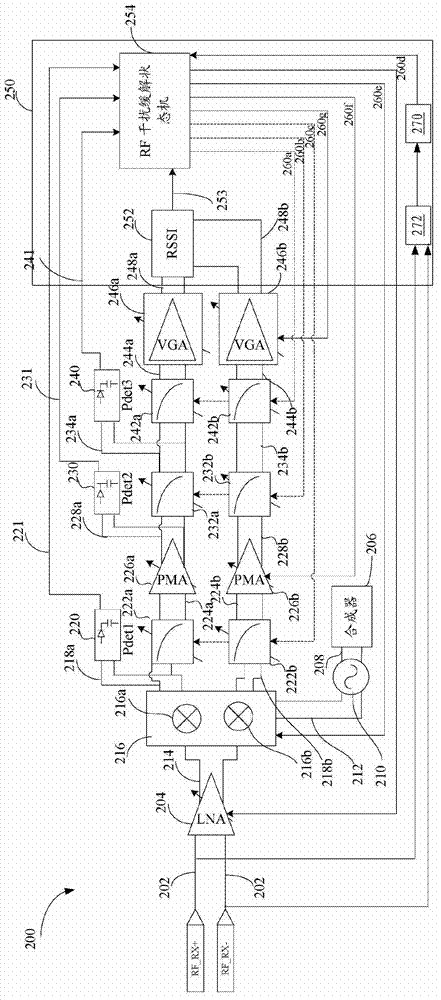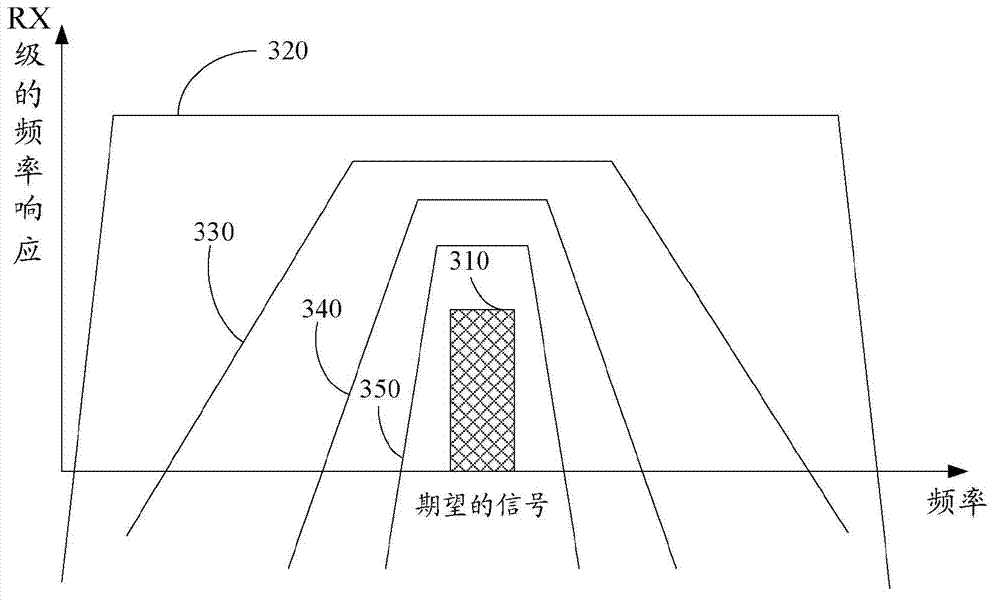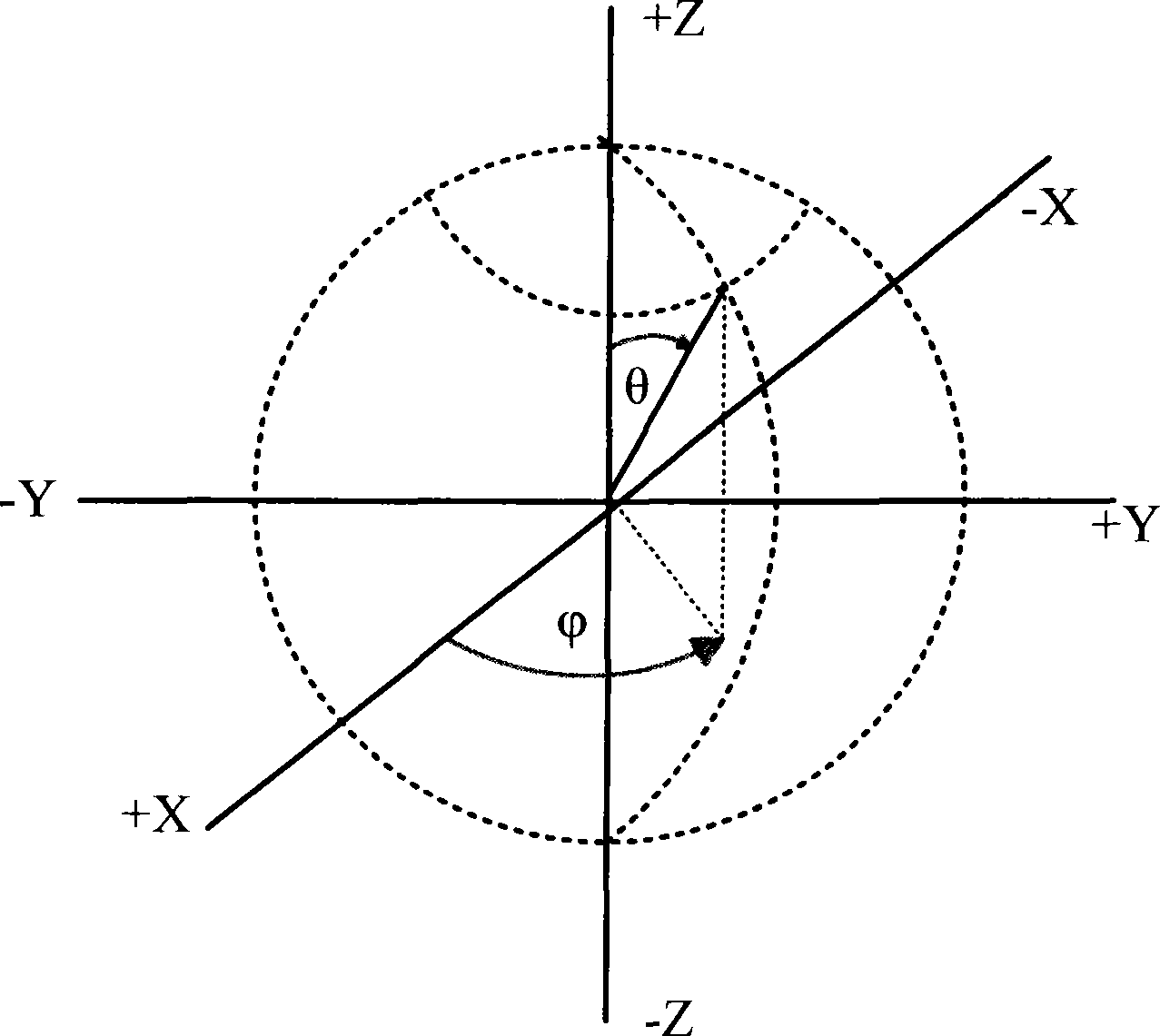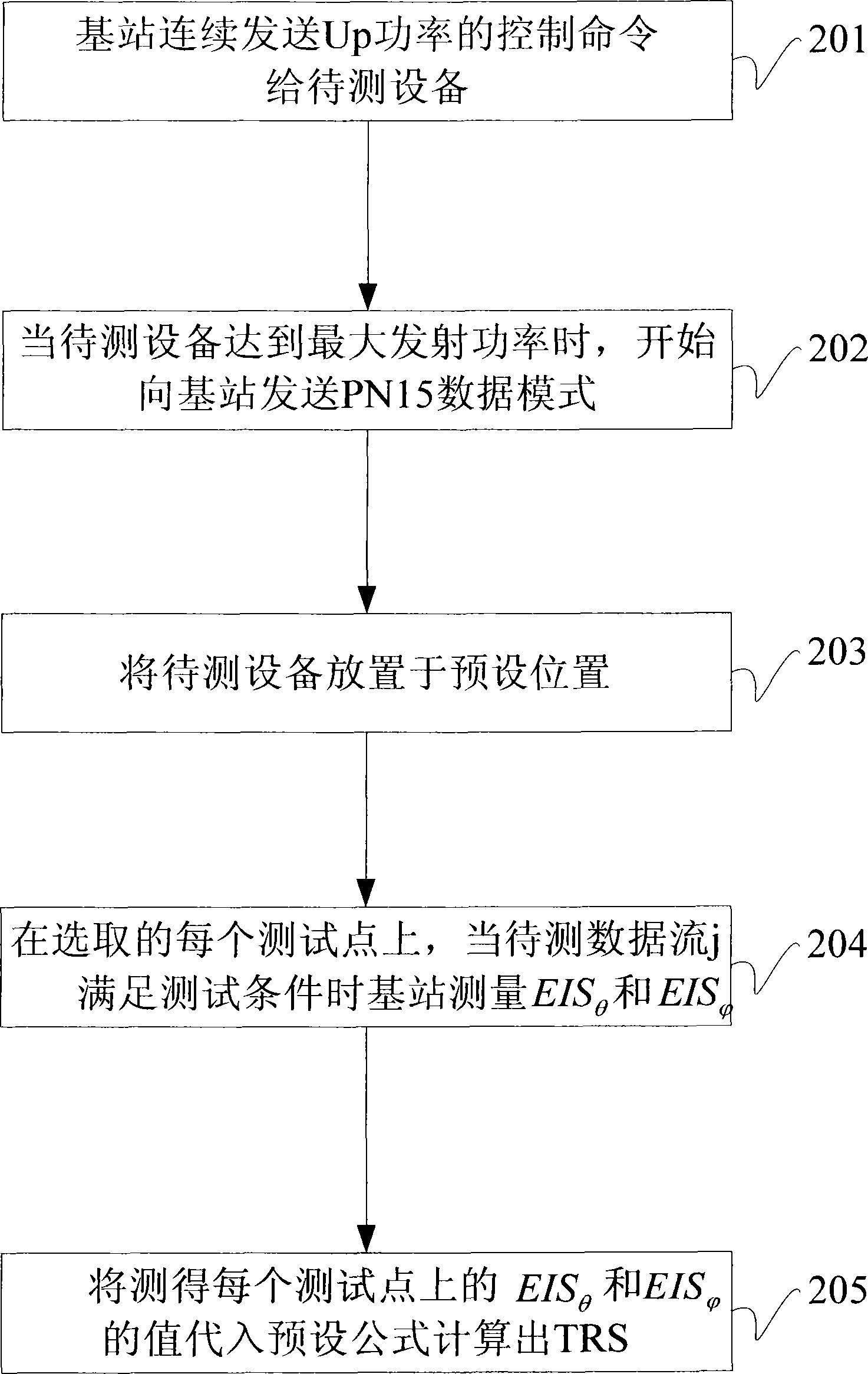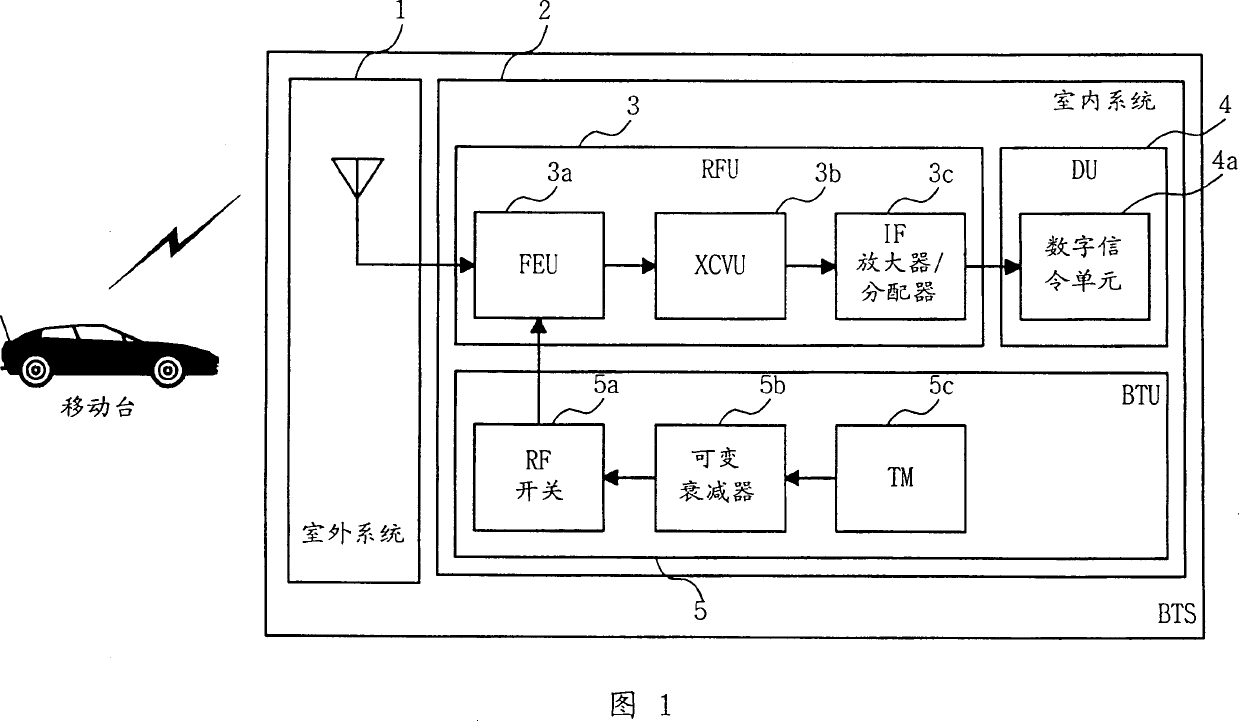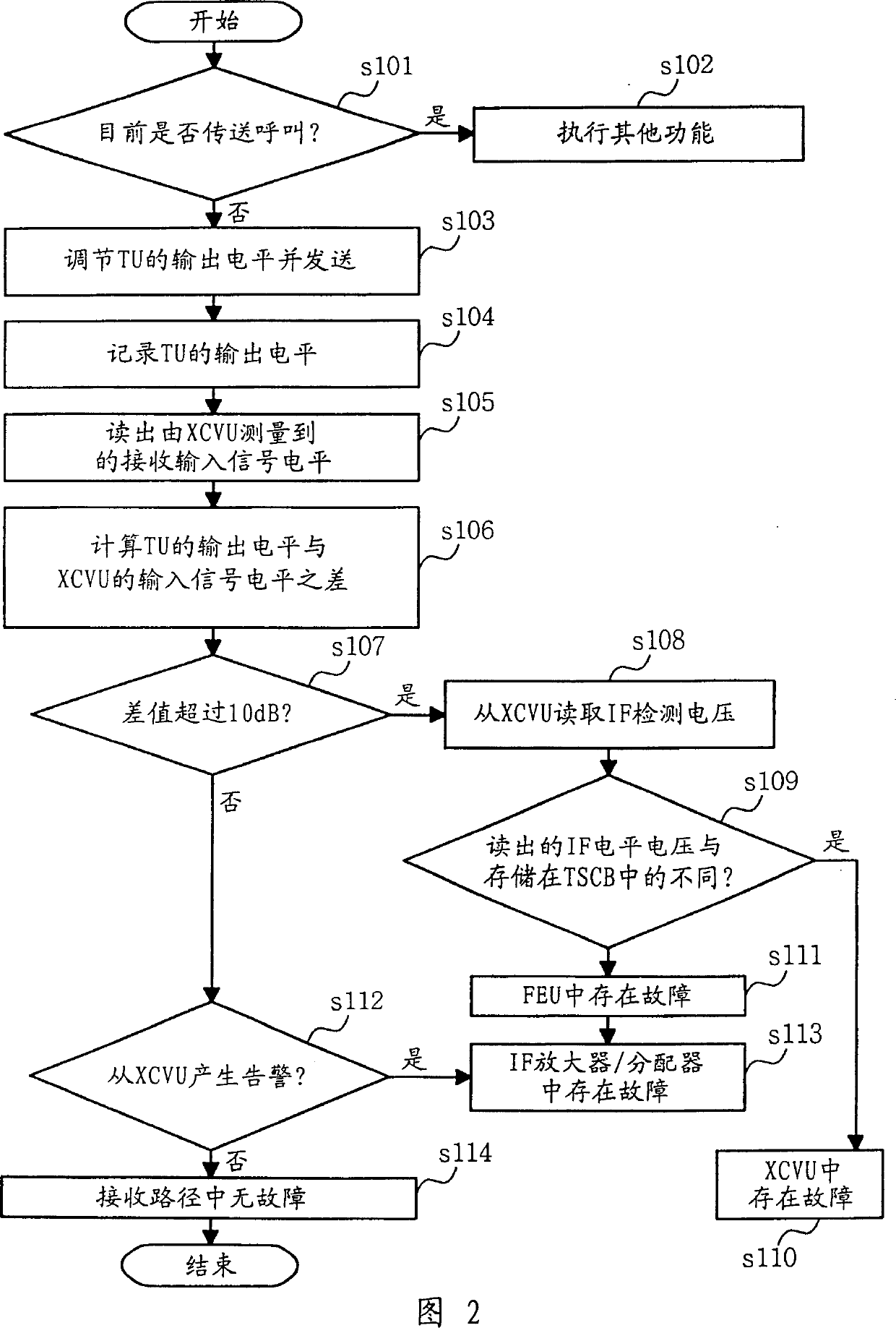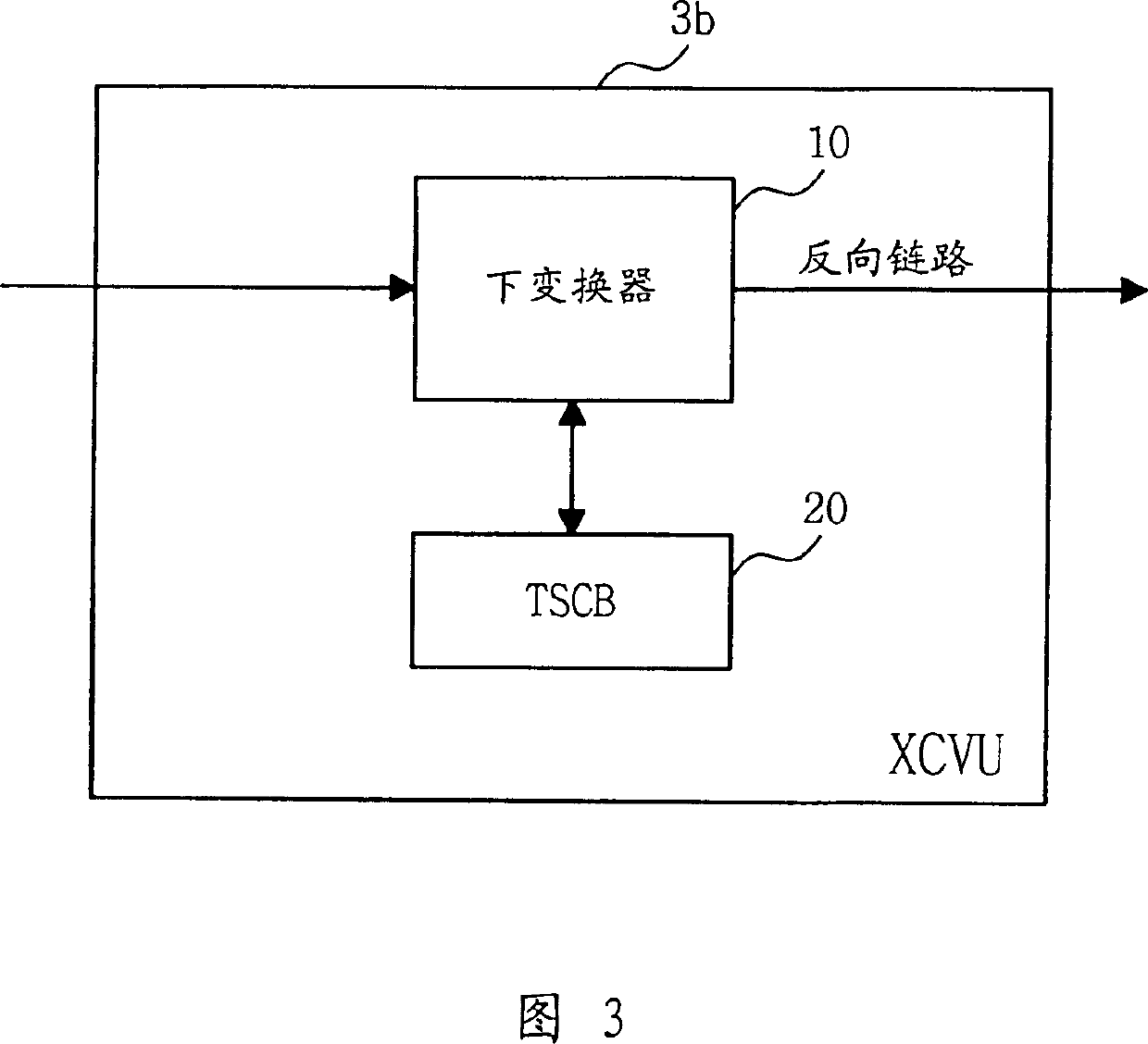Patents
Literature
32results about "Service/auxillary channels monitoring" patented technology
Efficacy Topic
Property
Owner
Technical Advancement
Application Domain
Technology Topic
Technology Field Word
Patent Country/Region
Patent Type
Patent Status
Application Year
Inventor
Highly-spectrally-efficient receiver
InactiveUS8526523B1Transmitters monitoringReceivers monitoringSignal-to-noise ratio (imaging)Pulse shaping
A receiver may be operable to receive a QAM-based, inter-symbol correlated (ISC) signal at a signal-to-noise ratio of between 29 dB and 31 dB and process the QAM-based, ISC signal to output estimated symbols at a symbol error rate of between 2×10−1 and 1×10−3. The QAM-based, ISC signal may be a partial response signal generated by passing a first signal through a partial response pulse shaping filter. The partial response pulse shaping filter may provide greater capacity than a capacity achieved by passing the first signal through a root-raised-cosine-based pulse shaping filter. The receiver may comprises an input filter, and the processing of the QAM-based, ISC signal may comprises filtering the QAM-based, ISC signal via a filter configured to achieve a desired total partial response in combination with the partial response pulse shaping filter.
Owner:AVAGO TECH INT SALES PTE LTD
Timing pilot generation for highly-spectrally-efficient communications
Methods and systems are provided for timing synchronization for reception of highly-spectrally efficient communications. An example method may include, mapping, in a transmitter, a plurality of transmit bits to a plurality of symbols at a symbol rate that is based on an oscillator signal. The plurality of symbols may be processed via a filter. The processing may result in an inter-symbol correlated (ISC) signal. The oscillator signal may be frequency divided to generate one or more pilot signals having a frequency that is a sub-harmonic of a frequency of the oscillator signal. The pilot signal may be injected into the ISC signal. The injecting may result in an ISC signal with timing carrier. The ISC signal with timing carrier may be transmitted. Gain of the one or more pilot signals may be adjusted based on a spectral mask value associated with the transmitting.
Owner:AVAGO TECH INT SALES PTE LTD
Coarse phase estimation for highly-spectrally-efficient communications
Owner:AVAGO TECH INT SALES PTE LTD
Method and apparatus for implementing signal quality metrics and antenna diversity switching control
ActiveUS20120328057A1Short reaction timeReceivers monitoringError detection/prevention using signal quality detectorSignal qualityCyclic prefix
A method for detecting the digital quality of a radio signal includes: receiving a radio signal including a digital portion modulated by a series of symbols each including a plurality of samples; computing correlation points between endpoint samples in cyclic prefix regions of adjacent symbols; and using the correlation points to produce a digital signal quality metric. Receivers that implement the method are also provided.
Owner:IBIQUITY DIGITAL CORP
System for determining total isotropic sensitivity(TIS) and related methods
InactiveCN101034945AReceivers monitoringError detection/prevention using signal quality detectorRadio frequencyCommunication device
A test method for determining total isotropic sensitivity (TIS) of a mobile wireless communications device including a radio frequency (RF) receiver and an antenna coupled thereto may include measuring a sensitivity of the RF receiver, and measuring a three-dimensional (3D) gain pattern of the antenna independent of measuring the sensitivity of the RF receiver. The method may further include determining the TIS of the mobile wireless communications device based upon the sensitivity of the RF receiver and the 3D gain pattern of the antenna.
Owner:BLACKBERRY LTD
System for determining radiated radio frequency(RF) receiver sensitivity and related methods
InactiveCN101034946AReceivers monitoringService/auxillary channels monitoringEngineeringRadio frequency
A test method is described for determining radiated radio frequency (RF) receiver sensitivity may include determining a bit error rate (BER) versus traffic channel (TCH) power level function for an initial channel, determining an estimated TCH power level for a subsequent channel based upon the BER versus TCH power level function and a desired BER, and measuring a BER of a subsequent channel based upon the estimated TCH power level. The method may further include comparing the measured BER to the desired BER and using a difference therebetween along with the BER versus TCH power level function to determine a next estimated TCH power level, and repeating measuring and comparing if the difference is greater than a threshold to thereby determine a TCH power level in the subsequent channel corresponding to the desired BER.
Owner:RES IN MOTION LTD
Multi-antenna system based method and system for testing over the air (OTA) performance
InactiveCN102158291AImplement testReceivers monitoringService/auxillary channels monitoringShunt DeviceComputer module
The invention discloses a multi-antenna system based method for testing over the air (OTA) performance. The method comprises the following steps that: a shunt device is used for mapping a path signal from a channel emulator to a test antenna in a fully anechoic chamber according to the predetermined mapping relation; and an OTA performance analysis and display module is used for analyzing and displaying the OTA performance of a device under test (DUT) according to a space signal received by the DUT from the test antenna, wherein the mapping relation between the path signal from the channel emulator and the test antenna is determined according to estimation of the direction and extended range of the angle of arrival of the path signal. The invention also correspondingly discloses a multi-antenna system based system for testing OTA performance. The method and the system have the following beneficial effects: the path signal output by the channel emulator is mapped to the test antenna according to certain rule and then the OTA performance is tested according to the space signal sent by the test antenna, thus realizing testing of the multi-antenna station OTA performance.
Owner:ZTE CORP
Method and device for testing total isotropic sensitivity of mobile terminal
ActiveCN102340360AReduced measurement timeShorten test timeReceivers monitoringService/auxillary channels monitoringComputer terminalFunctional relation
The invention provides a method for testing the total isotropic sensitivity (TIS) of a mobile terminal, which comprises the following steps of: obtaining a functional relation curve between antenna port input power (PInAnt) of a signal channel to be tested and a bit error rate (BER), wherein BER=f(PInAnt) or PInAnt=f-1(BER); carrying out phi polarization and theta polarization test according to the functional relation curve between the antenna port input power and the bit error rate to obtain equivalent isotropic sensitivities, i.e., EIS theta (theta i, phi j) and EIS phi (theta i, phi j) of a space position (theta i, phi j); and after testing the EIS theta (theta i, phi j) and the EIS phi (theta i, phi j) of all the space positions, calculating to obtain the TIS of the signal channel to be tested. According to the embodiment provided by the invention, the test speed of the TIS can be effectively increased on the premise of not losing the test accuracy, so that rapid and accurate TIS measurement is realized.
Owner:GENERAL TEST SYST
Receiver circuit, semiconductor integrated circuit, and test method
The invention relates to a receiver circuit, a semiconductor integrated circuit, and a test method. A receiver circuit includes a CDR circuit, a jitter generator unit, a test pattern generator unit, and a comparator unit. The jitter generator unit generates jitter having first characteristics (frequency and amplitude). The test pattern generator unit generates a test pattern to which the jitter is added, and supplies the test pattern to the CDR circuit. The comparator unit compares a value outputted from the CDR circuit with an expected value and outputs a comparison result.
Owner:SOCIONEXT INC
Method and device for testing total isotropic sensitivity of mobile terminal
ActiveCN102340361AShorten test timeReduce the number of testsReceivers monitoringService/auxillary channels monitoringComputer terminalComputer science
The invention provides a method for testing total isotropic sensitivity (TIS) of a mobile terminal, which comprises the following steps of: obtaining a functional relation curve between receiver port input power (PInRec) of a signal channel to be tested and a bit error rate (BER), wherein BER=f(PInRec) or PInRec=f-1(BER); carrying out phi polarization and theta polarization test according to the functional relation curve between the receiver port input power (PInRec) and the bit error rate (BER) to obtain equivalent isotropic sensitivities, i.e., EIS theta (theta i, phi j) and EIS phi (theta i, phi j) of a space position (theta i, phi j); and after testing the EIS theta (theta i, phi j) and the EIS phi (theta i, phi j) of all the space positions (theta i, phi j), calculating to obtain the TIS of the signal channel to be tested. According to the embodiment provided by the invention, the test speed of the TIS can be effectively increased on the premise of not losing the test accuracy, so that rapid and accurate TIS measurement is realized.
Owner:GENERAL TEST SYST
Method and system for spatial radio-frequency performance testing based on multiple-antenna system
A method and system for over the air performance testing based on a multi-antenna system are disclosed. The method comprises: a branch device mapping path signals from a channel emulator to test antennas according to the set number of the combined sub-paths and sub-path mapping rule; the test antennas transmitting spatial signals according to the path signals from the branch device; and a device under test receiving the spatial signals; and an over the air performance analysis and display module analyzing and displaying the over the air performance of the device under test based on the spatial signals received by the device under test. The present invention implements the test of the over the air performance of a multi-antenna terminal.
Owner:ZTE CORP
System for determining RF path loss between an RF source andan RF receiver and related methods
A test method for determining radio frequency (RF) path loss between an RF source and an RF receiver for a plurality of RF channels in a given RF frequency may include determining RF path losses for selected RF channels within the given RF frequency band, and determining an RF path loss function based upon the RF path losses of the selected RF channels. The method may further include determining an RF path loss for at least one other channel within the given RF frequency band based upon the RF path loss function.
Owner:RES IN MOTION LTD
Clock margin measuring system, method and corresponding device
ActiveCN101969350AReduce distanceAvoid the risk of interferenceReceivers monitoringService/auxillary channels monitoringComputer moduleVIT signals
The invention discloses a clock margin measuring system, a clock margin measuring method and a corresponding device. The device comprises a clock margin regulation module and a clock output unit, which are connected mutually, wherein the clock margin regulation module receives an input clock signal, regulates the reference level and / or amplitude of the input clock signal and outputs the signal; and the clock output unit joints and matches the clock signal output by the clock margin regulation module and outputs a jointed and matched clock signal. In the invention, the driving clock amplitude corresponding to a clock system is modified for enabling a test system to test the functions and performance of different products, the concrete value of the working clock amplitude margin of the clock system is acquired, and thus, the functions and performance of the tested products can be tested.
Owner:ZTE CORP
Evaluation device and method for providing a transceiver system with performance information thereof
An evaluation device is configured to provide a transceiver system with performance information thereof. The transceiver system models a channel between a transmitter and a receiver thereof using Nakagami distribution with a fading parameter. The evaluation device includes a setting module operable to set an average signal-to-noise rate (SNR) for the channel between the transmitter and the receiver, a computing module operable to estimate a symbol error rate related to a signal received by the receiver from the transmitter based upon the fading parameter and the average SNR, and an output module operable to provide the average SNR and the symbol error rate as the performance information of the transceiver system.
Owner:I-SHOU UNIVERSITY
Achieving greater test efficiencies using ACK signal suppression
InactiveUS8774024B2Quick testReduce in quantitySpecial service provision for substationMultiplex system selection arrangementsTest efficiencyTransceiver
A method and system for testing a wireless data packet transceiver as a device under test (DUT) adapted to operate in conformance with a wireless signal standard such that a transmitted signal, when received by an intended receiver, is to result in a responsive signal transmission acknowledging such signal reception. During testing, responsive signal transmissions, e.g., acknowledgement signals, are withheld by the test system until after a predetermined number of data packets have been captured from the DUT, until a predetermined time interval has passed, or until data packets at a predetermined number of data rates have been captured from the DUT.
Owner:LITEPOINT CORP
System and method for determining receiver sensitivity
InactiveCN101018094AReceivers monitoringService/auxillary channels monitoringRadio frequencyBit error rate
A test method for determining conducted radio frequency (RF) receiver sensitivity using an RF source coupled to an RF receiver by an RF cable may include determining a bit error rate (BER) versus traffic channel (TCH) power level function for an initial channel, determining an estimated TCH power level for a subsequent channel based upon the function and the desired BER, and measuring a BER of the subsequent channel based upon the estimated TCH power level. The measured BER may be compared to the desired BER, and a difference therebetween is used along with the function to determine a next estimated TCH power level. Measuring and comparing may be repeated if the difference may be greater than a threshold to thereby determine a TCH power level in the subsequent channel corresponding to the desired BER.
Owner:RES IN MOTION LTD
System and method for testing receiving sensitivity of data terminal
InactiveCN102710340AAvoid influence of test resultsThe test result is accurateReceivers monitoringService/auxillary channels monitoringShielded cableData terminal
The invention discloses a system for testing the receiving sensitivity of a data terminal. The system comprises a muffling microwave darkroom, test control equipment, a tested data terminal and a universal serial bus (USB) cable, wherein the test control equipment is put on a ground in the muffling microwave darkroom, covered by a wave absorption material and used for supplying power to the tested data terminal and controlling a working state and a working mode of the tested data terminal; the USB cable is a metal core shielding cable and used for connecting the test control equipment and the tested data terminal; and the total isotropic sensitivity (TIS) of the tested data terminal is measured. The invention also discloses a method for testing the receiving sensitivity of the data terminal. By adopting the system and the method, the influence of the test control equipment on a test result can be avoided, so that the test result is reliable; and therefore, the performance of different types of data terminals can be fairly and effectively compared according to the test result.
Owner:ZTE CORP
Magnitude and phase response calibration of receivers
An integrated calibrator provides for magnitude and phase response calibration of RF receivers to produce amplitude flatness and phase linearity across the frequency range of the RF receiver by using a simple square law diode detector and a frequency-stepped two-tone source. A two-tone source generator provides two sinusoidal signals separated by a specified frequency delta about a center frequency. The center frequency is stepped across the bandwidth of the RF receiver. At each center frequency the two sinusoidal signals are input to the RF receiver and to the diode detector. The two sinusoidal signals are processed by both the receiver path and the calibrator path, and the results are used by the calibrator to generate coefficients for a correction filter in the receiver path at each of the stepped center frequencies.
Owner:TEKTRONIX INC
System for determining RF path loss between an RF source and an RF receiver with hysteresis and related methods
A test method is for determining RF path loss between an RF source and an RF receiver. The RF source may transmit RF power values at a relatively fine granularity, and the RF receiver may generate RSSI values at a relatively coarse granularity and have an unknown hysteresis about each transition between adjacent RSSI values. Hysteresis edges may be determined about a given RSSI value transition at the RF receiver by sweeping RF power values transmitted from the RF source in increasing and decreasing directions. A relationship between the relatively fine granularity RF power values and the relative coarse granularity RSSI values may be determined using the hysteresis transition edges. The RF path loss for a given channel may be determined based upon a given RSSI at a given RF power value and the relationship between the relatively fine granularity RF power values and the relative coarse granularity RSSI values.
Owner:RES IN MOTION LTD
Systems and methods of monitoring call quality
When a voice over Internet protocol (VOIP) telephone call is being conducted by a mobile telephony device, measurements of at least one condition that exists for the mobile telephone device during the VOIP telephone call are taken during the duration of the telephone call. The measurements could be taken periodically as the VOIP telephone call progresses. The measured condition is one that could affect the perceived quality of the VOIP telephone call. The measurements of the at least one condition are recorded against the telephone call for later use and analysis. The recorded information may be analyzed to determine how to modify a setting of the mobile telephony device to improve the quality of VOIP telephone calls conducted with the mobile telephony device.
Owner:VONAGE BUSINESS
Systems and methods of monitoring call quality
When a voice over Internet protocol (VOIP) telephone call is being conducted by a mobile telephony device, measurements of at least one condition that exists for the mobile telephone device during the VOIP telephone call are taken during the duration of the telephone call. The measurements could be taken periodically as the VOIP telephone call progresses. The measured condition is one that could affect the perceived quality of the VOIP telephone call. The measurements of the at least one condition are recorded against the telephone call for later use and analysis. The recorded information may be analyzed to determine how to modify a setting of the mobile telephony device to improve the quality of VOIP telephone calls conducted with the mobile telephony device.
Owner:VONAGE BUSINESS
Systems methods circuits and apparatus for calibrating wireless communication systems
Disclosed are wireless communication systems and methods for calibrating same. The communication systems may include first wireless transceivers having: (a) a modem, and (b) one or more Radio Frequency (RF) chain pairs. There may also be included a sounding circuit block. A calibrated switchable bridging block (CSBB) may switchably couple signals between the first transceivers and the sounding circuit block. Calibration control logic may regulate signal flow through said CSBB during a sounding sequence of said first wireless transceiver and may apply compensation coefficients to RF compensation circuits functionally associated with said the wireless transceiver RF chain pairs.
Owner:GO NET SYST
Processor unit for determining a quality indicator of a communication channel and a method thereof
ActiveUS9100115B1Service/auxillary channels monitoringLine-transmission monitoring/testingError vector magnitudeComputer science
A processor unit used to determine a quality indicator, QI, of a communication channel. The processor unit receives received complex symbols at an input, executes a predetermined sequence of transformations on the received complex symbols and computes the error vector magnitude, EVM. The quality indicator, QI, of the communication channel is determined based on the determined error vector magnitude, EVM. Data representing the quality indicator, QI, is outputted at an output of the processor unit. The predetermined sequence of transformations transfers all the received complex symbols to a single predetermined region containing a single target location. The error vector magnitude, EVM, is then calculated as average distance of all the processed received complex symbols in the predetermined single region to the single target location.
Owner:NXP USA INC
System for determining total isotropic sensitivity(TIS) and related methods
InactiveCN101034945BReceivers monitoringError detection/prevention using signal quality detectorEngineeringRadio frequency
A test method for determining total isotropic sensitivity (TIS) of a mobile wireless communications device including a radio frequency (RF) receiver and an antenna coupled thereto may include measuring a sensitivity of the RF receiver, and measuring a three-dimensional (3D) gain pattern of the antenna independent of measuring the sensitivity of the RF receiver. The method may further include determining the TIS of the mobile wireless communications device based upon the sensitivity of the RF receiver and the 3D gain pattern of the antenna.
Owner:BLACKBERRY LTD
Operation and maintenance link for antenna equipment
An operation and maintenance communications link (40) is established between an antenna near parts component (18) and transmitter and receiver of a transceiver site assembly. The transmitter and receiver are connected to a remote antenna (14) by means of a radio frequency feeder (16) supporting a plurality of communications channels. A radio transceiver (42) is connected to the antenna near parts component. A communications connection comprising the operation and maintenance communications link (40 (1)) is established between the radio frequency transceiver and the transmitter and receiver over the radio frequency feeder connected to the antenna using a selected one of the supported communications channels. Another implementation further utilizes an air interface connection (40 (2)) supporting the selected communications channel to provide the operation and maintenance communications link.
Owner:TELEFON AB LM ERICSSON (PUBL)
Clock margin measuring system, method and corresponding device
ActiveCN101969350BReduce distanceAvoid the risk of interferenceReceivers monitoringService/auxillary channels monitoringProduct systemVIT signals
A clock margin test system, method and corresponding device are disclosed in the present invention. The system includes that a clock margin adjustment device, a product system under test and a product performance parameter monitoring device are connected successively. The clock margin adjustment device is set as receiving a clock signal output by a driving clock source of the product system under test, adjusting the reference level and / or amplitude of the clock signal, performing a butt matching processing on the adjusted clock signal, so as to generate the clock signal for butt-matching with the product system under test, and then output the clock signal; the product system under test is set as inputting the clock signal output by the driving clock source of the product system under test into the clock margin adjustment device, receiving the clock signal output by the clock margin adjustment device and providing it as a driving clock to the part, which requires the driving clock, of the product system under test; the product performance parameter monitoring device is set as monitoring the performance parameter of the product under test when the part, which requires the driving clock, of the product system under test works under driving of the driving clock.
Owner:ZTE CORP
Detection and mitigation of interference in a receiver
A receiver architecture optimizes receiver performance in the presence of interference. In various embodiments, power estimation circuits are used with variable selectivity to determine the exact nature of the interference and to optimize the performance correspondingly. The variable selectivity is achieved using stages of filtering with progressively narrower bandwidths. Also, the actual method of optimizing the receiver performance is an improvement compared to the traditional techniques in that the gain settings and the baseband filter order (stages to be used) will be optimized based on the nature of the interference as determined by the power detector measurements. For a device such as a cellular phone that operates in a dynamic and changing environment where interference is variable, embodiments advantageously provide the capability to modify the receiver's operational state depending on the interference.
Owner:SPREADTRUM COMM (SHANGHAI) CO LTD
System and method for testing total radiated sensitivity in multi-antenna system
ActiveCN101997642BReceivers monitoringService/auxillary channels monitoringComputer hardwareData stream
Owner:HUAWEI TEHCHNOLOGIES CO LTD
Method and device for testing total isotropic sensitivity of mobile terminal
ActiveCN102340360BReduced measurement timeShorten test timeReceivers monitoringService/auxillary channels monitoringComputer terminalComputer science
A method for testing total isotropic sensitivity (TIS) of a mobile terminal is provided in the present invention, which includes: acquiring a function relation curve of input power PInAnt of antenna port and bit error rate (BER) for a channel to be tested: BER = f(PInAnt ), or PInAnt = f -1(BER); according to said function relation curve of the input power of the antenna port and BER, performing f and ? polarization tests to obtain the effective isotropic sensitivity EIS ? ( ? i , f j ) and EIS f ( ? i , f j ) at a space position (? i , f j ); after testing the EIS ? ( ? i , f j ) and EIS f ( ? i , f j ) at all space positions, calculating to obtain the TIS for said channel to be tested. According to the emibodiments of the present invention, on the premise that the test precision is not lost, the TIS test speed can be effectively improved, and the fast and accurate TIS test can be realized.
Owner:GENERAL TEST SYST
Self-diagnosing method for detecting failure of transceiver inside radio receiving unit
InactiveCN1177497CReceivers monitoringTransmission control/equalisingAudio power amplifierTransceiver
A method and apparatus for detecting a fault in a transceiver. A microprocessor reads a predetermined first minimum value and a predetermined first maximum value of received input signal levels, and converts the measured instantaneous AGC control voltage into a received input signal level. When the converted received input signal level is below the predetermined first minimum value or above the predetermined first maximum value, the microprocessor determines that a fault exists in the amplifier operation of the down converter. On the other hand, the microprocessor reads a predetermined second minimum value and a predetermined second maximum value of IF detection voltage values, and also reads an instantaneous IF detection voltage, which is measured by the AGC. When the instantaneous IF detection voltage is below the predetermined second minimum value or above the predetermined second maximum value, the microprocessor determines that a fault exists in the AGC operation of the down converter.
Owner:SAMSUNG ELECTRONICS CO LTD
Features
- R&D
- Intellectual Property
- Life Sciences
- Materials
- Tech Scout
Why Patsnap Eureka
- Unparalleled Data Quality
- Higher Quality Content
- 60% Fewer Hallucinations
Social media
Patsnap Eureka Blog
Learn More Browse by: Latest US Patents, China's latest patents, Technical Efficacy Thesaurus, Application Domain, Technology Topic, Popular Technical Reports.
© 2025 PatSnap. All rights reserved.Legal|Privacy policy|Modern Slavery Act Transparency Statement|Sitemap|About US| Contact US: help@patsnap.com
